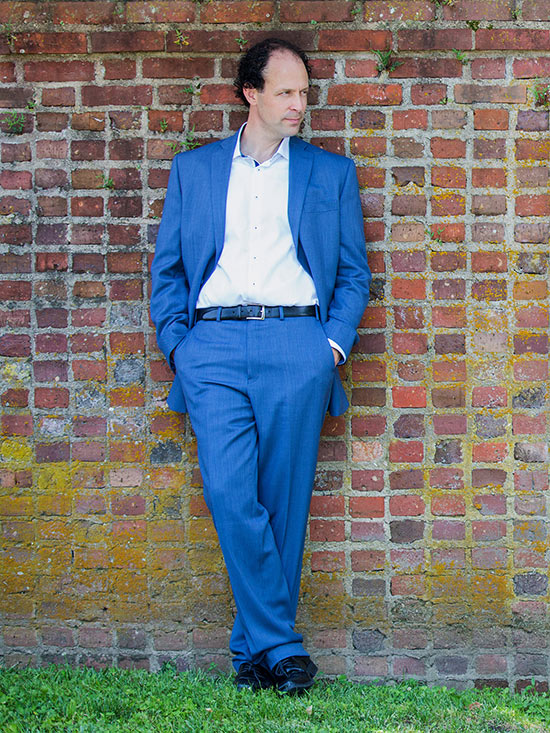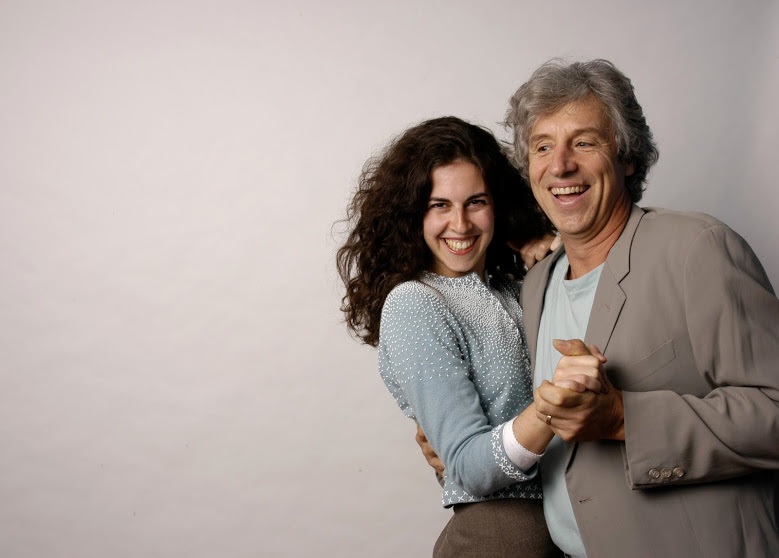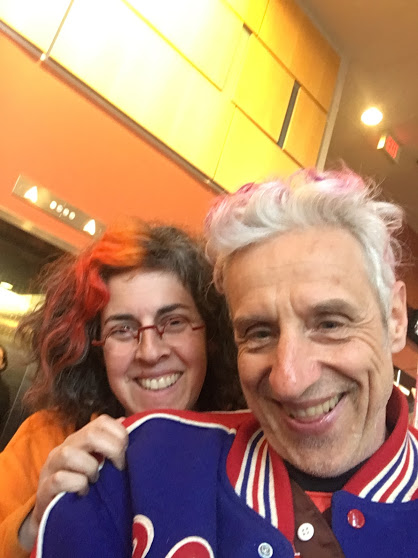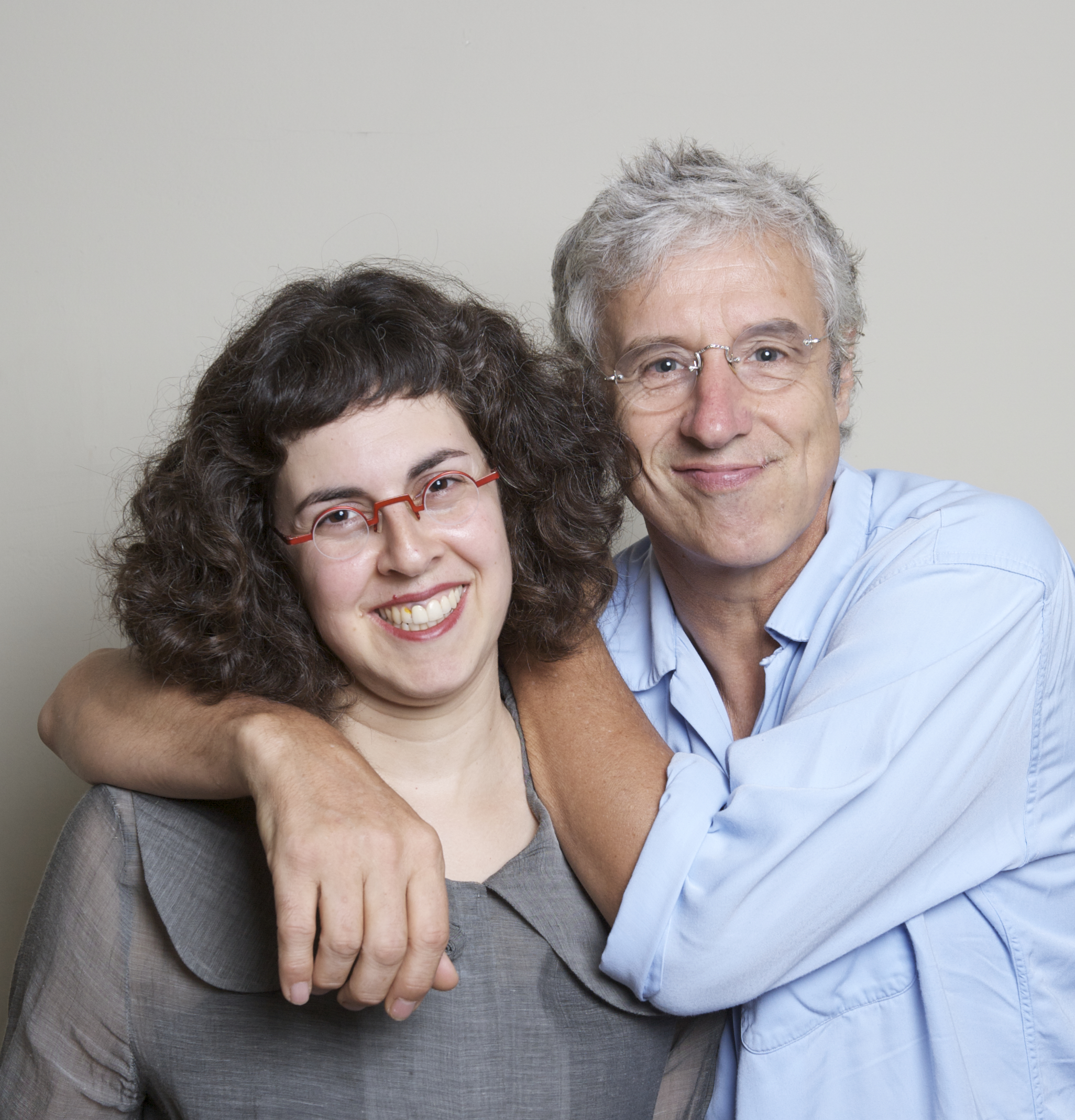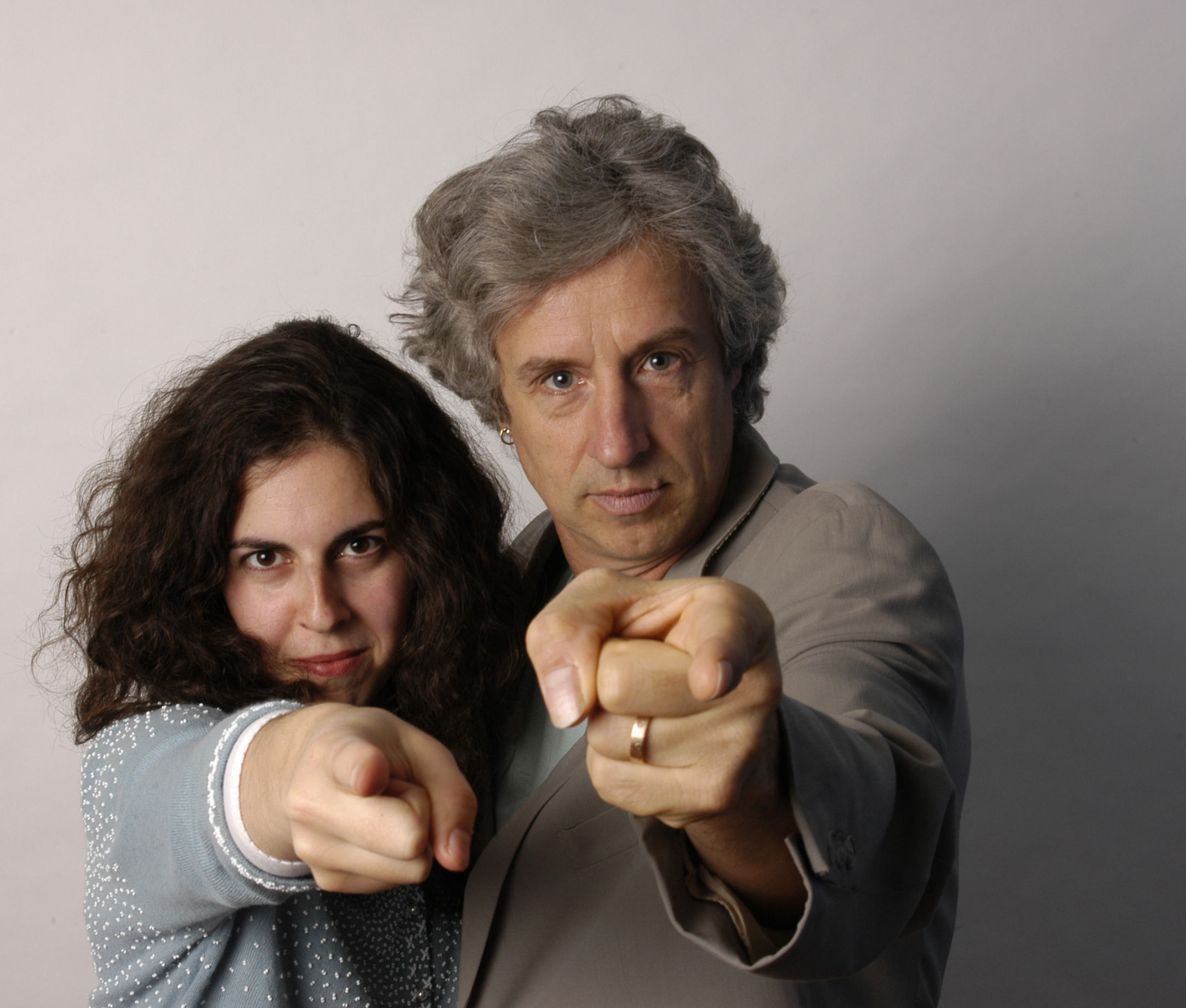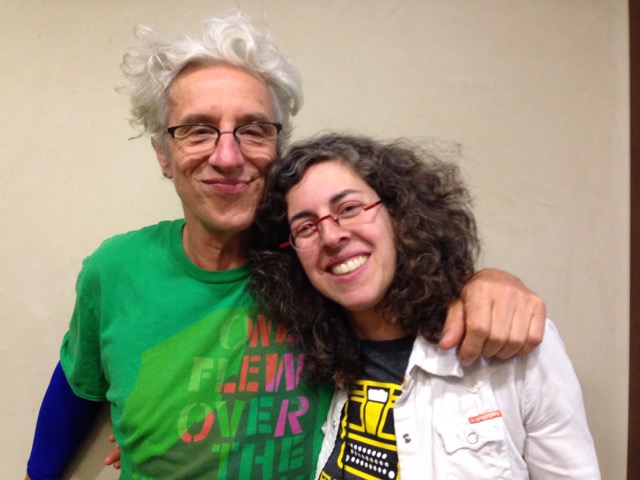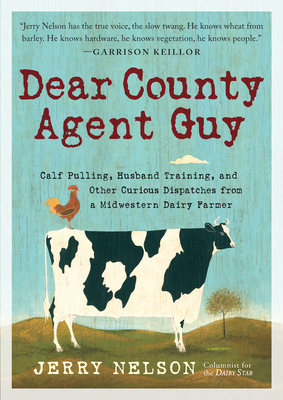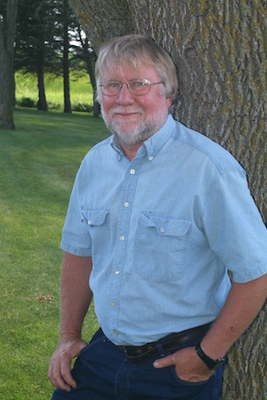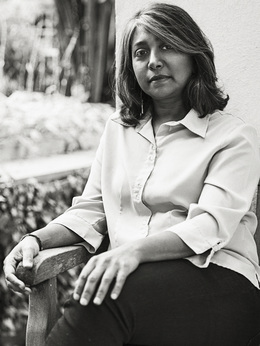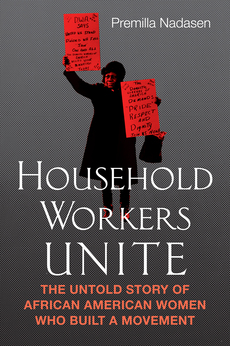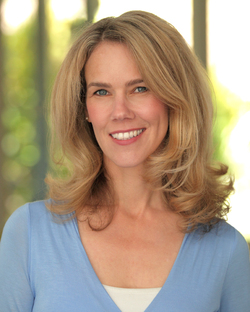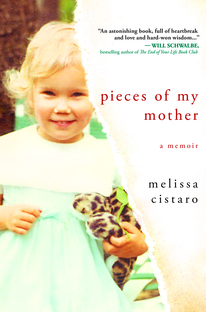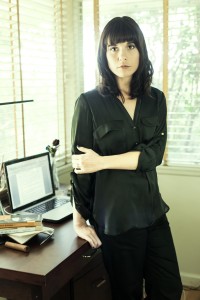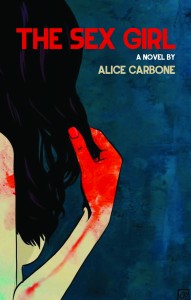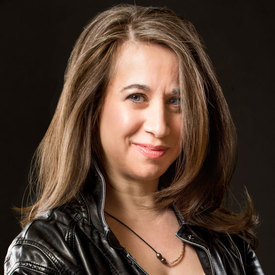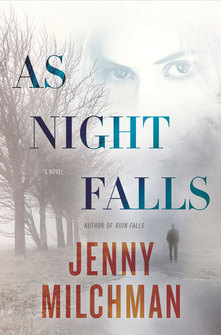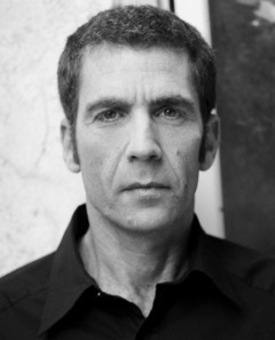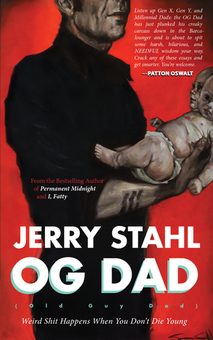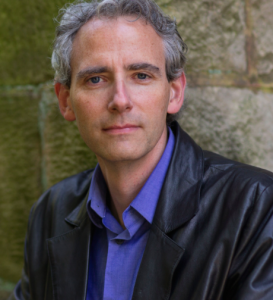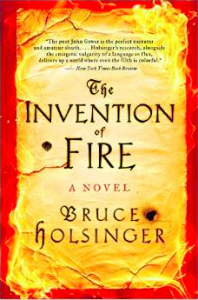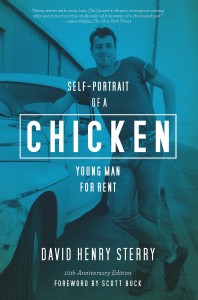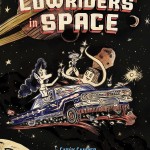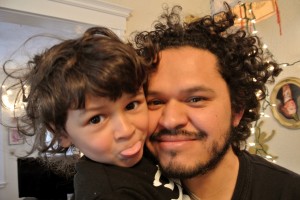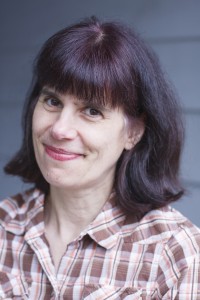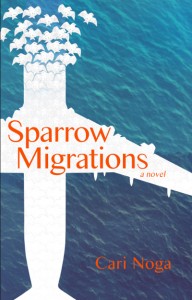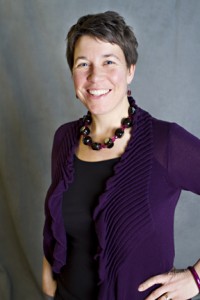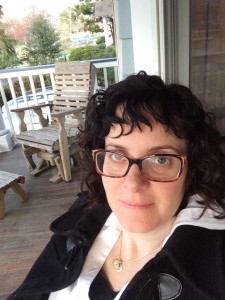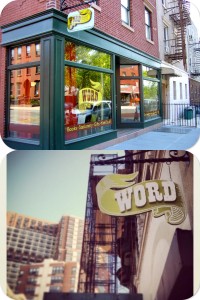The Book Doctors interview amazing author Brad Parks. He has so many useful & fascinating things to say about how to become successfully published writer.
Tag: Books Page 1 of 2
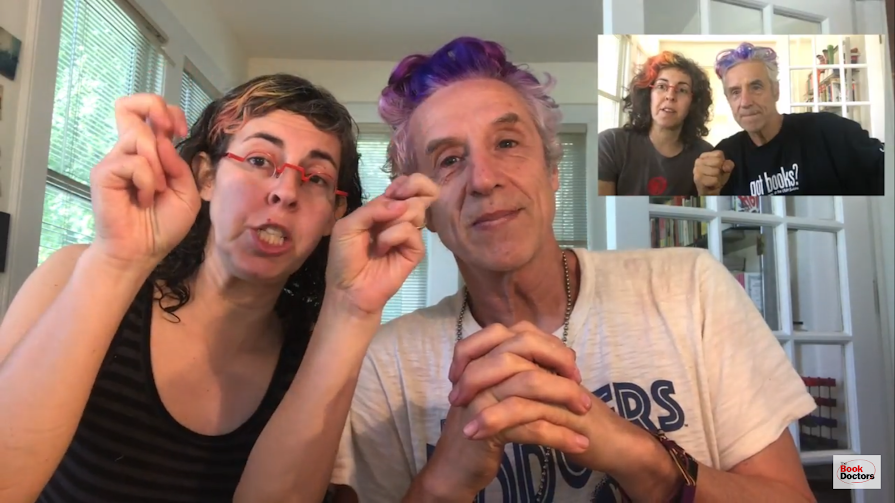
Disreputable author service companies often masquerade as legitimate publishers. Here’s how to publish a book without getting scammed. Ask us questions in the comments.
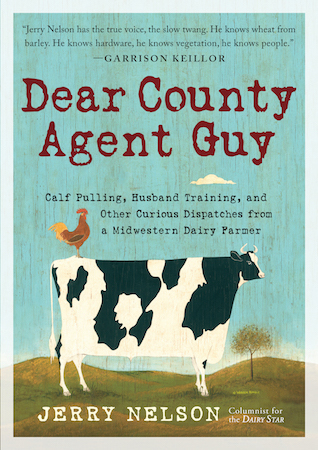
We’ve been to the South Dakota Festival of Books twice so far, and we have now discovered two amazing writers who came to the festival without a book deal. Both now have books about to come out. Our conclusion is that there are lots of great writers in South Dakota, and many of them go to that festival. As soon as we met Jerry Nelson, we knew he was the real deal. He has that subtle, dry Midwestern wit that sneaks up behind you and then whacks you right in the funny bone. Since he’s writing about experiences that are so far out of the norm from people on either coast, we knew he’d need a special kind of publisher. We’ve seen over and over again how New York publishing doesn’t quite get this kind of Midwestern book and doesn’t understand what a big audience it has. Jerry’s opus, Dear County Agent Guy, is finally ready for publication, and we are so happy to see this book spread its wings and fly out into the world. We thought we’d check in with him to see exactly how he did it.
To read the full interview on the Huffington Post, click here.
The Book Doctors: When did you first become interested in being a writer, and how did you learn to be one?
Jerry Nelson: I was in junior high school when I read a newspaper column by humorist Art Buchwald. My first reaction was “Newspapers don’t print stuff like this! Newspapers are supposed to be serious and stodgy!” My second reaction was “Where can I find more of this?”
When I was a kid, I never imagined myself becoming a writer. My only goal in life was to be a farmer like my dad and his father before him. I didn’t think that a formal education was necessary for achieving this goal. I put in the minimum amount of effort required of me at school and barely graduated from high school.
I learned to be a writer by reading, which I call “feeding the machine.” Reading enables you to travel to exotic lands and experience new sights and sounds.
The next step toward becoming a writer is to do some actual writing. There are many who say, “I should really write a book!” yet never get past the “should” part. We all have that little voice in our head who is constantly narrating the passing scene. Writing is simply committing that narrator’s words to paper. In essence, I learned by doing.
BD: What are some of your favorite books and why?
JN: I thoroughly enjoy everything that Dave Barry has ever written. He is one of those writers who has the uncanny ability to make the reader spontaneously snort with laughter.
I adore the outdoor writer Patrick F. McManus. When our sons were young, it became a tradition to read one of Pat’s humorous essays to them as a bedtime story. This resulted in much giggling from the boys and from me.
At my bedside is Volume I of The Autobiography of Mark Twain. I dip in and out of it randomly, which I understand is pretty much the method Twain used to write it. Time spent with such a virtuoso is never wasted.
I also loved The Grapes of Wrath and The Great Gatsby. The list goes on and on.
BD: Read any good books lately?
JN: Our son and daughter-in-law recently gave me a signed copy of Failure is Not An Option by Gene Kranz. It details the author’s experiences as a NASA Flight Director in the early days of our nation’s space program and during the near-disaster that was Apollo 13. These things took place when I was a kid, so it’s like time traveling for me.
I just finished Leaving Home, a collection of The News From Lake Wobegon essays by Garrison Keillor. They are from the early days of A Prairie Home Companion, so most of them seemed new to me. Reading them was nearly as pleasurable as hearing them. They gave me a chuckle and filled me with a deep sense of home.
BD: You have been compared to Mark Twain and Garrison Keillor. How do you feel about that?
JN: It totally blows my mind!
As a boy, I first fell in love with Twain when I read Tom Sawyer. I then proceeded to devour Huckleberry Finn and almost everything Twain has written. He was an American original and is still the undisputed master of his genre.
I first heard Keillor’s voice one Saturday in the mid-1990s when I was feeding my Holsteins. A commercial for Bertha’s Kitty Boutique came through the speakers on my tractor’s radio and I was instantly hooked. I cannot imagine a Saturday evening without A Prairie Home Companion.
Keillor is a living legend and being compared to him is an unspeakably huge honor. Keillor grew up in Anoka, Minnesota, which is four hours from our farm, so it’s natural that our styles might have a similar terroir. The difference is that Keillor writes about Norwegian bachelor farmers, while I once was a Norwegian bachelor farmer.
BD: Tell us about how your professional writing career started.
JN: In 1996, my area was suffering through an extended period of wet weather. It had been so wet for so long that cattails were beginning to grow in my field where there should have been rows of corn.
Feeling frustrated and helpless, I penned a spoof letter to Mel Kloster, my local county extension agent. In the letter, I asked Mel if he knew of a cheap, effective herbicide that could control the cattails. And while he was at it, maybe he could advise me on how to get rid of all the ducks and powerboats that were out in my corn field.
Instead of using a normal salutation, I started the letter with “Dear county agent guy.”
Mel told me that he had enjoyed my missive and that I should get it published somewhere. I replied that I had zero training as a writer and didn’t know the first thing about publishing.
Despite my reservations, I took Mel’s advice and showed the letter to Chris Schumacher, editor of our local weekly newspaper, the Volga Tribune. Chris read the letter and said, “Yeah, I’ll publish this. Do you have any more ideas?” I replied that I had maybe one or two. “Keep them coming,” he said, adding, “What should we call this?”
I asked Chris what he meant by “this.”
“It’s a newspaper column,” said Chris. “How about using the salutation, ‘Dear county agent guy?'”
I replied that this was fine by me and that’s all the thought that went into it. I have written a column each week ever since.
That tiny spark was the beginning of my writing career. As my confidence in my abilities grew, I began to get some of my work published in the nation’s premier farm magazines. I also began to submit scripts that were used on A Prairie Home Companion. I don’t recall exactly how much I was paid for those scripts, but do know that the money was put toward our home heating bill.
BD: You been doing your column “Dear County Agent Guy” for a long time, what have you learned about America by writing about this very particular part of it?
JN: I have learned that folks who live in the Midwest feel that we are all part of a large, extended family. I often write about what’s going on in my life, so my wife and our two sons have provided me a lot of fodder over the years. I have had numerous people say to me, “I feel like I know your family better than I know my own!”
A high school girl recently told me of a family ritual that involves my newspaper column. My column arrives at their home on Friday. When they sit down for their meal that evening, one of the family members reads my column aloud at the table. What I have written then becomes the official topic of discussion during the meal.
Reactions such as those are very gratifying and extremely humbling. They also drive home what a huge responsibility I have to my readers.
BD: What are some of your favorite stories in the collection?
JN: That’s like asking which of your offspring is your favorite child! I cherish them all equally.
But if you held a gun to my head, I might say that “Electric Fencing 101” has a special place in my heart, mainly because it’s mostly true with only a little embellishment here and there. That piece illustrates what it’s like to raise kids on the farm.
Another piece that is special to me is “The Four Seasons of Farming.” It’s one of the more ruminative articles in the book, an essay that speaks to my deep connection with my family, the land and the rhythms of the earth.
BD: Your family have been dairy farmers for four generations. How has farming changed since your great-great-great-grandparents were milking cows?
JN: When my ancestors homesteaded in Dakota Territory, they milked cows the same way it had been done for 10,000 years, that is, by squatting beside a cow and squirting the milk into an open bucket.
Modern dairy farmers utilize 21st century technology. Some dairies have milking parlors that can milk dozens of cows at a time. Over the past few years, robotic milkers have come to the fore. These machines can clean the cow’s udder, attach the milking unit and apply a post-milking teat dip, all without any direct human supervision. Daily milk production and numerous other data points can be accessed via your PC or your smart phone. The robot will send a text to your cell phone if it needs help with an issue.
Cow comfort is paramount on the modern dairy. It used to be that the cows were cold in the wintertime and suffered through the heat during the summer. Nowadays, dairy barns are climate controlled and some dairy farmers have even opted to equip their stalls with water mattresses. Many dairy operators put electronic necklaces on their cows that will track such things as how many steps the cow takes each day and how much time she spends chewing her cud.
My wife wants to put a similar necklace on me so that she can quantify how much time I spend doing actual work and how much time I waste goofing off. I am adamantly opposed to this idea.
BD: Many of our readers want to know, how exactly do you train a husband?
JN: My wife says that one of the things that first attracted her to me was the fact that I have five sisters and was thus “pre-trained.”
From what little information I have managed to gather, husband training is more of an art than a science. It’s also an ongoing, never-ending endeavor. I have heard wives say that it can take up to 50 years to get a husband properly trained.
Husbands are actually fairly simple creatures. We respond positively to rewards and have a deep aversion for unpleasant experiences. If you discover a training method that works well for your Golden Retriever, odds are it will also work for your husband.
BD: We hate to ask you this, but what advice do you have for writers?
JN: There are six simple rules to becoming a better writer: read, read, read, and write, write, write.
Read everything you can lay your hands on. Read the greats and the not-so-greats, anything that will stretch your imagination and your vocabulary. Make certain that you consume a healthy dose of poetry on a regular basis.
As a writer, don’t be afraid to put yourself out there. Recognize that you are not perfect and will never be able to please everyone. Such is life.
It has been said, “Be bold and mighty forces will rush to your aid.” I have found this to be true throughout my years of beginning each week with the words “Dear county agent guy.”
Jerry Nelson and his wife, Julie, live in Volga, South Dakota, on the farm that Jerry’s great-grandfather homesteaded in the 1880s. In addition to his weekly column, his writing has also appeared in the nation’s top agricultural magazines, including Successful Farming, Farm Journal, Progressive Farmer, and Living the Country Life. Dear County Agent Guy is his first book.
Arielle Eckstut and David Henry Sterry are co-founders of The Book Doctors, a company that has helped countless authors get their books published. They are co-authors of The Essential Guide to Getting Your Book Published: How To Write It, Sell It, and Market It… Successfully (Workman, 2015). They are also book editors, and between them they have authored 25 books, and appeared on National Public Radio, the London Times, and the front cover of the Sunday New York Times Book Review.
JOIN OUR NEWSLETTER TO RECEIVE MORE INTERVIEWS AND TIPS ON HOW TO GET PUBLISHED.
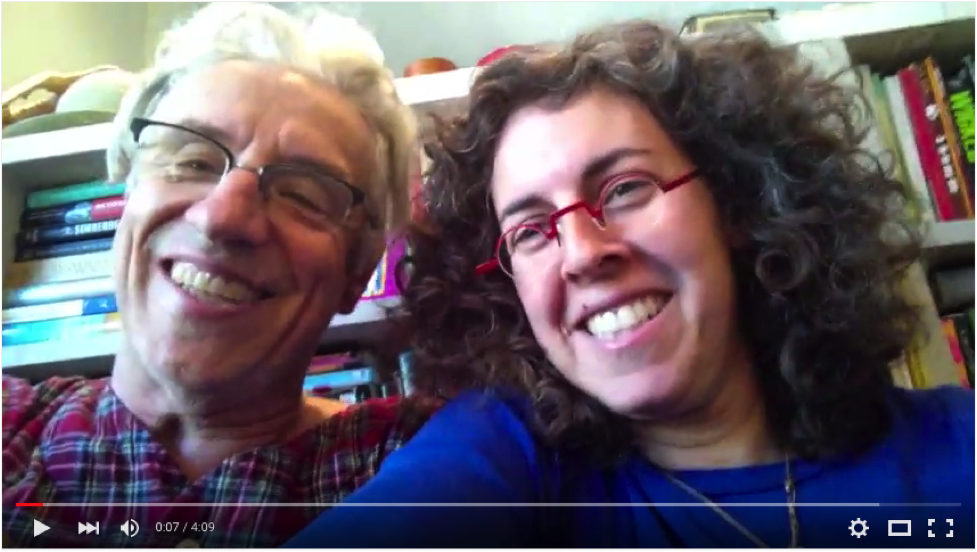
Books are rejected for two main reasons:
- The editor (or agent) doesn’t connect with the voice.
- The editor doesn’t connect with the character.
In this video, we explain how writers can revise their pitches and query letters to appeal to literary agents and editors. We cover fiction, practical non-fiction, narrative non-fiction, and memoir.
Click here to watch the video.
Join our newsletter to receive more tips on how to get published.
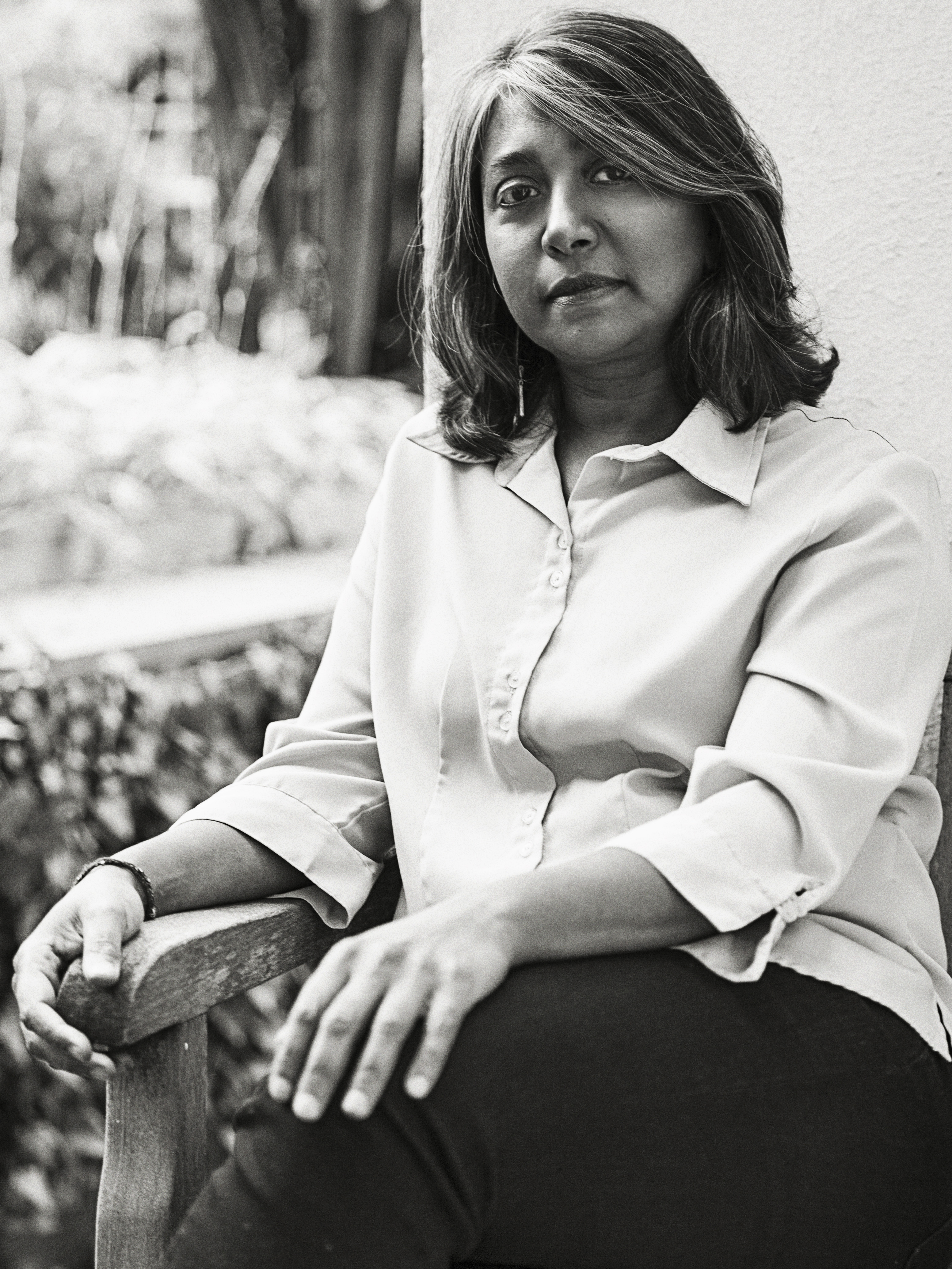
I have long been interested in the plight of the domestic worker, so when House Workers Unite: The Untold Story of African American Women Who Built a Movement came across my transom, I leapt on it. It’s a wonderful read, skillfully written and meticulously researched. So I thought I’d pick the brain of the author, Premilla Nadasen, and see what light she can shed on this dirty little secret of American life.
To read this interview on the Huffington Post, click here.
David Henry Sterry: What led you to become interested in the plight of the domestic worker?
Premilla Nadasen: I live in New York City and a little over ten years ago I learned of the amazing organizing by Domestic Workers United, a coalition of community-based groups representing different ethnic and racial backgrounds. I attended some meetings and demonstrations and was impressed with their innovative labor organizing strategies–especially at a moment when so many political commentators lamented the decline of the labor movement. As a historian, I began to think about antecedents to this movement as well as earlier instances of household worker organizing. I knew about the history of organizing among African American domestic workers–but was surprised that so little had been written on the post-period. So, I decided to write a full-length monograph of this movement. I found that examining the history of domestic worker activism adds a new dimension to the civil rights movement and labor organizing.
DHS: I’m a first-generation American, and I feel it has given me a very different lens than most when it comes to looking at the United States in terms of race, labor, and the class system. Has being raised by assimilating foreigners impacted the way you look at this country?
PN: Definitely. The immigrant experience for me has been partly about seeing the United States as a land of opportunity. We emigrated from apartheid South Africa, a violent, repressive country. My father had been involved in the anti-apartheid movement and was a victim of harassment. The United States, at least on the surface, seemed to offer something better. It didn’t take long, however, to learn that the U.S. had its own structural race/class system.
As an undergraduate student at the University of Michigan I was involved in a student organization that addressed both apartheid in South Africa and racism on the U-M campus. So, my immigrant experience and the barriers that my family and I faced enabled me to understand more clearly the brutal history of racism in this country. I don’t think, however, that the immigrant experience is uniform. There are immigrants who come here with both race and class privilege and use that to integrate into the power structure. Class matters.
DHS: How do you see the struggle of the household worker activists from the 1950s through the 1970s reflected in the world of 2015?
PN: Household workers of the 1950s and 1960s are the prototypical precarious workers. Precarious labor, so much a topic of conversation in the current moment, is work that is insecure, poorly paid, unprotected and unregulated. Workers may be employed temporarily or part-time, or be subcontracted or self-employed. Labor activists today are grappling with how to organize this kind of precarious worker–whether they are Uber drivers or adjunct professors.
I don’t see precarious labor as something new. Certain categories of workers, very often immigrants and people of color, have always labored in precarious conditions. Bracero workers from Mexico, Puerto Rican contract laborers, farm workers, domestic workers, among others, were denied many of the labor protections that were considered basic rights. So, even in the mid-20th century when most American workers seemed to benefit from good pay and generous benefits, some workers labored under precarious circumstances. Examining the activism of household workers in the post-WWII period can offer some lessons for contemporary organizers about how to mobilize this kind of workforce.
DHS: Do you see the relationship between labor, exploitation, race and class that you explore in your books reflected in the terrible events of the last year with video after video of police gunning down unarmed black men?
PN: The exploitation of African American household workers, their marginalization in the labor movement and their dehumanization on the job are ongoing themes in African American history. In many ways the struggle by domestic workers was a struggle for dignity, for recognition, for humanity, and for inclusion into the body politic. And this seems to parallel the contemporary movement against police violence.
The police violence directed at black people is not new, but has been with us for generations. What is new is that we are now able to capture some of that on video. The recent concern about police violence has been focused on black men as victims–to the exclusion of the many black women who have been victims of similar violence. The Black Lives Matter movement, however, has attempted to draw attention to the issues of gender and sexuality that inform state power and violence. Both household worker organizing and the Black Lives Matter movement mobilized against a larger male-defined narrative of racial injustice. Through their organizing these movements did center, and are centering, the stories and lives of African American women, which presents a different lens to think about both injustice and black liberation.
DHS: I’ve done a lot of work with traumatized people, and I found over and over again how telling stories can be a way of changing how people see themselves, how they see the world, and indeed telling stories can be a fundamental way to help change the world. Can you talk about the way storytelling impacted the people in your book?
PN: Storytelling was a central political strategy for African American household workers in the 1950s, 1960s and 1970s. It was a way for them to develop a collective identity–to see themselves as a constituency with a political agenda. It also tied their movement to the longer history of working-class African American women–very often their mothers, grandmothers, and aunts. So, they shared stories about domestic work that were passed down in their families, stories that in part shaped the historical narrative of African American women. These stories also illuminated some of the harshest aspects of the occupation and offered some guidelines for what decent domestic work looked like–what was considered appropriate or inappropriate for a household worker to do. Geraldine Miller, an activist, who lived in New York City, for example, was told stories of the “Bronx Slave Markets.” These were street corners where African American women stood during the Great Depression waiting to be hired as day laborers. These women were exploited and very often cheated out of their pay. Their bodies were bartered and looked over. Miller had heard stories about how potential employers would drive by “looking for the women with the most-scarred knees” because this was an indication that they scrubbed floors down on all fours. Miller repeated the stories of the slave markets in her organizing. It became a way to identify the occupation with the history of racial exploitation, but also, because she was outraged that women had to scrub floors in this way, Miller’s telling of this story implied that African American domestics would never, ever scrub floors on their hands and knees again. So, storytelling was incredibly important to this movement. It’s how they identified with one another and how they developed an agenda for reform.
DHS: What were some of the difficulties of writing this book? What were some of the joys?
PN: It’s always hard to write histories of poor and working class people because documentation is so limited. Poor and working class people, especially women of color, rarely kept diaries and letters, they didn’t preserve papers and documents, and they didn’t publish very much. Few journalists and writers took the time to interview them or tell their stories. Power influences what archival material is kept and whose stories are preserved. Middle class people are more likely to have contacts with journalists and publishers, so their experiences have come to define the historical narratives. Part of what I try to do is unearth those voices who were less prominent and who have been marginalized in the histories to see what they can offer in terms of thinking about struggles for justice and equality.
The joy in writing the book came when I uncovered their narratives and their stories about the lives and their work. I was fortunate that there were some oral historians and archivists who did preserve the stories of these women. I am thankful that there were people who had foresight and the wisdom to do this. The women in the book are truly remarkable. And I began to see the value in this history more clearly when I spoke to contemporary domestic worker activists who were empowered and inspired to learn of the women organizers who came before them.
DHS: What do you think can be done about the abuses that still occur with marginalized Americans and immigrants who toil as household workers?
PN: One of the arguments of my book is that the most effective movements are grass-roots movements–ones in which poor and working people are able to define their own struggle. And we know from history, as well as just looking around us today, that this is happening. The undocumented immigrant movement, Black Lives Matter, taxi drivers, domestic workers have established grass-roots campaigns to transform the conditions of their lives. So, I think a lot can be done about the abuses of household workers. But we have to take direction from those on the ground to see exactly how that will play out. Clearly, the myth that domestic workers cannot be organized was shattered long ago.
DHS: How does the world of domestic workers differ in terms of gender and race?
PN: Domestic work is a highly stratified occupation. There are white women and people of European descent who work as domestics. They tend to be the most privileged and highly paid. Undocumented immigrants of color who don’t speak much English are perhaps the most exploited. They have the fewest resources and often limited knowledge about their rights and how to secure them. Domestic work is fundamentally about power. And citizenship status, race, ethnicity, language, and gender, all determine the power differential between employer and employee.
DHS: When you watch the movie The Help, what was your reaction to it? I have some friends of color who were very offended by the fact that it had to have a pretty, skinny white girl as one of its heroes. I was curious about your take.
PN: The central theme in The Help is an old one in Hollywood: that of the white savior helping the less fortunate. From my perspective, the movie is less about African American domestic workers than about a young white woman’s journey of self-discovery. The domestic workers she encounters are simply an avenue or a platform for her to achieve that. Quite frankly, I’m tired of that kind of portrayal. We need to move beyond seeing African American history as a backdrop for white empowerment and give poor and working class people the space to tell their own stories and share the narratives of their lives.
Premilla Nadasen is an associate professor of history at Barnard College, Columbia University, and is the author of several books, including the award-winning Welfare Warriors: The Welfare Rights Movement in the United States. A longtime scholar-activist, Nadasen works closely with domestic workers’ rights organizations, for which she has written policy briefs and served as an expert academic witness. She also writes about household labor, social movements, and women’s history for Ms., the Progressive Media Project, and other media outlets.

If someone ever comes up to you & says, “Hey wanna go to Deadwood?” Do yourself a favor: Say Yes. Ditto the South Dakota Book Festival. The country is spectacular & so is the festival. Here are some pics to prove it.
Buffalo, prairie dawgs & writer.
Here’s a video:
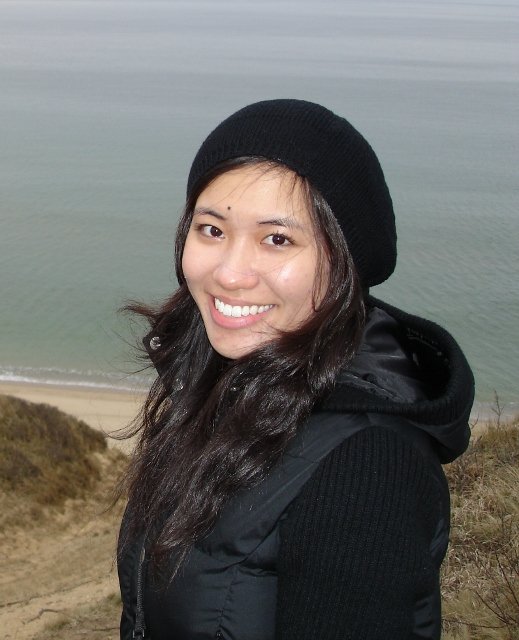
This is originally from a great website called Novel Pitch.
Gloria Chao was the winner of the 2015 Pitchapalooza contest put on by The Book Doctors. She and I connected via twitter. The following is her experience from the event. 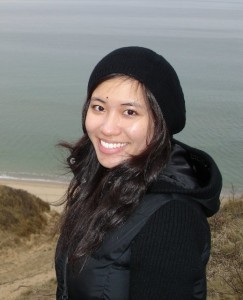
I am honored that NovelPitch has invited me to share my experience pitching in The Book Doctor’s 2015 Pitchapalooza contest. I’m a strong supporter of writers helping writers, and am excited to give back (though I wish I could give more!) to the community that has helped in my journey thus far. Thank you, Ralph, for your Novel Pitch efforts, and thank you, fellow writers, for your constant support.
I heard about the Pitchapalooza contest through Twitter and submitted my query. Based on The Book Doctors’ comments, I believe my pitch stood out because of the specifics—namely, the wording and humor. Since my novel is multicultural, I used words that gave a taste of Chinese culture, e.g. “sticking herself with needles” and “fermented tofu.” I also highlighted the wacky characters with phrases such as “expiring ovaries,” “unladylike eating habits,” and “Taiwanese Ivy Leaguer.” I think capturing the manuscript’s voice in the query was why my pitch was chosen.
Winning Pitchapalooza gave me confidence and the courage to keep fighting. It also helped bring my manuscript to the next level. I had struggled with my genre, pitching NA contemporary for the contest. The Book Doctors helped me realize this was the incorrect categorization, pointing me toward adult with suggestions to age up my manuscript by changing from first person to third. This released a flood of ideas, and I spent the next several months rewriting—adding 24K words, changing the POV, and writing with a women’s fiction audience in mind. I ended up with a manuscript that finally felt right.
The journey to publication is infamous for being long and relentless, but enjoying the small accomplishments along the way (and the writing, of course!) is what keeps me motivated. Putting ideas into words, sharing work with others, getting a personalized rejection, receiving a request, winning a contest—these are all achievements that require courage and are worth celebrating. And the writing community, including myself, will always be happy to celebrate with you!
Here are some of my tips for making your query stand out:
- If you’re new to querying, check out Query Shark, published authors’ blogs, Writer’s Digest, and craft books.
- Keep the 250 word count in mind, but only at the end. When you first start, just write. You’re more likely to have gems if you’re whittling down.
- Avoid clichés, generalities, and obvious stakes. Use unique words to convey your voice (and do this in your manuscript as well).
- Cut out every word that’s not essential. Too much detail bogs the story down.
- When you think your query is ready, get fresh eyes on it—family (my husband read a thousand versions of my pitch), friends, and other writers you meet through Twitter. Start with those familiar with your book, then end with people who know nothing about it. The latter will help identify confusing elements and will let you know if the pitch as a whole is not grabbing enough. Then, seize every critique opportunity by entering contests.
You can read Gloria’s winning pitch for AMERICAN PANDA here.
About Gloria:
I earned a bachelor’s degree from MIT and graduated magna cum laude from Tufts Dental—the perfect Taiwanese-American daughter. Except I wasn’t happy. To get through practicing dentistry, I wrote. It took years to gather the strength to push my dental career aside, against my parent’s wishes, to pursue writing full-time. Our relationship suffered, but my most recent novel, AMERICAN PANDA, strengthened our bond by forcing me to ask questions I never dared before. Now, my mother and I laugh about fermented tofu and setups with the perfect Taiwanese boy (though I think she still worries about my expiring ovaries).
You can find out more about Gloria at her website and on twitter.
Website: https://gloriachao.wordpress.com/
Twitter: https://twitter.com/gloriacchao
We first met Melissa Cistaro when she pitched her book to us at a Pitchapalooza we did for Book Passage (one of America’s great bookstores) in Corte Madera, California. We’ve been doing this so long we can usually tell when someone has a book in them and is capable of getting it out successfully. And we knew Melissa had the right stuff as soon as she opened her mouth. Arielle then made a suggestion to Melissa that she calls perhaps her greatest move as a Book Doctor: she told Melissa that she should get a job working at Book Passage. This is what separates the doers from the talkers. Melissa actually did it; she got a job at Book Passage. Eventually she became the person who introduces authors when they do events at Book Passage. Some of the greatest authors in the world come through that bookstore. Now Melissa gets to move from being the person who presents authors to the author being presented. So we thought we would pick her brain to see how she did it.
To read this interview on the Huffington Post, click here.
The Book Doctors: How did you get started as a writer?
Melissa Cistaro: This may sound odd, but I think that becoming a mother is what turned me into a writer. Even in college, I still considered writing one of my greatest weaknesses. But when I saw my own child for the first time, I knew I had to figure out how to tell the stories that had been hiding inside of me for so long. I started taking classes at UCLA Extension, and it was there that I caught a glimpse of my writing voice–and after that, I couldn’t stop writing. I’ve always believed that motherhood opened a portal inside of me that gave me permission to write. If I hadn’t become a mother, I don’t know that I would have become a writer.
TBD: What are some of your favorite books and why?
MC: In the house I grew up in, we rarely had access to books. I was not a child who discovered books early–they came late for me, and when they did, I had a lot of catching up to do. One of the first books to completely mesmerize me was Arundhati Roy’s The God of Small Things. The language was magical and the story deep, evocative and riveting. I am often pulled into stories through language. Fugitive Pieces is another book that I drew me in with its incredible poetic narrative. Divisadero by Michael Ondaatje and a short story collection by John Murray called A Few Short Notes on Tropical Butterflies. Oh this is hard! I could go on and on with favorite books.
TBD: What made you decide to write a memoir?
MC: I started this story as a work of fiction. It was easier for me to dive into it as someone else’s narrative rather than my own. For years, I wrote calling myself Paisley Chapin in the story, but eventually I realized that I wasn’t very good at drifting away from the truth, as I knew it. Early on, I showed my oldest brother some chapters, and he said to me, “Sorry Sis, but this ain’t fiction you are writing.”
TBD: How has your family reacted to seeing themselves in print?
MC: The book was very difficult to hand to my father. There were many facets of our childhood that he wasn’t aware of–and it was definitely emotional for him to take in our story on paper. He has been exceptionally supportive of the book and, ultimately, a proud father. My brothers also have been generous and supportive. Naturally, there were some details that we recalled in different ways, and we have since had some great conversations about our childhood.
TBD: You attended a number of writing programs, do you recommend this? What are some of the benefits and liabilities?
MC: Classes and workshops were crucial along the way, as was being in a writing group. But I eventually got to a place in the process where outside input began to stifle me as a writer. The feedback was always helpful, but I also had to take responsibility for what I ultimately wanted to write. If there are too many voices and opinions, it can get overwhelming. I’ve become less fond of workshopping and more of a fan of having a few select and trusted readers.
TBD: Which helped you more as a writer, being an equestrian or a mom?
MC: Whoa–this is an interesting question. I don’t know if I’ve ever considered how riding has informed my writing. Communicating with an animal requires a great deal of paying attention and observing, and I think that certainly translates into the writing process. I once had to throw myself off of a horse that was running at full speed back towards the barn. I could see the low awning of the barn ahead, and I knew I had lost control of the horse. I didn’t want to end up trapped under the awning or thrown dangerously sideways–so I made a decision to pull my feet out of the stirrups and make a flying dismount. I skidded and tumbled across the hard summer dirt, landing safely (and sorely) between two spindly birch trees. I think, whether we are parenting or writing or on a runaway horse, we have to make big decisions and sometimes we don’t know precisely what the outcome will be.
TBD: Did working at a bookstore help you as a writer?
MC: Absolutely. If you love books as much as I do and you want to surround yourself with likeminded people, go work in an independent bookstore. Bookstores are magical places. You get to meet authors and discover new books all the time. I also learned how sometimes great books thrive and other equally beautiful books can sometimes wither on the shelf. I quickly gleaned how subjective the world of books can be. This armored me with very humble and realistic expectations as I entered the publishing arena with my own book. I had a completed draft of my memoir when I started working at Book Passage, and I decided to put it in the proverbial drawer for a year so that I could focus on other books and writers. This turned out to be a great plan. Two years later, I met my agent during an event I was hosting.
TBD: You’ve now seen hundreds of authors do events as event coordinator at one of the great bookstores in America, Book Passage. What mistakes do you see writers make? What do you see successful writers do to help themselves?
MC: I have a wonderful job at Book Passage. I introduce authors, host their events and read their books. I find that, for the most part, authors are truly grateful and gracious when they come to Book Passage. I learn something new at every event I host. I take a lot of notes. We always appreciate when an author stands up and thanks independent bookstores for the hard work they do, because we certainly don’t do this work for the money (which is essentially minimum wage). We do this work because we love working in the landscape of books, ideas and creative minds.
TBD: What did you learn about finding an agent and publisher that you think unpublished writers would like to know?
MC: Finding that one agent who falls in love with your work takes a lot of time, patience and perseverance. Expect a lot of rejection. Grow extremely thick skin. And keep writing what you are passionate about. When you find that agent, he or she will help get your manuscript to the right publisher.
TBD: What was the most frustrating part of the publishing process from idea through publication for you?
MC: The publishing process is full of surprises, and I had to carry my publishing “Bible” with me everywhere. (That would be your book!). There are so many things you can learn in advance about how publishing works and all the ins-and-outs of contracts, deals, agents, etc. It was a tremendous and challenging education going through the publishing process. The landscape is changing so fast that it’s important to keep informed.
TBD: How can writers best use their local bookstore to help them in their career?
MC: Support your local bookstore. This means buying books from them. Attend their events. Introduce yourself to the booksellers and tell them you are a writer. Ask them for advice and book recommendations. Let them know you are not going to get a recommendation and then go purchase it for a few dollars less online. Today there are many ways a writer can professionally self-publish their books, and this is a perfectly respectable way to publish. Just make sure that if you self-publish, it’s on a platform that is compatible with independent bookstores. (This is kind of homework that authors need to do when looking into their publishing options!)
I love meeting writers at Book Passage, and I appreciate when they tell me they are a writer because I know how challenging this path is. I also know that one day they may come in and tell me that their book is being published–and guess who is going to make sure that they get a reading at Book Passage?
TBD: What advice do you have for writers?
MC: If there is a story you need to tell, you must do it. You must keep writing and writing until you are both empty and full. No story is too small for this world.
Melissa Cistaro‘s stories have been published in numerous literary journals, including the New Ohio Review, Anderbo.com, and Brevity as well as the anthologies Cherished and Love and Profanity. She works as a bookseller and event coordinator at Book Passage, the esteemed independent bookstore in Northern California. Between the years of raising her children, writing, bookselling, teaching horseback riding, and curating a business in equestrian antiques – Melissa completed her first memoir, Pieces of My Mother.
Arielle Eckstut and David Henry Sterry are co-founders of The Book Doctors, a company that has helped countless authors get their books published. They are also co-authors of The Essential Guide to Getting Your Book Published: How To Write It, Sell It, and Market It… Successfully (Workman, June 2015). They are also book editors, and between them they have authored 25 books, and appeared on National Public Radio, the London Times, and the front cover of the Sunday New York Times Book Review.
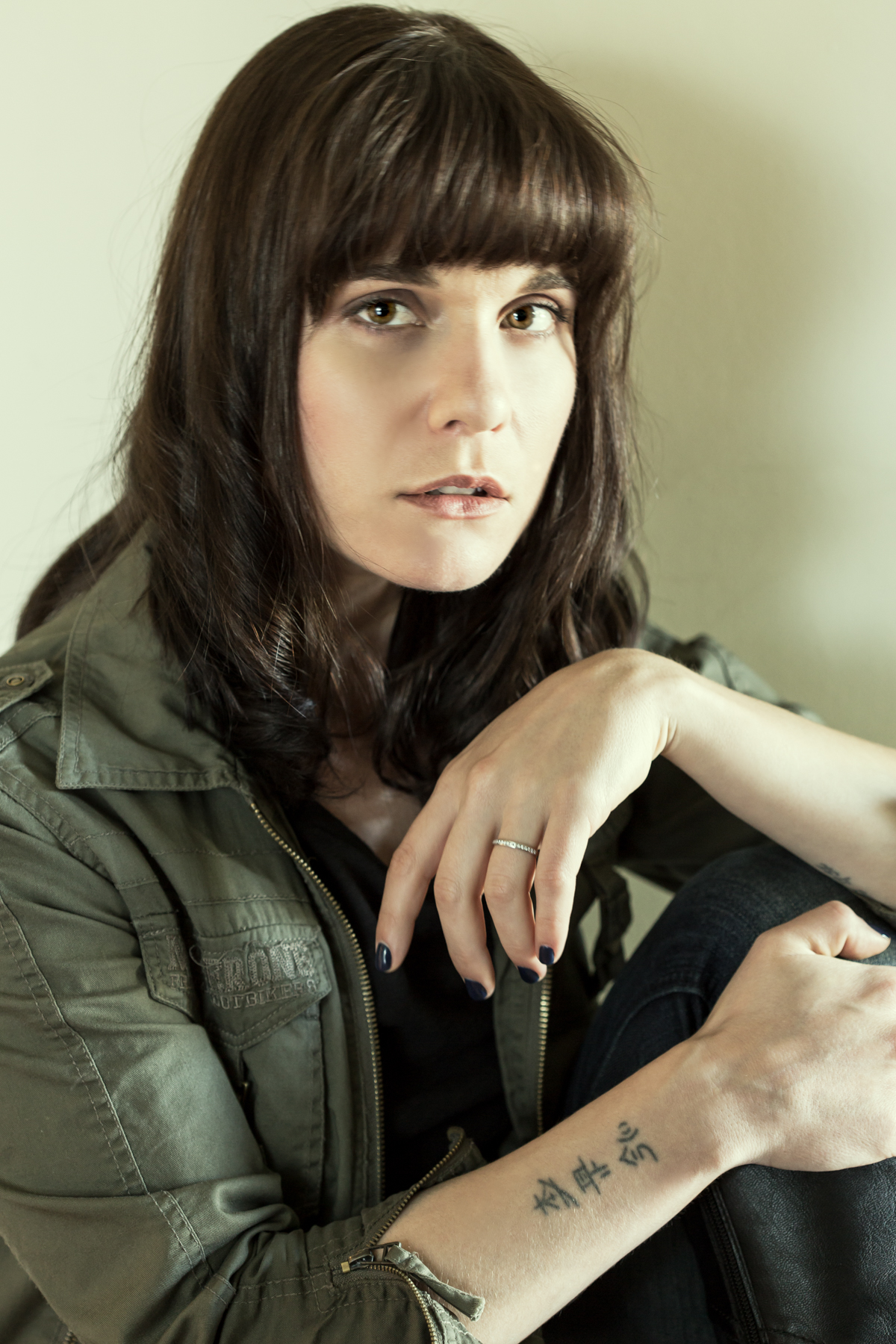
I first met Alice Carbone when we connected about sex and addiction. I spent a lot of my life being addicted and having sex. Then trying to not be addicted and not have sex. We soon found out that we were cut from the same cloth, in many ways. She told me she was working on a novel. But then, everyone tells me they’re working on a novel. Approximately 0.1% of the people who tell me they’re working on a novel actually write the novel and get it published. But that’s the kind of person Alice is. Not only did she tell me she was going to write a novel, she wrote the novel and got published by a fantastic publisher. Now that her book is out, I thought I’d pick her brain to see how she’s doing with books and sex and addiction.
To read this interview on the Huffington Post, click here.
David Henry Sterry: This is your first novel. How exciting was it when the box of books showed up?
Alice Carbone: It’s funny that you ask that, because due to uncontrollable circumstances, I still haven’t received the ‘famous box.’ But I did hold the actual book in my hands during the book launch at Book Soup in Los Angeles a few weeks ago. In fact, during the event I talked about learning how to accept life obstacles as part of our path, and I guess the box is one such obstacle. I can’t wait to open it.
[Aside from interviewer. This came in a couple of days ago from Alice: “I just wanted to tell you that I have just received THE BOX and I am beyond excited. I cried. It finally feels real and makes me feel very proud and hopeful for the future — something that doesn’t necessarily come easy, natural to me. There is a book on my lap as I’m writing this, and a smile on my face.”]
DHS: How did you go about getting your first novel published?
AC: After an endless number of rejections and almost giving up, my publisher, Tyson Cornell at Rare Bird Books, took the time to read it and shortly after emailed me back; he wanted to publish The Sex Girl. And the most interesting part of the publishing process was working with an editor for the first time. I looked forward to it for a long time, to learning more about language structure and writing; English not being my native language. My editor, Julia Callahan, and I had a very productive dialogue that helped shape the novel.
DHS: I hate to ask you this, but did you draw a lot from your own life when writing about difficult subjects like sex and addiction?
AC: I understand why people ask. At the end of the book, I wrote a personal message to my readers where I say that I have myself suffered from alcoholism, depression, addiction and eating disorders; as a consequence, my sexual life wasn’t idyllic. What a portrait, huh? However, the story is fictional; the main character, K, is fictional. What is not fictional are the feelings in the book. They are very personal and — hopefully — at once universal. I always felt voiceless growing up. So with this novel, I took my voice back and tried — at the same time — to give a voice to all those women I met along the way, women who have not been blessed, like me, with recovery, tools and some serenity. It was a healing process, too. I am very different from the Alice who wrote it five years ago.
DHS: Your book was the number one novel at one of Los Angeles’s most influential bookstores, Book Soup. How did you go about building community, arriving as you did a few years ago in such a strange place from another country, another world?
AC: When I moved to Los Angeles in 2010, I started a blog called WonderlandMag. The publication then became Coffee with Alice, but the purpose of what I was doing has never changed, which is to communicate with my readers with honesty. I’ve never been afraid to show my vulnerability when it came to the written word. At times I wish I were, because looking back to the essays I wrote over the years, I often feel somewhat naked.
Now, to give you an example and possibly explain why The Sex Girl jumped to number one at Book Soup, during the celebratory afternoon I shared with the audience about my recent, severe depression, with humor and yet candid truth. I also told them what I was doing to heal and go back to regular life. I discussed the many obstacles this book has encountered and admitted that seeing obstacles in life is something I unconsciously (or consciously) tend to do. I wrote The Sex Girl in a language, English, that isn’t my native one. But instead of being proud and enjoying the journey of learning, I felt stupid and dragged my self-imposed burden with shame. Some readers have identified with my story since day one; others have grown to appreciate my slow improvement with time. I believe that the key is always speaking with your heart, whether you are writing fiction, interviewing an artist or making music.
The heart never lies; people pick up on truth more than anything else. It may not pay off right away, but it never goes unrewarded.
DHS: How did you learn to become a writer?
AC: Ah! I am still learning and always will be. But I always lived in my own world, in my own head, since I was a kid and did not particularly like the world around me. I used to tell impossible stories. I tried to be a singer; I wrote my own songs, and yet my singing voice isn’t at all extraordinary. But writing has always been healing for me, whether in the form of poetry, short stories or lyrics for a song. The world of the novel opened up a new, fantastic universe of possibilities.
DHS: What are your some of your favorite books and authors, and why?
AC: Joan Didion has been a teacher from a distance since I moved to the United States five years ago. There is something unique about the way she weighs the sentence, the number of words, the paragraph. Her rhythm is what I am after, something I try to learn from every day. And then Norman Mailer, Don DeLillo, Raymond Chandler, the Italian Italo Svevo — The Zeno’s Conscience is one of my favorite books, Cheryl Strayed… I am currently reading Chanel Bonfire by Wendy Lawless, simply heartbreaking, utterly moving. But the list could continue almost ad infinitum…
DHS: You’ve interviewed tons of writers for Coffee with Alice. How has this affected the way you look at writing, books and life?
AC: It has taught me about patience and humility. Every great artist that I have had the honor of interviewing for my podcast, from Janet Fitch to Jerry Stahl and Nayomi Munaweera or Royal Young, just to name a few, has taken me by the hand to show me their journey. You gave me a fantastic interview as well; it was a terrific hour of learning for me. By doing so you all gave me hope. Looking back, I realize that during the writing of The Sex Girl, at times, I aimed for the top of the mountain to such an extent that I forgot about the journey. I am trying to not make the same mistake again the second time around, now that I am writing my second novel.
DHS: How do you get such cool and interesting people to talk with you for your podcast?
AC: I ask the same question of myself! They were all kind and humble enough, from the very beginning of my career, to give me a chance. They liked my writing and believed in me. With time passing by, the podcast has gained more attention, and today I am considered more legit. For the many terrific music guests, I am lucky to have a husband, Benmont Tench, who’s a well-known keyboard player; I get to hang out with many talented artists on a daily basis. I am blessed. However, the rejections I get far outnumber the guests that appear on it. Coffee with Alice is about to go on a hiatus nonetheless; I have two more guests and then I will concentrate on just writing for a while.
DHS: What are some of the joys and difficulties of being a writer for you?
AC: What a terrific question this is! I find many difficulties, especially because my brain still goes through some kind of translation process and because my vocabulary is constantly expanding. Everything is difficult for me, in English. Having discipline is difficult for me. In fact, I try to wake every morning at 7:00 to write, to build a routine. But curiously enough, that’s also where the joy comes from — having a purpose and having written at the end of day — something that has a meaning for me, or that I know will, eventually.
What Joan Didion says in her essay “Why I Write,” “I write entirely to find out what I’m thinking, what I’m looking at, what I see and what it means. What I want and what I fear,” is something I can very much relate to; the more I write, the more I deepen my relationship with myself, people and this world. When I write I grow as a human being. I don’t know how this happens, but it’s fascinating, and it also helps me hold on during difficult times, when all I want to do is give up.
DHS: I hate to ask you this, but what advice you have for drug addicts? Immigrants? Interviewers? Writers?
AC: I don’t like to give advice, because I am still in the process of learning myself. But I would probably tell writers to never stop writing, that the job is difficult, sometimes frustrating, often painful, but if you are a writer it will be worth the journey. Addicts and alcoholics…there is another, beautiful life that I had no idea existed. The perfect life doesn’t exist, but the one I have today is the most beautiful I could have ever wished for. Seek recovery. Immigrants…Good luck, truly, with all my heart!
Alice Carbone Tench is an Italian-born author and journalist based in Los Angeles. Former translator and interpreter from Turin, she moved to Los Angeles in 2010. Her debut novel–The Sex Girl–is out now by Rare Bird Books. She also created the interview podcast Coffee with Alice that airs twice a month on iTunes. In 2014, she was a weekly contributor to Anna David’s recovery website After Party Chat. In October 2014, Alice Carbone was the subject of a documentary aired on the Italian network RAI with Moby and bestselling author Jerry Stahl. When nominating her for the Shorty Awards 2014, radio legend Phil Hendrie defined her literary voice as ‘Columbia’s… in love with America again.’ Alice is currently working on her second novel. She lives in Los Angeles with her husband, keyboard player Benmont Tench.You can follow her on Twitter, Instagram or Facebook.
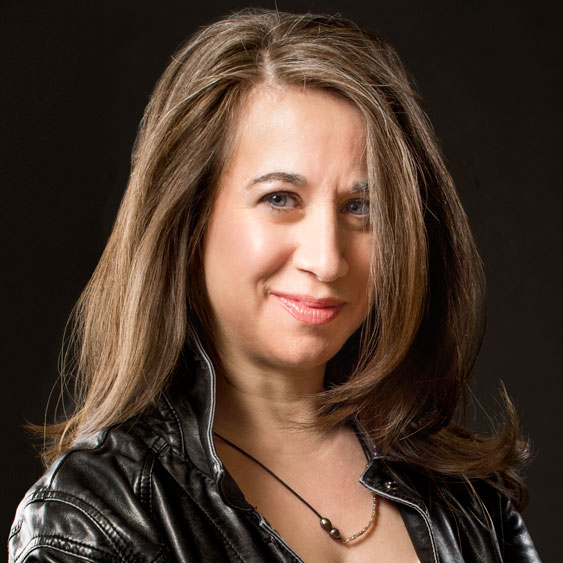
We first met Jenny Milchman when we heard about some crazy book tour she was doing that seemed almost as ridiculous as the book tour we were doing. Essentially, The Book Doctors have been on tour for seven years, during which time we’ve done over 300 events. We wanted to connect with Jenny to see how she was doing it, and maintaining her sanity. When we reached out to her, we found out she was not only a wonderful writer, but also a wonderful human, generous, smart, funny, down-to-earth, full of joy and expertise. Now that she has a new book out, we thought we might pick her brain about books and writing and yes, touring.
To read this interview on the Huffington Post, click here.
The Book Doctors: How did you first become interested in being a writer?
Jenny Milchman: I don’t remember a time when I didn’t want to be one. In fact, the desire, or predilection, or bug apparently predates conscious memory. All of my [failed] college essays began with the line, “I wanted to be a writer before I knew how to write,” which came from an anecdote my mother told about how she used to write down bedtime stories that I dictated at the age of two.
TBD: How did you learn how to become a writer?
JM: I did a lot of workshop-type things between high school and college. Summer Arts Institute in New Jersey was formative, and I studied with poets like the late Kenneth Koch and Robert Kelly in college. But the way I learned to write a novel, a whole, structured work of long-form fiction, instead of just scribbling lines and starts until I’d lost interest, was by reading every book on craft I could get my hands on. I called it my self-inflicted MFA and during the years I was inflicting it, I must’ve read every book in the Writer’s Digest catalog. And a whole lot more. Albert Zuckerman of Writers House fame wrote a great book called Writing the Blockbuster Novel. Donald Maass wrote The Breakout Novel. Anne Lamott, Bret Lott, Stephen King, James N. Frey–not the scandalous one–the list goes on and on and on and on. Those authors schooled me more than any class.
TBD: What are some of your favorite books, who were some of your favorite authors, and why?
JM: Oh, gosh, this is always the toughest. Impossible really. I loved the great short storyists growing up. Shirley Jackson’s “The Lottery,” Richard Connell’s “The Most Dangerous Game,” W.W. Jacobs’ “The Monkey’s Paw.” Anything by O. Henry. I studied the Victorians in college and all three Bronte sisters, George Eliot, and Henry James were great favorites of mine. But perhaps the most visceral authors, the ones who really took my heart in their hands and squeezed it into a ball, were the great horror writers of the 1970s. Ira Levin, Frank De Felitta, David Seltzer, William Peter Blatty, and of course, Stephen King.
TBD: How did you get your first book deal?
JM: It took me 11 years, 3 agents, and 8 novels before I finally landed a book deal with Ballantine. How it happened required all eleven of those years: reading those books on craft, going to events at bookstores and seeing how real authors did it, building a circle that included people like you, David, and Arielle. But in the sense that big events do come to one single moment in time…this one rested on a favorite author, Nancy Pickard, who read my eighth novel in manuscript form and passed it on to her editor. I’ve been with the same editor for both books since my debut, and I hope we never part. My third novel is dedicated to Nancy and our mutual editor.
TBD: How do you deal with rejection?
JM: I stomp around and cry and whine and scream. I break computer screens. Seriously–when a much loved bookstore declined to do an event with me, I fell over my computer sobbing, and the screen cracked. Don’t be like me.
Rejection is part and parcel of this business–I just never got good at accepting that.
TBD: What is your new book about?
JM: If I tell you that As Night Falls is about two convicts, one huge and one wiry, who escape from an Adirondack prison, would you believe me? But on a deeper level, it’s about how a mother’s love can go awry, twisting and thwarting the generations to come in one unending double helix. When the convicts encounter a family contained by a snowstorm in their mountain home, only unveiling the secrets from the past will allow for true escape.
TBD: Why did you decide to go on the longest book tour in the world, and how did you go about setting it up?
JM: You mean not every published author rents out her house, trades in two cars for an SUV that can handle Denver in February, asks her spouse to work from the front seat while the kids are car-schooled in the back, and hits the road for 50,000 miles? What??? Oh right. My publisher was skeptical, too.
But when it takes you eleven years to get published, you either make a lot of friends or a lot of enemies along the way. I was lucky enough to make friends. And when I finally had a book released, I wanted to go out and thank them. Face-to-face. The world’s longest book tour–as Shelf Awareness called it–made the virtual world come alive, and that’s when true magic sparks, in my opinion.
And since my debut novel wound up going into six printings in hardcover, people became a little less skeptical. I wouldn’t say that sending authors around the country for seven months has quite become standard operating procedure for the Big 5, but by this third tour, my publisher is helping with some of the events and cost. I also have a crack independent publicity team, a husband who is heck at the traveling salesman problem, and a whole country full of bookstores, libraries, book clubs, writers’ organizations like Sisters in Crime, and readers who know how to unroll one beautiful red carpet.
TBD: What are some of the things you love and hate about being a professional writer?
JM: At the risk of sounding Pollyanna-like, I love almost everything about it. This might be due to the whole eleven year thing. I’m so grateful to be where I am–I get paid to make up stories, and people actually want to read them–that sometimes it’s hard to see straight. Seeing a book of mine on a shelf catapults me back to the time when I was a small child, reaching for a title, and knowing that a whole other world awaited me inside. Getting to meet other writers, readers, booksellers, librarians, reviewers, journalists, interviewers, radio personalities, TV hosts, editors, agents, publishers…the people who keep this world of words churning, is an honor every single time. Writers’ conferences are sheer bliss for me. There’s one coming up–ThrillerFest–and I get tingles of excitement imagining being there. I honestly can’t think of a more thrilling industry–and we’re not as mean as Hollywood or Nashville.
But one thing does bum me out. I have trouble getting past a bad review. At least I haven’t broken any computer screens over a review. Yet.
TBD: When you win the Mary Higgins Clark award, does she come to your house and hang out with you? Who do you have to pay to win one of those awards?
JM: Well, in all seriousness, Mary does hand the award to you herself. And let me tell you, she is the most elegant doyenne anyone could hope to meet. After eleven years of rejection, that night provided balm for some wounded nerves. I would’ve paid a lot for it, but the truth is I think the awards process is fairly pure. A few years ago, I judged a major award and was a conduit for the most representative taste, not the big hits, nor the expected favorites, or the books that got the biggest push. It’s gratifying to me, especially as we come up to a big election year, that some things really can’t be corrupted.
TBD: I hate to ask, but what advice do you have for writers?
JM: Do ask! Please ask! I love this one. First, come find me, either virtually or on the road, because sharing, not advice (what do I know?), but a compendium of perspectives, tips, and stories gleaned from meeting many, many writers, struggling and successful, as well as publishing people, is one of the things I most love to do.
But if I had to boil all advice down to one single nugget it would be this. Know that anything we write can always use more work. It is never as good or done as we think it is. Critical feedback is like gold. Whether we accept it or not. Hearing different takes on what we create is the only way we will make it appeal to a broad range of readers. And that’s what we’re all hoping for, isn’t it? That’s why we write and read. To find the story that will carry us away.
Jenny Milchman is the author of the summer thriller, As Night Falls, a July Indie Next Pick. She has just hit the road on her third “world’s longest book tour.” Find her–literally–at http://jennymilchman.com/tour/bring-on-the-night-2015.
To receive more interviews like this one, join our newsletter.
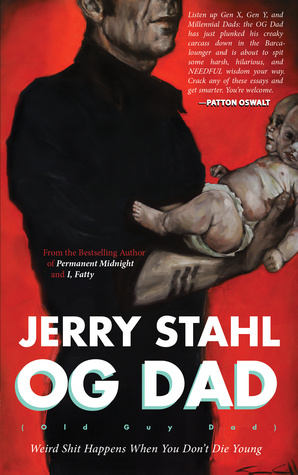
I’m lucky enough to say I’ve now known Jerry Stahl for over a decade, and we’re both still alive. Ten years ago you could’ve gotten very good odds betting against that happening. Now we’re both OG Dads: Old Guy Dads. So it was with great joy that I found out he had compiled a book out of the filthy and sweet, perverted and lovely, hysterical and horrifying columns he wrote for Rumpus about becoming a father in what should be the beginning of his Golden Years. I had to find out why he was willing to strap on the diapering hat while in a position to be adult-diapered himself. By the way, if you’ve ever been a parent, or ever been a kid, and you’re not squeamish (hell, even if you are squeamish, especially if you’re squeamish!) you need to read this book.
To read Jerry’s interview on the Huffington Post, click here.
David Henry Sterry: First of all, what were you thinking becoming a dad when you are well over the age when that sort of thing even remotely makes sense?
Jerry Stahl: It didn’t make much sense the first time around either—when I was strung out like a lab rat. Maybe the little fuckers just need to show up. If people waited for the right time, the world might be underpopulated, instead of over. But regardless of logic or circumstance, you love them, and you get to love them, in a way that you can’t or don’t or never will love anyone or anything else. Not sure making sense is part of the package.
DHS: Do you feel it’s easier to be a good parent when you’re taking heroin on a regular basis, or when you’re not?
JS: No getting around it, it’s easier to be up all night and you stay pretty even-keeled on smack. I was never a nodder—I could function on it—the problem was functioning without it. (Like Burroughs said, when asked about why he did dope, “So I can get up in the morning and shave.”) That said, it’s impossible to be kicking heroin—when you are in the ultimate needy baby-state—and also taking care of a baby. (There are no bigger babies than junkies.) The two needinesses can’t co-exist. I wouldn’t advocate for heroin-fueled parenting.
DHS: I love that you invoke Yates at the beginning of the book about the “terrible beauty” of raising a girl. I myself have a seven-year-old, and every day I face the terror, and the beauty. Can you give us an example of those two things in your daily life?
JS: The examples are pretty much non-stop. I’m as blown away by seeing my 26-year-old navigate the world as seeing my rambunctious 3-year-old discover it. The terrible part is knowing what happens to beauty, and to all good things in this world. Nobody gets out alive, as has been said more originally and more intelligently before. Somehow you don’t—or I didn’t, any at any rate—feel it as profoundly until having children.
Today my little one cracked her head open at pre-school. It’s her third visit to the ER. The fragility of the whole enterprise—that, too, is terrible and beautiful. The unlikeliness that anything survives. And in our current epoch, and the even worse Naomi-Klein dystopia of parched earth, poisoned food, nuclear moronicism (and these are just the good things) that awaits, the terror is even more profound. The guiltiest thought of all is that older guys—older people—may be the lucky ones. Because what’s going to happen after we’re gone—that may be the worst terror of all.
DHS: I know that as a former addict, lunatic and indulger in high-risk behavior, I am worried that my crazy shit is going to be inherited by the sweet, innocent little child I have spawned. Do you?
JS: I don’t worry about it. Who knows what’s nature and what’s nurture? My whole theory of childrearing is “try and fuck them up the opposite of the way you were fucked up.” With any luck, knowing there’s that propensity for crazy, high-risk shit, you can try not to feed the beast. But if the beast is coming, the beast is coming.
DHS: This seems so much like a new Netflix show; have there been thoughts and inquiries about transitioning this from a book into a TV series?
JS: Always thoughts, always inquiries. You never know. Johnny Depp, God bless him, optioned my novel, I, Fatty, over a decade ago, and it’s still on the soon-to-be-never-made shelf. So I take it all with a big screen-sized grain of sea salt.
DHS: For me, one of the most challenging things about being a fifty-something with a young child is having to hang out with all the other parents. Do you have any techniques you like to share for dealing with the helicopter/over-entitling/attachment-disordering parents?
JS: I actually can’t. Beyond lighten the fuck up. I am not the helicopter guy. Maybe it’s because I have a an older child who’s 26 and one of the funniest, coolest, smartest, most beautiful, big-hearted and together people I know on the planet—despite having had me as a father. That is a long-winded way of saying, whatever one’s intentions, kids are such nuance-sponges that intentions don’t matter.
If I’m uptight she’s gonna sense it and it’s gonna make her uptight. I know what it’s like to be thus psycho-emotionally infected. Let’s just say my own parents were not on the cover of How To Parent And Not Raise A Neurotic Freak magazine. So, if nothing else, I know what not to do—and how not to be. Helicoptering and the rest of it is not the problem; the human condition, that can be a bitch.
DHS: Does it bother you when people ask if you are the grandfather? I thought it would, but it really doesn’t bother me at all.
JS: I haven’t got the gramps thing yet. I looked older at 39 than 59, thanks to the twin fangs of virulent Hep C and a monstro dope habit. (Or—who am I kidding—if not older, at least greener and moldier.) Maybe because LA is so morally bankrupt there are plenty of old fucks running around in my situation. Not that it implies moral bankruptcy. But it’s not exactly an aberration. DeNiro just had a kid, and he’s got a decade on me. The goalpost is forever moving.
DHS: Do you worry about when your child gets old enough to Google you and asks, “Dad, how come you used to like heroin so much?”
JS: That’s funny. I told my older daughter she could read Permanent Midnight when she’s 40. So far she’s had no trouble holding off. In the meantime, I don’t think kids, or even twenty-somethings, are overly concerned with their parents’ history. They’re too busy trying to make their own. At least I don’t have any secrets about the past. For better or worse, they’re all out there to read or watch on the Sundance Channel at four in the morning when they rerun the movie.
DHS: I hate to get all “happy happy glory hallelujah” on you, but when I look back on my life, I realize I should be dead a dozen times over by now, and I have a profound sense of gratitude that I somehow didn’t die young, especially when I look at my child doing something beautiful and spectacular. Does this happen to you, or am I just crazy?
JS: Maybe both. Much of my life was spent trying to endure life—as opposed to live it. But somehow, knowing what I do is for someone else, some tiny, beautiful weirdo who thinks rabbits live under the bed making fun-candy, I can rise above, can feel all the joy I could never feel when it was just me. Even if I don’t feel particularly joyful—I still have the temperament of a guilty survivor—I can still make it about her enough so it doesn’t matter what I feel. Nothing makes you forget yourself like a child.
And yeah, it’s fucking crazy. But it’s the best kind of crazy there is. We know the odds against all of it: being alive, having a child, having a healthy child … all of it. But here the fuck we are.
DHS: As the Book Doctors, Arielle and I are always looking for new and interesting ways for people to get published. What was the process of taking your column and turning it into a book?
JS: Pretty simple actually. I gathered up the stuff I had and wrote a bunch of new ones so people who actually read the columns on The Rumpus would want to grab a copy too. Then I asked a painter friend of mine, Shannon Crawford, who also did the cover an earlier book, Bad Sex On Speed, to come up with something for the cover: me holding a tiny, two-headed baby, who happens to have my own little girl’s face. Things rarely go that smoothly, but once in a while they do.
DHS: Do you have any tips about writing about your own life? Do you have any tips for Old Guy Dads?
JS: My only advice: don’t listen to me.
Beyond that, I don’t give advice. My experience, however, is if writing about your life (or writing in general) is a choice, you probably don’t need to be doing it. If, however, you’re doing this… thing—and are compelled to keep doing it—then you probably wouldn’t listen to anybody anyway. From the time I was 16 on, I had people telling me not to write, to get a day job, etc… etc… If I could have, I would have. But I have no particularly marketable skills, so of course I became a writer. I admire people who can come up with gimmicky ideas and make a shit-ton of money. I just don’t find them particularly interesting. At the end of the proverbial day, I’m always gonna take Raskolnikov over Romney.
As for Old Guy Dads—well, speaking for myself, I used to think we were only here for a cup of coffee, but that’s no longer true. Old guys, we’ve had the coffee, and we’re waiting for the check. Might as well enjoy yourself—and, more importantly, try to help other people do the same—before it’s time to settle up. And always tip big.
Author, journalist, and screenwriter Jerry Stahl has written eight books, including the memoir Permanent Midnight (made into a film with Ben Stiller and Owen Wilson), and the novels Pain Killers and I, Fatty (optioned by Johnny Depp). Former Culture Columnist for Details, Stahl’s widely anthologized fiction and journalism have appeared in a variety of places, including Esquire, The New York Times, Playboy, The Rumpus, and The Believer. Stahl edited the anthology, The Heroin Chronicles, published by Akashic Books; and his latest novel, Bad Sex On Speed was released by A Barnacle Book, an imprint of Rare Bird Books. Stahl co-wrote the HBO film Hemingway & Gellhorn with Clive Owen and Nicole Kidman. His latest novel, Happy Mutant Baby Pills, was published by HarperCollins.
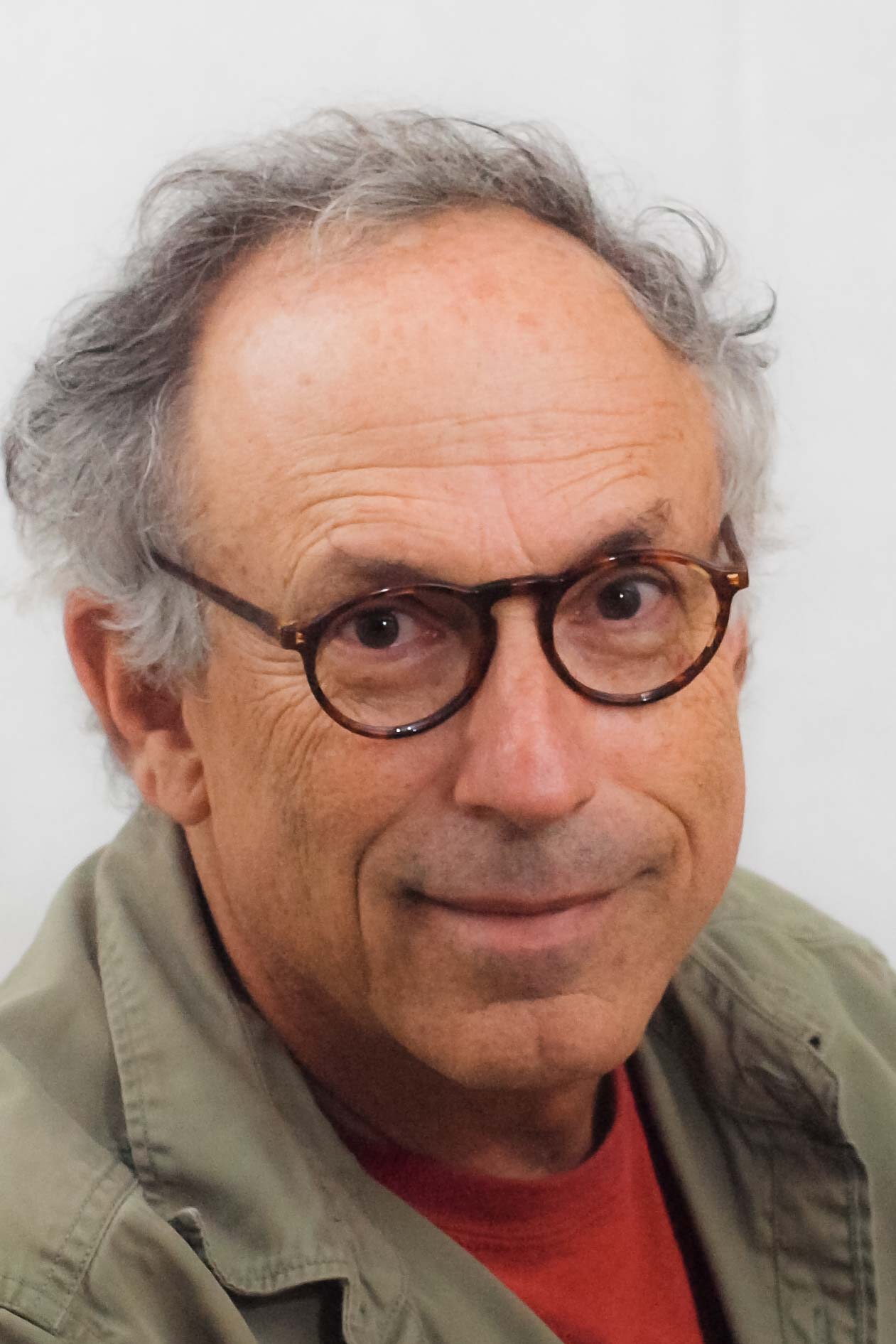
The Book Doctors first met Andy Ross at Cody’s Books, which was one of the most influential bookstores on the West Coast, smack dab in the middle of Telegraph Avenue in book-crazy Berkeley, California. In fact David did his first professional book reading at Cody when his first memoir Chicken came out. Andy’s now an agent, and we thought we’d check in with him about how he views the book business from behind a desk dealing with writers rather than behind a cash register dealing with readers. To read on the Huffington Post click here.
The Book Doctors: How did you get started in the ridiculous book business?
Andy Ross: I got into it for ridiculous reasons. I was in graduate school studying German Intellectual History at the University of Oregon. I was unhappy. I didn’t understand Kant’s Critique of Pure Reason, my girlfriend left me and joined a hippy free love commune, and it rained a lot. I decided I needed a change and I liked bookstores. These were/are not good reasons to set one’s path for the rest of his/my life, but still…. That was 40 years ago, and here I am today.
TBD: What did you learn about the book business in your time owning Berkeley’s iconic Cody’s Books?
AR: That would be a very long list. I owned it for 30 years. What strikes me now is all the things I didn’t learn. A bookstore is the end of the literary food chain. By the time I opened the shipment box from the publisher, the books had been written, edited, designed, printed, marketed, and shipped. I only did one thing, but a pretty important thing: I put it into the hands of the book lover.
TBD: How has becoming an agent changed your view of writers, writing, and the publishing industry?
AR: Otto von Bismarck is reputed to have said: “Laws are like sausages. It is better not to see them being made.” I think the creative process is like that too. It’s pretty messy. But also pretty miraculous, when I see the transformation from a train wreck of a first draft into a masterpiece.
TBD: How has the book business changed since you started, for better and for worse?
AR: I first opened a small store in Sonoma County, California in 1972. It was 600 square feet, about as big as my living room. My first day, my sales were $32. Remember the counter culture? We sold a lot of books, mostly paperbacks, on humanistic psychology, eastern mysticism, and other things spiritual. Fritz Perls, Abraham Maslow, Alan Watts, The Urantia Book, Be Here Now, and Cutting Through Spiritual Materialism were some of my best selling books and authors back then. I made a lot of money on the I Ching (Princeton University Press edition). And, of course, all things having to do with the ever mysterious, Carlos Castañeda. The big topic of conversation was whether Casteñnada really existed – although much later he married a friend of mine. She said he was a rat. But the business still had its share of schock at the top of the lists. It was no worse than it is now.
TBD: What mistakes do you see writers make? What things do you see successful writers do?
AR: Let’s talk about mistakes in writing fiction. What I see from inexperienced writers is not knowing when the story starts. Too much literary throat clearing, usually in the form of “prologues.” The use and misuse of adverbs. My advice to the writers is: “get rid of all of them.” (Andy said authoritatively.) Using too many metaphorical figures of speech is a sign of insecurity in an inexperienced writer. To paraphrase Freud, sometimes a green tree is a green tree.
TBD: What are your pet peeves about writers and their submissions?
AR: We don’t have enough time for this, but here are just a few things: In your query letter, don’t say “this is a fiction novel” and really don’t say “this is a non-fiction novel.” Don’t mention Eat, Pray, Love; Malcolm Gladwell; or Oprah in the query letter or book proposal. Be honest and transparent to your agent, and I will be/do the same with you/the publisher. I don’t know what your advance will be. If any agent tells you: “I can get you a 6 figure deal” or “this book has Hollywood written all over it,” best to find a different agent.
TBD: Tell us about the Slush Pile Derby?
AR: I made a bet with somebody that anyone could see talent right away, even if you couldn’t explain it. So I took 10 first paragraphs from my slush pile. None of them were horrible. Some of them I decided to represent based on that first paragraph. They were subsequently published. When I do the slush pile derby at writers conferences, pretty much everyone can identify the books that got my attention.
TBD: Do you google potential clients? How much attention do you pay to the platform?
AR: I like to say that platform means one of two things: Either you have an endowed chair at Harvard or you are sleeping with Oprah’s hairdresser. Platform is almost essential in non-fiction. But with fiction, it’s usually about the story and the style.
TBD: What advice do you have for writers?
AR: For writers of literary fiction, most of it won’t find a publisher. If I’m representing you, you are good enough to get published. But commercial publishing is a business. You have to be good, but that isn’t enough. They usually make decisions more for marketing reasons than for aesthetic reasons. Rejections are a big part of this business. Learn to live with it and keep writing. If you are writing memoir, it’s often even harder to find a publisher. Remember that the journey is the destination. Or as Camus famously said: “The struggle itself is enough to fill a man’s heart.”
Andy Ross was the owner of the Legendary Cody’s Books in Berkeley from 1977-2007. In 2008 he started the Andy Ross Literary Agency. Andy represents books in a wide range of genres including: narrative non-fiction, journalism, history, current events, literary and commercial fiction, and teen fiction. Andy has a popular blog, “Ask the Agent,” where he talks about writing, and book publishing and reminisces about his life as a bookseller. You can find Andy’s website at www.andyrossagency.com.
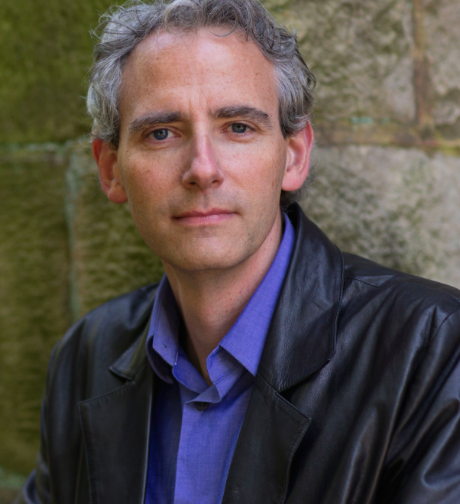
The Book Doctors met Bruce Holsinger at the Tucson Book Festival (by the way, if you read or write, do yourself a favor and put the Tucson Book Fest on your Bucket List) and when he told us about his book, The Invention of Fire, we just had to pick his brain about fiction, non-fiction, teaching fiction, plagues, witches, wars and guns. To read on Huffington Post click here.
The Book Doctors: How did you start becoming a fiction writer?
Bruce Holsinger: Aside from various unfortunate childhood experiments, I never wrote much fiction until I was in my late twenties, teaching at the University of Colorado in Boulder. My wife was living in Wisconsin for a while, and I decided I wanted to spend part of that year writing a thriller. Unlike my two published novels, it ended up in the drawer, and with good reason (one of my favorite sentences from that manuscript: “The mashed potatoes were as fluffy as white clouds.”).
TBD: You write novels and nonfiction. Do you approach them any differently?
BH: Absolutely, and they must come from different quadrants of my brain. My academic writing is slow and deliberate, painful at times, with lots of fact-checking between one sentence and the next. With fiction I can find a flow and write very quickly, and even though I’m a heavy reviser I find the experience of fiction writing vastly more pleasurable. This isn’t to say that I don’t take joy in my nonfiction/academic books–but the joy comes with the finished product more often than with the process of writing the prose.
TBD: What are some of the pitfalls and joys of writing historical fiction?
BH: Pitfalls: lots of fans and readers who know the period as well as or even better than I do–and they’ll let you know it! I love hearing from readers with suggestions, corrections, and so on, though it can be quite intimidating to present a fictional version of a past that some might take as truth. In writing historical fiction you’re always treading that line between plausibility and invention, and that line can often be quite fuzzy.
Joys: rediscovering a moment in history that I thought I already knew. As I said in my historical note in A Burnable Book, though I’ve been teaching the literature and culture of medieval England for nearly twenty years, I was continually surprised and delighted to learn new things about that world and its everyday life. The Middle Ages have always fascinated me, never more so than now, when I’m getting to contribute to a wider public understanding of that era and its many resonances with our own.
TBD: What drew you to this time and this place: 1386 London?
BH: This is the era of Geoffrey Chaucer, the medieval poet at the center of my academic discipline. Chaucer figures importantly in both of my novels, and this particular moment in the history of London was a fascinating one. In the fall of 1386 a massive French navy was assembled just across the channel in Sluys, prepared to invade England. Though the invasion never occurred, the city and the realm were deeply paranoid about the possibility, and there were suspected French spies lurking under every bush. The Invention of Fire is in part about the traffic in weapons across the channel–particularly hand-held gunpowder weapons that were just coming into their own. The English word handguns (in its Middle English form handgonnes) first appears in a document from this decade, and there were many political crises in these years that provide a rich background for the kind of story I wanted to tell.
TBD: What have you learned about writing by teaching literature?
BH: Quite a lot–more than I could have imagined when I started writing fiction. The Middle Ages gave us so many kinds of stories: adventure, romance, saints’ lives, epics, as well as a considerable body of bawdy and quite obscene tales that writers like Chaucer knew and appropriated in their own work. One of the things I value about studying and teaching medieval literature is what it tells us about the power of story. This was an era in which people really know how to sit and listen to a good story for hours at a time. We hear a lot these days about our fragmented attention spans, and one of the lessons I try to teach my students about the Middle Ages is the quality of attention that must have been required to listen to and absorb a work like Beowulf in its original form.
TBD: How does someone get a Guggenheim? Who did you pay to get yours?
BH: I wish it were that easy! The Guggenheim Foundation has always been generous to scholars and writers, and I feel deeply fortunate to have been honored with one of their fellowships, which allowed me a year free of teaching a number of years ago to work on one of my academic projects.
TBD: Did learning a musical instrument, and learning how to be a musician, help you as a writer?
BH: Absolutely. I spent a big chunk of high school and all of college (in the School of Music at the University of Michigan) preparing for a career as a classical clarinetist–and this required many hours a day of disciplined, regimented practice. I’m not nearly as regimented in my writing routine, but I think music did teach me how to squeeze the best results out of a relatively short span of time.
TBD: Why are you interested in plagues, witches and wars?
BH: I try to stay away from them as much as possible, except in the classroom. Last year I taught a massive open online course (or MOOC) called “Plagues, Witches, and War: The Worlds of Historical Fiction.” The course enrolled 20,000 students from around the world, and we spent eight weeks reading historical novels from the eighteenth century to the present. I had several wonderful guest writers of historical fiction visit the class, both in person and virtually, including Katherine Howe, Mary Beth Keane, Yangsze Choo, Jane Alison, and Geraldine Brooks. Their novels imagine plagues, witches, and various wars, among other things–so it was a catchy title that helped frame the selection of works on the syllabus.
TBD: What have you learned about the gun industry and culture by studying the history of guns? What do you think is to be done about gun violence in America?
BH: On one level, the modern gun industry bears no resemblance to the nascent gun culture of the medieval world, which was just starting to experiment with smaller, more efficient gunpowder weapons. There was no real mass production of guns until much later in English history, and in the period I’m writing about, the longbow remained a much more lethal and reliable weapon than the handgonne. At the same time, I think the sort of do-it-yourself gunsmithing we’re starting to see with things like 3D printers and mail-order kits represents a return of sorts to the local, private manufacture of guns that characterized the earliest medieval experiments–and that’s quite a frightening thing. I’m a strong believer in much, much stricter gun laws, at the national and local levels. We lose over 30,000 people to guns every year in this country, and our gun culture is just out of control. Though The Invention of Fire isn’t what I’d call a political novel–it doesn’t take a position on contemporary gun violence or legislation–it does try to understand the allure and seduction of guns in their earliest form. It’s a novel about the beginnings of gun violence, and it would be silly to pretend that it doesn’t have contemporary relevance.
TBD: I hate to ask you this, but what advice do you have for writers?
BH: Keep writing, keep writing, keep writing, and don’t spend time fretting about a publishing industry that doesn’t recognize your genius. It took me fifteen years and two manuscripts in the drawer to get a novel picked up. All the clichés about persistence are true!
Bruce Holsinger is an award-winning fiction writer, critic, and literary scholar who teaches at the University of Virginia. His debut historical novel, A Burnable Book, won the John Hurt Fisher Prize and was shortlisted for the American Library Association’s Best Crime Novel of 2014, while his scholarly work has been recognized with a Guggenheim Fellowship and other major awards. He has written for The Washington Post, Slate, The Nation, and other publications, and appears regularly on National Public Radio. His new novel, The Invention of Fire (HarperCollins/William Morrow), imagines the beginnings of gun violence in the western world.
Arielle Eckstut and David Henry Sterry are co-founders of The Book Doctors, a company that has helped countless authors get their books published. They are also co-authors of The Essential Guide to Getting Your Book Published: How To Write It, Sell It, and Market It… Successfully (Workman, 2010). They are also book editors, and between them they have authored 25 books, and appeared on National Public Radio, the London Times, and the front cover of the Sunday New York Times Book Review.

The Book Doctors first met Judith Fertig when she won our Kansas City Pitchapalooza (think American Idol for Books). She was commanding without being overbearing, powerful but warm, a total pro. And her pitch was really good. When we consulted with her, one of the things we did was help her figure out what genre her book fit in. It’s rather shocking how many of our clients don’t know exactly where their book wants to sit on the bookshelf. One we helped her get that sorted out, she got a great agent, who helped her edit her book, then got her a two-book deal with Penguin. And since we’re doing an Online Pitchapalooza with National Novel Writing Month (NaNoWriMo) right now, we’d thought we’d pick her brain to see how she did it. (To read on Huffington Post click here.)
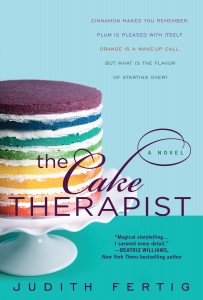
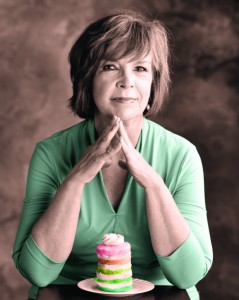
The Book Doctors: So, how did you get started in the book business?
Judith Fertig: Like most English majors, I wrote an early novel, unpublished, that remains in the proverbial desk drawer. When I was living and working in London, England, I realized that absence makes the heart grow fonder and I wanted to write a Midwestern cookbook when I got back home. It took a few years, and a couple of restaurant recipe “starter” cookbooks, but then I wrote Pure Prairie in 1995. After that, I wrote Prairie Home Cooking in 1999, which was nominated for the James Beard Award, became a bestseller, and earned me the title of “heartland cookbook icon” conferred by Saveur Magazine.
TBD: Who are some of your inspirations?
JF: I love cookbooks that tell a story. I still miss the late Laurie Colwin, a novelist who also wrote a column for the equally late Gourmet, which turned into two cookbooks, Home Cooking and More Home Cooking. I am an avid mystery reader, especially those with depth from Louise Penny and Jacqueline Winspear.
TBD: How did you come up with the idea for The Cake Therapist?
JF: I started out with Neely, a young pastry chef whose New York life is melting down like buttercream frosting on a hot day. She goes back to her Midwestern hometown and opens the bakery she’s been dreaming about. And then I had a vision of Neely opening the door of her bakery after working all day and unleashing that bakery air into the cold. In my mind, the bakery air refracted into a baker’s rainbow that only she can see and taste: pomegranate red, orange, lemon yellow, pistachio green, blueberry, indigo plum, violet blackberry, spice and vanilla.
TBD: How was it making the transition from non-fiction to a novel?
JF: Very interesting. I had to learn to write in scenes rather than in recipes with headnotes and sidebars. I had to develop an ear for believable and interesting dialogue. I had to learn how to go back and forth in time, to put the flashback chapters in chronological order rather than in theme order, which was too confusing for the reader. Non-fiction also requires more planning–you make an appointment to interview someone or buy groceries to test a recipe. With fiction, I learned it was just as important to allow for the unplanned, the plot twist that was just waiting if you gave yourself enough time to lose yourself in the writing. I was also working on a cookbook (Bake Happy, Running Press, May 2015) sort of at the same time as The Cake Therapist. So I would get an idea for a flavor pairing or wonder if strawberries with rosewater really tasted like a summer’s day, then go into the kitchen and test it out in cakes, cookies, tarts, etc.. My taste-tester friends and family were very happy there for a while.
TBD: How did you get your book deal?
JF: It all happened much faster than I thought. I won a 1-minute Pitchapalooza contest when The Book Doctors in Kansas City in spring 2012. After my winner’s conference with her, I knew my book was not a mystery as I had thought, but commercial women’s fiction. After my manuscript went through my writers group, right before Thanksgiving in 2013, I sent pitch letters (with a great cake photo) to agents who I thought might like my work. A friend had recommended I read Beatriz Williams’ One Hundred Summers because her plot goes back and forth in time like mine does. And I loved that book. Her agent liked my pitch and hooked me up with Stefanie Lieberman at Janklow & Nesbit. Stefanie sent the manuscript out to readers and I worked on the tweaks to the manuscript over the December holidays. She sent it out in early January, and we had a pre-empt offer for two books from Kate Seaver shortly afterward. The second book in the series, The Memory of Lemon, will be out in 2016.
TBD: What was it like working with your editor?
JF: Kate Seaver at Berkley (Penguin Random House) was very enthusiastic from the start. She went over and over the book, guiding me to tweak scenes, lose the prologue, amp up a character. I think writers have to be open to some change, and she was very skillful at helping me get to the heart of the main character and the story. This past November, I was able to go to New York and meet Kate, the Berkley/Penguin team, and Stefanie; I highly recommend doing that. It’s so much better to work with people when you can put a name with a face.
TBD: What do you plan to do to promote and market the book?
JF: Because I want this to become a very successful series, I’m really stepping up my efforts on the first book. Berkley/Penguin already has a strong marketing and public relations presence, but I also know that “who you know” and persistence can also make a difference. That led me to hire additional PR and marketing assistance from Tandem Literary, who will work closely with Berkley/Penguin. I’ve made, decorated, and sent boxes and boxes of “cake therapy” cupcakes to possible blurb writers as well as book reviewers at major magazines. You always learn something unexpectedly new with every book and I’ve learned how to overnight cupcakes successfully (a 6-pack clear plastic cupcake container, frozen cupcakes, and a snug box). I’ve finally gotten my web site going, www.judithfertig.com. In the past few weeks, I’ve been doing more social media, mainly Twitter and Facebook. And planning the first event at my local independent bookstore, Rainy Day Books. That’s the first stop on the author tour. I will be blogging and guest blogging. As much as possible, I will also bring little treats to events so readers can “taste” what The Cake Therapist is all about.
TBD: How did having an expertise in cake help you write your novel?
JF: I grew up in Cincinnati, a great mom-and-pop bakery town. All of our family’s special occasion cakes, fantasies of frosting, came from The Wyoming Pastry Shop. For me, cake symbolized something good happening; its elusive flavor made me want to figure out how to make it myself. I’ve spent my cookbook career starting with an idea for a main dish or a dessert and then figuring out how to get there. It was the same process for the novel–minus the mess in the kitchen!
TBD: You are working within two niches: food & woman’s fiction. What are some of the challenges and advantages to this?
JF: The Cake Therapist turned out to be women’s commercial fiction, although I thought it was going to be a mystery. That was one of the surprises along the way. But there is a mystery within the novel, like a secret filling. I started out writing cookbooks that had a storytelling quality and now I’m writing fiction that has recipe elements. The challenge for me was getting the plot going, but I went to the Iowa Summer Writers Workshop and had a basic plot by the end of the session. The advantage for me from a non-fiction background is that I think in a multi-sensory way and try to get this on the page so readers can see, hear (with sort of a playlist), touch, smell, and especially taste their way through The Cake Therapist.
TBD: What advice do you have for writers?
JF: Adjust your book as you go along. You may start writing and a new character can appear or a plot twist present itself or something equally surprising can occur when you’re into it. AND join a good writers group. Feedback is so important.
Novelist and cookbook author Judith Fertig, who was described by Saveur Magazine as a “heartland cookbook icon,” debuts a new novel, The Cake Therapist (Berkley/Penguin, 2015). Bake Happy (Running Press, 2015), a also comes out this year. Her other books include In Heartland: The Cookbook (Andrews McMeel, 2011) and Prairie Home Cooking (Harvard Common Press, 2000), which was nominated for James Beard and IACP cookbook awards. Fertig’s food and lifestyle writing has appeared in Bon Appetit, Food & Wine, Better Homes & Gardens, Saveur, Country Homes and Interiors (London), The New York Times, and The London Sunday Times. She is a member of Les Dames d’Escoffier, The Kansas City Barbeque Society, The Kansas City Novel Group, and IACP.
Arielle Eckstut and David Henry Sterry are co-founders of The Book Doctors, a company that has helped countless authors get their books published. They are also co-authors of The Essential Guide to Getting Your Book Published: How To Write It, Sell It, and Market It… Successfully (Workman, 2010). They are also book editors, and between them they have authored 25 books, and appeared on National Public Radio, the London Times, and the front cover of the Sunday New York Times Book Review.
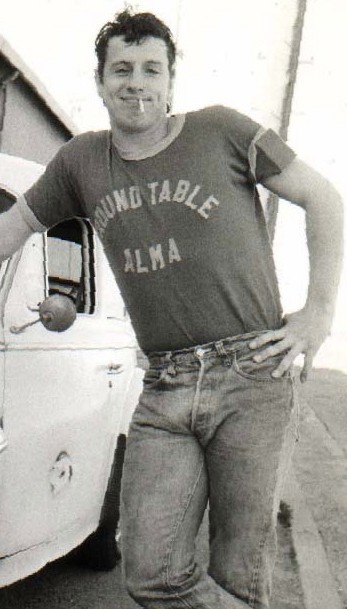
David Henry Sterry’s account of his months as a teenage hooker in 1970s Hollywood is dangerous business. But such an unfiltered look at a young man’s fall into and climb out of (almost) the dumpster of the sex trade could easily slide into all sorts of sappy, afternoon talk-show moralizing. But Sterry doesn’t allow his story to become some sort of crusading cliché. Rather, he tells it for what it is–a mind-bending ride through the bizarre and the brutal, through guilt and grace–and allows it to speak for itself. What emerges is, as Sterry suggests, his own portrait of Dorian Gray–a picture of pain, anger, and frustration that nonetheless liberates its subject from his scars. Terrifying, funny, and honest, Chicken is a captivating story told with a virtuoso’s grasp of image and rhythm–a tale of near tragedy transformed through the art of language. – Words & Writers
To buy book click here: bit.ly/1ancjuEcopy
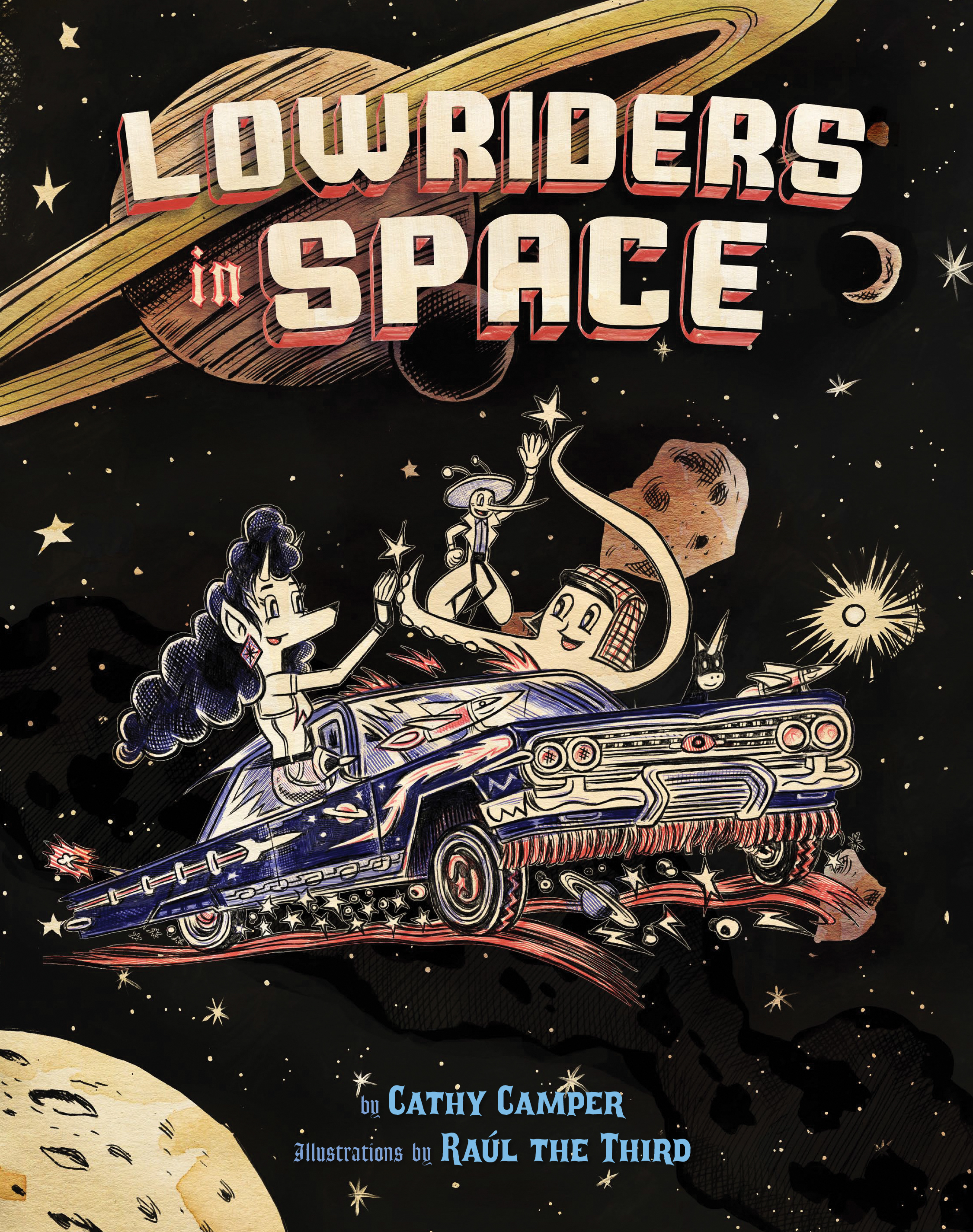
The Book Doctors first met Cathy Camper at a Pitchapalooza (think American Idol for Books) at one of our favorite book stores, Powell’s in Portland, Oregon. As soon as she pitched us her graphic novel, Low Riders in Outer Space”, we knew this was a great book waiting to happen. And now it has. So we thought we’d pick her brain on what it was like to go from talented amateur to professionally published author.
The Book Doctors: Did being a librarian influence your writing & your approach to publication?
Cathy Camper: In 2006, I moved to Portland, OR and was working as a youth services outreach librarian. I’d bring books to schools and I got really angry. I was seeing diverse groups of kids, but all the books were about white suburban children. As an Arab-American, I know what it’s like not to see yourself in books. Plus, so many books that feature kids of color are old, or not written for the world kids live in today, but for the past, their parents’ world. The 2050 census says one third of the U.S. will be English-Spanish speaking households – that’s our audience! I also wanted a book for boys, since boys literacy rate is dropping. And I love science, and there’s a big push to get more science in school curriculums. I aimed my book and my pitch at these big audiences, and told publishers why it they were important.
TBD: Tell us about your long & winding road to publication.
CC: First I wrote the book, from 2006 to 2009. Then I emailed Raul Gonzalez, the artist, who was working as a fine artist, and asked if he’d ever considered doing a kids’ book? He said, yes, and so I sent him the script. He wrote back, “This is the book I wanted to read as a kid, “ and within days, he was sending me sketches of the characters. It was just plain luck that we were so well matched; we have a similar sense of humor, similar sensibilities and the same work ethic. We put together a pitch. I found lists of agents who repped graphic novels online, and sent it out as cold calls. It was right as the recession was hitting, and no one wanted it. On the plus side, people loved the art and writing, so I knew that wasn’t the issue…but I’d hear things like “too marginal an audience,” or “not quite right (white enough?) for our audience.” Also I got lots of warnings that bringing in my own artist would be a problem; though it’s common in the world of comics, it’s not done in the children’s book world.
I reached the end of the list of agents, and was lying awake nights wondering what to do. Then I heard about the Book Doctors Pitchapalooza. It’s funny, but I never realized there was a prize, or maybe I thought you just won a free copy of a book or something. I entered thinking, wow, I can test how good my pitch really is, because I didn’t know the judges, the audience, no one. Ironically, the day I did my pitch, I’d just done book talks as a librarian for six classes. So I thought, why not do it for my own book? It wasn’t until the judges were actually conferring that it occurred to me I might actually win.
The Book Doctors were the ones who connected the book to Chronicle Books and to our agent Jennifer Laughran. They made it happen. I think all publishing is like this – part talent, part hard work, and part luck. All creators can control is honing the talent and doing the work. But it’s important to do, because when luck comes your way, you want to be ready.
TBD: Why did u decide to do a graphic novel?
CC: Actually the book could have been a picture book, or a floppy comic, but graphic novels felt like the best fit, so I tried that first. I love comics- how both text and pictures tell the story. Plus graphic novels are hot! When graphic novels first came out, libraries and books stores didn’t know what to do with them. But now there are so many good graphic novels for kids, and they’ve become so popular, I think they’re figuring it out. Both Raul and I love comics and the flexibility they allow – it’s like making a movie where anything can happen – on a budget of Bic pens!
TBD: What were some of the joys and challenges of blending your words with an artist’s images?
CC: When I start writing the script, I have to be very descriptive in the sense that the script is all there is for the artist, editors and art director to work with. So I work very hard to build a world, characters and pictures in their minds. When Raul draws the thumbnails, a lot of the words I’ve written (not just dialog, but description, innuendo, expressions etc.) are now part of the illustrations, and there’s no need to have them in the text. So lots of text gets cut because it’s redundant when the art is there. Raul and I were lucky that we had great freedom to riff off of each other’s ideas, like jazz musicians, and to take as many pages as we needed to make it work. On the downside, we sometimes struggled with not being able to work together in the same place, at the same time…email and different time zones create extra hurdles when you have unwieldy edits to do.
TBD: From the first we heard your title Low Rides in Outer Space we loved it. How’d you come up with it?
CC: I don’t remember the exact moment it hit me, but it was very early on. I think it was a natural extension of the concept, which was that these characters would have a lowrider that got detailed by outer space. It’s only recently that a friend pointed out the cool little twist inherent in the title, the idea of a car designed to go low – that blasts into the highest place there is – space!!
TBD: How did you come up with the idea for the book?
CC: Daydreams. I’m a prolific daydreamer, and all my books start with stories I tell myself. That’s how the story came about. I also noted as a librarian that books on lowriders were super popular, but we only had three or four of them for kids, all nonfiction. I tried to find a book like mine, but when I saw it didn’t exist I thought, well, I’ll have to try to write it myself.
TBD: There’s been a lot of talk about diversity in publishing. What’s your take on that?
CC: We need more diverse kids books, and I’m so glad there’s pressure to change things. At Multnomah County Library where I work, we recently made a booklist of good picture books for African American kids. There wasn’t one set on the West Coast – from these books you’d think African Americans only live in brownstones in Brooklyn! Way too many were dire historical stories about slavery or hard times – where are the books about kids of color building forts, playing make believe, just doing things that kids do?
We need this book primarily so kids of color see themselves in books, but also so white culture isn’t always primary. If a book is about a generic kid, why is that kid always white? It’s important that white readers see kids of color too. I sometimes joke – when a book like Diary of a Wimpy Kid is about a girl wearing hijab – you’ll know things are changing!
TBD: How did you learn to be a writer?
CC: On my Arab side, my dad and uncle were writers, and so I grew up with the idea that writing was cool, something I’d want to do. So I’ve been writing since I was a kid. I carried a notebook around, took classes, went to conferences, was involved in writing groups and recently participated in VONA/VOICES writing workshops for people of color. But it was always self-driven, I never got an MFA, in part because I think it changes a writers voice, and also because, as Junot Diaz recently pointed out, MFA programs aren’t that supportive of writers of color.
TBD: What’s your advice for writers, both as a writer & a librarian?
CC: One crucial tip I’ll pass on is that so much of the quirky DIY stuff I did for many years for free ended up being what led to this book. For example, for decades I’ve written reviews of books for School Library Journal, Kirkus and Lambda Literary. I’ve also written and published zines and supported them as a zine librarian. I didn’t see it until now, but those things not only honed my writing skills, they created two huge support networks of people who knew my work. The adventures I’ve had and the people I’ve met via DIY vs. mainstream connections are equal. Don’t underestimate the value of what you do just because it’s not mainstream.
Also, as a librarian, I’d tell writers, don’t write in a bubble. Be aware of the market your book will fall into, its audience, and the reason why people will read it. If you’re going to spend time writing a book, do research, talk to librarians and bookstore folk about what people are reading, read other books in your category so you’ll know who your competition is. Think about what would make a publisher sink time and money to back your work. Your book may fall in a large category everyone already reads or it might be the first to fulfill a long-felt need, but that should to be part of your pitch, and an intrinsic part of the book you write.
TBD: Has Robert Rodriguez called yet?
CC: Wouldn’t that be great? I hear he loves lowriders, and Raul and I are huge fans of his movies, and how he funded them in early days, from the ground up. We love that he made Spy Kids, and that he knows how important it is for kids of color to have and be in good films too. I hope he reads our comic, it’s seems like it’d be something he’d like
Cathy Camper is the creator of Bugs Before Time: Prehistoric Insects and Their Relatives. Her work has also been featured in Simple Times: Crafts for Poor People, by Amy Sedaris, as well as in Wired, Cricket, Cicada, Primavera, Women’s Review of Books, Utne Reader, and Giant Robot. She is a graduate of VONA/Voices writing workshops for people of color in Berkeley, California. She reviews graphic novels online for Lambda Literary and is a librarian for Multnomah County Library in Portland, Oregon, where she does outreach to schools and kids in grades K-12. She lives in Portland, Oregon.
Raúl the Third’s work is drawing much acclaim and was featured in four recent exhibits: The Community Arts Initiative at the Museum of Fine Arts, Boston; Carroll and Sons Art Gallery; the Fitchburg Art Museum; and his first solo museum exhibition at the Museum of Art, University of New Hampshire. He teaches classes on drawing and comics for kids at the Museum of Fine Arts, Boston; the Maud Morgan Arts community arts center in Cambridge; and Young Audiences of Massachusetts. Influenced by his youth in the border town of El Paso-Juarez, Raúl’s artwork recalls the old Mercado Cuauhtemoc and its many booths filled with old curiosities, etchings by José Guadalupe Posada, and the ballpoint pen–detailed fan art found in issues of Lowrider magazine. He lives in Boston, Massachusetts.
Arielle Eckstut and David Henry Sterry are co-founders of The Book Doctors, a company that has helped countless authors get their books published. They are also co-authors of The Essential Guide to Getting Your Book Published: How To Write It, Sell It, and Market It… Successfully (Workman, 2010).
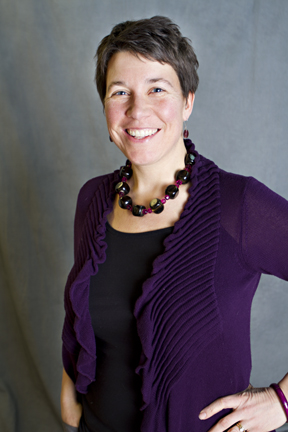
The Book Doctors met Cari Noga in 2011, when she won our National Novel Writing Month Pitchapalooza (think American Idol for books). Her pitch was spectacular, haunting and superbly crafted. Her story is about a 12-year-old boy with autism who witnesses the Miracle on the Hudson plane crash, and how he and other crash witnesses and survivors find their lives intersecting and transformed by the extraordinary event—and by each other. We worked with her on her novel Sparrow Migrations and discovered it was a richly wrought tapestry of human emotion, both beautifully plotted and a delightful read. The novel was a semifinalist in the 2011 Amazon Breakthrough Novel Award contest, and the spring 2013 winner of the ForeWord Firsts contest sponsored by ForeWord Reviews. Cari herself was already a published author (Road Biking Michigan with Globe-Pequot Press in 2005). When we sent her book out to our agent and publishing contacts, we were shocked that no one snapped it up. The problem is she’s not famous. There are no zombies or werewolves in her book. No S&M involving rich people. Just a great story with great characters about a world-famous event. So Cari decided to self-publish in April, 2013. Sparrow Migrations was just named a literary fiction category semi-finalist in the Kindle Book Review’s 2014 Kindle Book Awards. So we thought we’d pick her brain and the beauties and terrors of self-publishing literary fiction.
The Book Doctors: The general wisdom is that self-publishing literary fiction is especially difficult. Do you agree with this wisdom? If so, how have you gotten around these difficulties? If not, why not?
Cari Noga: I think publishing anything that isn’t directly aimed at a genre-specific audience is more difficult, whether you go the self-pub route or traditional. The upside is that if you do reach a literary audience, the potential is much wider. I seem to have found a niche with book clubs, starting right in my own community, and rippling outward—I just did a Skype chat with a club in Phoenix. My town has a strong sense of locavorism –people like to buy local, eat local, etc. I think that extends to reading, too. One suggestion to make locavorism work for you: Check whether your library offers book club kits – multiple copies of the same book, available for simultaneous checkout. Mine does, and when I did an appearance, I asked that they create a kit
TBD: What has been the single most difficult thing about self-publishing?
CN: Retail distribution. I was aware that I would have to offer discounts, but I did not appreciate enough the importance of offering returns. My book is available through Ingram & Baker and Taylor, but as a POD book there is no way to return it.
TBD: What has been the single best thing?
CN: Hearing from readers, especially in the book club settings. Free time is my own most prized resource, so to know that people are spending theirs reading my book is incredibly gratifying. Hearing that they like it, that the characters resonate authentically, and that they’ve learned something – whether about autism, birds, or something else – is like having my cake, icing and ice cream, too.
TBD: What marketing strategy has been most successful? What has been least successful?
CN: Most successful by a longshot: Kindle giveaways. I’ve done two (June 2013, 5,400 copies downloaded; Jan. 2014, 33,600 copies downloaded.) Paid sales increased after each and reviews soared. The January one was advertised on Bookbub, which I also recommend.
Least successful: Advertising in trade journals like PW Select. Not because the ads were bad or poorly designed, but the brick-and-mortar bookseller audience that reads them are predisposed against self-published books, especially POD like mine, due to the inability to return unsold copies and the inconvenience of dealing with an individual publisher.
Book clubs are still proving a good audience – I’m a guest at three different live discussions here in town next month and my first by Skype, with a club in Phoenix that somehow latched onto it.
TBD: How have you convinced independent bookstores to carry your book?
CN: Goes back to locavorism. I have two indie stores in my town that are both eager to work with local authors. I had a relationship with one (Horizon Books) going back to a nonfiction book (Road Biking Michigan) I published traditionally ten years ago and was fortunate to have one staff member be a beta reader. They have two other stores in northern Michigan as well. The other newer store is Brilliant Books, a cozy, customer-centric place that hosted my launch. I showed them both copies while in proof stage, asked them to carry it and offered industry standard discounts. Another store contacted me after reading local media coverage. A few other stores have been receptive to cold calls.
TBD: Would you still like to see your book published by a major publisher? If so, why?
CN: I would like to see my book in more bookstores. At the book clubs I visit, more people bring paper copies than Kindle, so I’m concluding there’s more potential for the paper copy than I’m getting in my half-dozen stores and on Amazon. However, I’d be much more cautious about the deal I’d sign than I would have two years ago. More than a publisher, right now I would like an agent who could advise me about the best moves to make not only for this book, but career-wise.
TBD: Are you working on a next book? If so, what is it about? Tentatively titled Tres Vidas, my next novel is, like Sparrow Migrations, a story about relationships. The three lives that intersect are Lucy, a suddenly-orphaned 9-year-old who must leave her NYC home to live on a northern Michigan farm with her prickly aunt Jane, and Miguel, a migrant worker who becomes a bridge between the two.
CN: How did you get 180 reviews of your book on Amazon?
TBD: Reviews spiked after the giveaways. After the initial release in April 2013, when I ran into people who told me they liked the book – in person, by email, on social media –my standard reply was to ask them to write a review on Amazon or Goodreads. A surprising number actually did, and I got up to about 20 reviews that way. That doubled after the first giveaway. After the second giveaway, timed to the fifth anniversary of the Miracle on the Hudson plane crash, which is the starting incident in the book, they just came pouring in. I’ve not solicited any reviews in months.
TBD: You enrolled in Amazon’s KDP select program. Was the exclusivity they requested worth it?
CN: Yes – see the giveaway results above. I do plan to expand to other platforms (Nook, Kobo) this year.
TBD: We can’t help but ask how you view the Amazon/Hachette tug of war since you used Amazon’s publishing program. Thoughts?
CN: I think there are far more shades of gray to the situation than have emerged in the mainstream narrative (Amazon: evil corporate behemoth; Hachette, guardians and saviors of literature.)
J.A. Konrath http://jakonrath.blogspot.com/ says that in this mad, crazy publishing world of the moment, the only two people who matter are the writer and the reader. Everyone else in a middleman who has to prove their value. Right now, Amazon is connecting those two best. They also treat authors better financially (Both my books are priced at $14.95. I get about $4 per novel sold vs. 75 cents for my Road Biking book, which was taken out of print.*) More people are reading, thanks to the Kindle, which has added another revenue stream for authors.
Meanwhile, the ranks of indie bookstores are actually growing as they embrace what they do best: curation and customer service. In my town, Brilliant Books, for example, offers free shipping. At Horizon, membership program fees drop by a dollar every year, encouraging renewals. Healthy marketplaces do generally have more players vs. fewer, so I hope Hachette and the Big Five can survive. But in terms of blame for the situation they’re in, as others have said (See exhibits A was, B and C ) I’d point to the mirror as much as Amazon.
Cari Noga self-published her debut novel, Sparrow Migrations, in April 2013. The novel was a semifinalist in the 2011 Amazon Breakthrough Novel Award contest, the spring 2013 winner of the ForeWord Firsts contest sponsored by ForeWord Reviews, and was just named a literary fiction category semi-finalist in the Kindle Book Review’s 2014 Kindle Book Awards. A former journalist, she also traditionally published Road Biking Michigan with Globe-Pequot Press in 2005. Read her blog or sign up for her author newsletter at www.carinoga.com.
Arielle Eckstut and David Henry Sterry are co-founders of The Book Doctors, a company that has helped countless authors get their books published. They are also co-authors of The Essential Guide to Getting Your Book Published: How To Write It, Sell It, and Market It… Successfully (Workman, 2010).
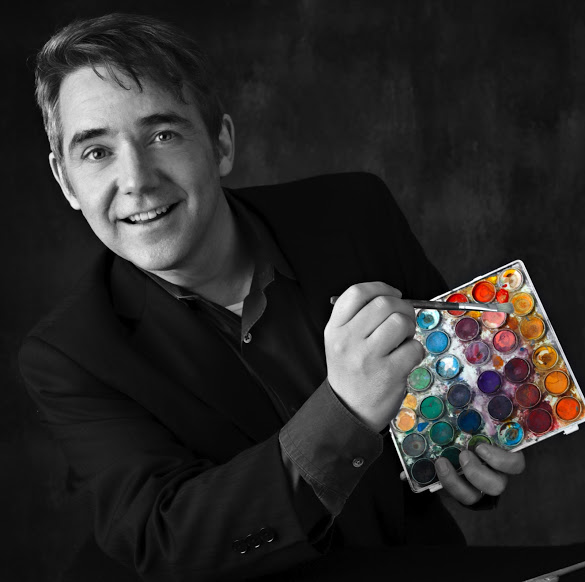
We met Peter Reynolds at the New England Society for Children Book Writers and Illustrators Conference, when he gave one of the best talks we ever heard. Whimsical and serious, passionate and jovial, wise and yet curious, Mister Reynolds was everything you’d want in a wildly successful picture book writer. Plus, he was inspiring. Much like his books. The Dot, which has become a classic, is deceptively simple. Like all great books, it works on many levels. It can be read as a simple romp. It is also a child’s coming-of-age story. On a deeper level it’s about Art, how people become artists, and how the Artist torch is passed from one generation to the next. So we thought we’d sit down with him and have a little chat about kids, writing, art, and life. By the way, if any writer has an interest in writing a book for kids, all the way up to Young and New Adult, you’re crazy not to join the SCBWI, and going to their conferences. They have chapters all over the country. They are awesome.
The Book Doctors: How did you get into the business of professionally writing books for kids?
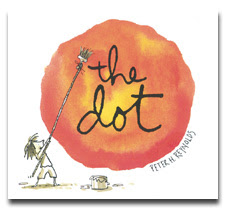
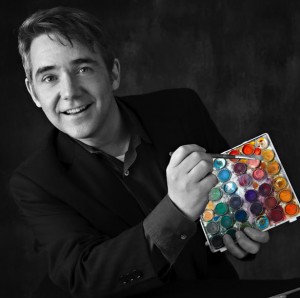 Peter Reynolds: I took the Long and Winding Road at the junction of Serendipity and Daydreaming. So many things “set the stage” for me being a writer for children (and grown up children), but I owe a lot to my daughter, Sarah Reynolds whose voracious appetite for stories demanded that I start coming up with stories to supplement what we could fit on her shelves or take from the library. Writing for her reset my creativity compass. You can get lost among the forests, swamps, and thickets of possible plots and characters, but she helped me focus on telling her a story- and instinctively I felt a need to give her something worthy of her intelligence and perhaps a scrap or two of wisdom I had clumsily gathered along the way.
Peter Reynolds: I took the Long and Winding Road at the junction of Serendipity and Daydreaming. So many things “set the stage” for me being a writer for children (and grown up children), but I owe a lot to my daughter, Sarah Reynolds whose voracious appetite for stories demanded that I start coming up with stories to supplement what we could fit on her shelves or take from the library. Writing for her reset my creativity compass. You can get lost among the forests, swamps, and thickets of possible plots and characters, but she helped me focus on telling her a story- and instinctively I felt a need to give her something worthy of her intelligence and perhaps a scrap or two of wisdom I had clumsily gathered along the way.
TBD: Teachers have played such a big part in your development as an artist (& a human it would seem), why do you think we undervalue teachers so radically & horribly in our society?
PR: How long do we have? Seriously, I could go on for days on this subject. I actually think most of us DO value the role of teachers, but we allow politicians and policy makers–who spend little to no time with children in learning environments–to strip away the resources and flexibility for great teachers to “do their thing.” If our government could control restaurants the way they do schools, you’d find Gordon Ramsey working as a fry cook at McDonalds. America takes pride in being independent and innovative. Our public education system-being a system–inherently strives to be efficient and in doing so, chops out all the “messy bits.” It’s this very “fringy” stuff that is required for innovation.
Book Doctors, you’ve inspired me to go out and hug the nearest teacher and cheer them on. Actually, the creative teachers DO know how to sneak in the good stuff. That, combined with the fact that technology is getting cheaper and into the hands of kids, is about to transform radically the world of schools as we know them.
TBD: How do you go about developing a picture book story? What’s your process, from idea through publication?
PR: We should have booked a week long Caribbean cruise. Here’s the nutshell version: My “story radar” goes off, I jot the idea down, and sometimes just one image or even a rough version of what the cover might look like. I roughly storyboard the images and add captions. I share with a few people. I read it out loud. Finesse and tweak. Then I share it with my agent, Holly McGhee at Pippin Properties who is a fabulous editor, thinker and guide. Then it’s on to find the right publisher. Once the book has a “home,” I work with the editor and art director to refine. The sales team gets into the mix when it comes time to confirm or change the title of the book and create the cover. When we’re all happy, it goes off to the printer and the long wait begins before getting that first preview copy. It may be a few months after that before the book shows up on bookshop shelves. That whole process can be squeezed into a year, but most often–from spark to finish–it can be about two years.
TBD: You seem to have many projects going on, how do you juggle all of them, running your business, and having a life?
PR: I do indeed, but I have great people around me to help get it all done. I have my wonderful team in Boston, FableVision, my bookshop staff at The Blue Bunny, my agents at Pippin Properties, among other great friends and colleagues. Balance though is key. I’ve worked hard in the past few years to get the formula right. Less is more. Less travel, more time with my 3 year old son. I have a new studio called The Sanctuary which, in theory, is my very own thinking and creativity temple, but I do occasionally find my son sprawled out painting mostly on sheets of paper, but also the floor. He actually reminds me of what freedom really looks like.
TBD: I’m so jealous that you have a twin. What’s that like?
PR: For me, it’s amazing. We both feel blessed. Not sure how you “singletons” do it. The journey is so much easier when you have a twin to share it with. While we are technically “identical” twins, Paul is not a “duplicate” of me. He is the being who is connected to me and able to extend my sensing of the universe (and vice verse.) It’s like two spaceships shooting in opposite directions to explore the universe, but in constant communication and transmitting to the one database back at ground control.
Our advice to everyone, if you don’t have a twin- go out there and find one!
TBD: So many picture book authors stress the lesson they’re trying to teach kids instead of character & story. Could you address this?
PR: I think that is a common trap. That “being on the nose” is a fear that kids won’t “get it.” Kids are mighty smart and they can smell “a lesson” a mile way. Hey, sometimes it’s a place to start, so whatever works for you, but then try to find a more creative way to get the audience to “connect the dots” after they’ve closed the book.
TBD: Why do you think there is a prejudice against rhyme in the picture book world?
PR: Well, on a practical note, rhyming books make it difficult to translate into the many other languages on the planet. It would be a real doozy to find equivalent words for “kale” and “pail” in Persian. Having said that, I think you can put that on ignore and just make a rhyming story that works. Rhyming books, done well, are a lot of fun to read aloud. My upcoming book collaboration, YOU & ME is a rhyming delight from Susan Verde. Do what makes you happy and the kids around you.
TBD: What are the greatest joys & frustrations about writing picture books?
PR: It is mostly JOY. I absolutely love sharing my stories with so many people around the world. Seeing the “ripples” that just one story can make is a “wow.” International Dot Day is a great example. Over a million teachers and students put down their regular work and tests on Sept 15th to celebrate creativity.
The frustration is having to schedule creativity. The publisher might have a deadline for a book due in September which means that I have to be ready to roll and really feel it in January. Trying to find that “surfer’s perfect wave” in the middle of a cold, winter’s day might not happen. Eventually, a wave appears and you ride it in to shore.
TBD: How did The Dot become such a great success?
PR: The Dot was my way to come to rescue of children (and adults) whose creativity and confidence had been steamrolled. As it turns out, there are plenty of folks facing this challenge. While it often gets labeled as an “art book,” the idea is really about bravery. Bravery is a universal concept. That helps a book find a big audience.
TBD: What advice do you have for beginning writers trying to break into the picture book racquet?
PR: Start with a real story. A startling memory of your own. A wee bit of advice your Dad shared. A wish you have for yourself – or for the world. Find the idea you know or believe in. One that you’d be very sorry if you lost along the way.
Find your network. Could just be your “twin,” or it could be a gaggle of Twitter friends, or the kids at the local library, or an organization like SCBWI .
Be brave. Make ONE book where you throw out all the rules, all the advice you have been given, all the notes in all the writing workshops, and create something just for YOU.
The most important advice I can give is this: KEEP GOING, NEVER STOP.
I’m planning on doing the same.
Peter H. Reynolds is the author and illustrator of the Creatrilogy series which includes The Dot, Ish, and Sky Color (Candlewick Press/Walker Books) Other books in his collection include I’m Here (Simon & Schuster), The North Star (Candlewick Press/Walker Books), as well as many collaborative works, which include The Judy Moody series (Candlewick Press/Walker Books) with Meghan McDonald. He is also co-founder of FableVision, a children’s media studio in Boston. His family runs The Blue Bunny Book & Toy Store in his hometown of Dedham, Massachusetts.
Arielle Eckstut and David Henry Sterry are co-founders of The Book Doctors, a company that has helped countless authors get their books published. They are also co-authors of The Essential Guide to Getting Your Book Published: How To Write It, Sell It, and Market It… Successfully (Workman, 2010).
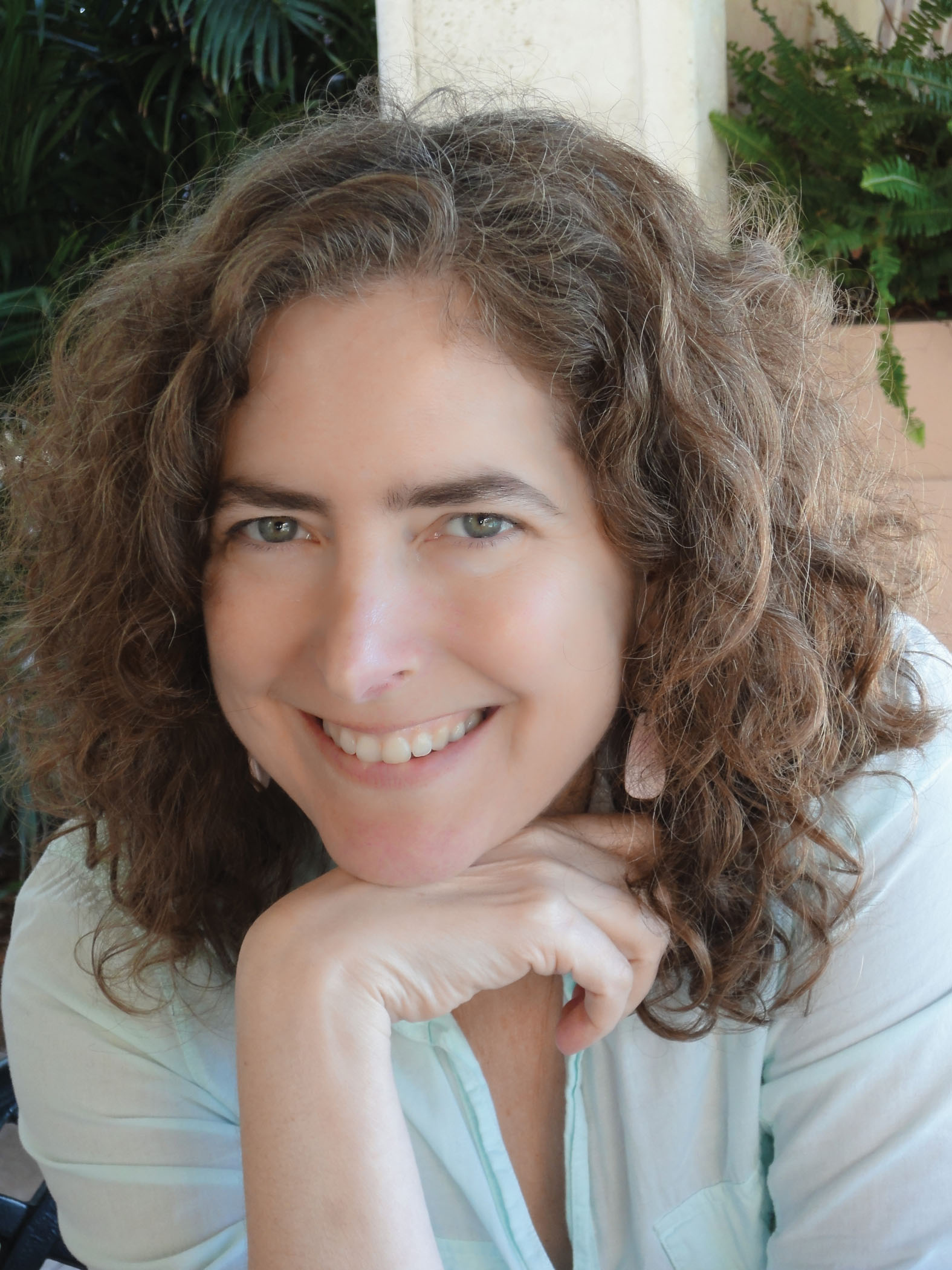
To read on Huffington post, click here..
After three different people recommend the book to me, I always try to read it. This is the case with Birds of Paradise by Diana Abu-Jaber. It was one of those rare books that I found literary yet page turning. A work of art but also a work of commerce. So I thought I’d reach out to her, to find out exactly how the heck she does it.
The Book Doctors: What is your writing process from coming up with the idea through writing the first draft and then revising and working with an editor?
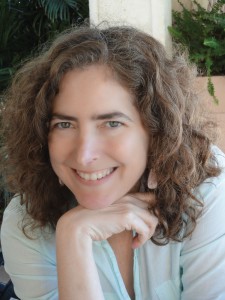
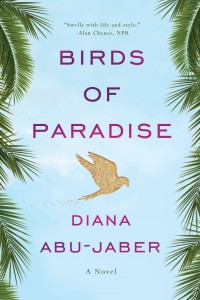 Diana Abu-Jaber: The Book Doctors: I write my novels long hand in the first draft. I used to transcribe them myself, which of course is wildly time consuming. These days I hire a typist and then revise on the computer. I try to get several eyes on a manuscript before it goes to my agent–I’m often in some sort of writing group and will inflict hundreds of pages on them, begging for feedback. My agent always has excellent editorial advice, and my editor is–I say this with a smile–extremely involved. She is brilliant and I’m lucky to have her guidance and support.
Diana Abu-Jaber: The Book Doctors: I write my novels long hand in the first draft. I used to transcribe them myself, which of course is wildly time consuming. These days I hire a typist and then revise on the computer. I try to get several eyes on a manuscript before it goes to my agent–I’m often in some sort of writing group and will inflict hundreds of pages on them, begging for feedback. My agent always has excellent editorial advice, and my editor is–I say this with a smile–extremely involved. She is brilliant and I’m lucky to have her guidance and support.
TBD: Having written memoir and fiction, how do you approach these two forms differently?
DAJ: Novels I understand better. They’re about trying to get the story down–which is never easy, but the process makes more sense to me. Memoirs are more elusive to me. I’m trying to write a new one now and first I wrote it as straight chronological narrative, then I had to go back over the whole thing, bust it into sensory fragments, then pull up the big themes, then try to weave it together again. There must be an easier way, but I haven’t found it yet.
TBD: What kind of training did you get in learning how to be a professional writer?
DAJ: My father was a story-teller and my mother was a reading teacher, they really gave me my foundation. I took a lot of writing classes and workshops in high school and college, but I think they were most valuable in giving me the justification for pursuing this madness and instilling the sense of an audience.
TBD: What’s the best advice anyone ever gave you about writing?
DAJ: Start with yourself, work out from there.
TBD: I love the way you use food in Birds of Paradise, how did you come up with & implement the idea of weaving food through the narrative?
DAJ: Thank you. I’ve been writing around and about food for a long time. I come from a line of serious cooks and it was something I thought I’d do professionally to support my writing. I used to keep little writing books in my pocket when I worked in kitchens and it naturally became one of the lens through which I saw the world.
TBD: It seems one of the themes in Birds of Paradise is how disconnected Americans are from each other. Family. City. Country. What made you want to write about that?
DAJ: That’s interesting– I hadn’t been conscious of that as I was writing! But it makes sense as it’s a bit of an obsession for me. I think it comes from a lifetime of listening to the Arab side of my family complain about the American side. It’s a real Old / New World divide, the tradition of gathering, talking, cooking, and eating together is still very strong in other countries and I see it getting winnowed away in this country– everything sacrificed to the great American time crunch. I think it’s one of our great and most catastrophic losses.
TBD: What is it like to judge writers for the National Endowment of the Arts?
DAJ: Enormous fun and crazily exhausting. The piles of manuscript boxes that come in before the judging kind of makes you want to weep. But then the actual week of judging is so intense and interesting– the other writers I worked with were so smart and talented, I’m grateful to have done it.
TBD: What advice do you have for writers?
DAJ: As much as you’re able, don’t worry about what others are doing– try to keep your head in the work. Read widely and continually and work on your writing on a daily basis. It’s a marathon not a sprint.
Diana Abu-Jaber’s newest novel, Birds Of Paradise, is the winner of the 2012 Arab-
American National Book Award. It was also an Indiepicks selection, named one of the
top books of the year by National Public Radio, the Washington Post, and the Oregonian,
and a finalist for both the Northwest Bookseller’s Award and the Chautauqua Prize.
Diana was born in Syracuse, New York to an American mother and a Jordanian father.
When she was seven, her family moved to Jordan for two years, and elements of both her
American and Jordanian experiences, as well as cross-cultural issues appear in her work.
Her novel, Origin was named one of the best books of the year by the LA Times, the
Chicago Tribune, and the Washington Post. Her second novel, Crescent, won the PEN
Center Award for Literary fiction and the American Book Award. Her first novel,
Arabian Jazz won the Oregon Book award for Literary Fiction and was a finalist for the
PEN Hemingway Award. The Language of Baklava, her cooking memoir, won the Northwest Booksellers’ Award, was a finalist for a James Beard Award, and has been published in many languages. Diana teaches at Portland State University and divides her time between Portland, Oregon and Miami, Florida. She can be found on Twitter at: @dabujaber and on her website www.dianaabujaber.com
Arielle Eckstut and David Henry Sterry are co-founders of <a href=”http://www.thebookdoctors.com/” target=”_hplink”>The Book Doctors</a>, a company that has helped countless authors get their books published. They are also co-authors of The Essential Guide to Getting Your Book Published: How To Write It, Sell It, and Market It… Successfully (Workman, 2010). Arielle Eckstut has been a literary agent for 20 years at The Levine Greenberg Literary Agency. She is also the author of eight books and co-founder of the iconic brand, LittleMissMatched. David Henry Sterry is the best-selling author of 16 books, on a wide variety of subject including memoir, sports, YA fiction and reference. His books been translated into 10 languages, and he’s been featured on the front cover of the Sunday New York Times Book Review. They have taught their workshop on how to get published everywhere from Stanford University to Smith College. They have appeared everywhere from The New York Times to NPR’s Morning Edition to USA Today. Twitter: @thebookdoctors
</a>
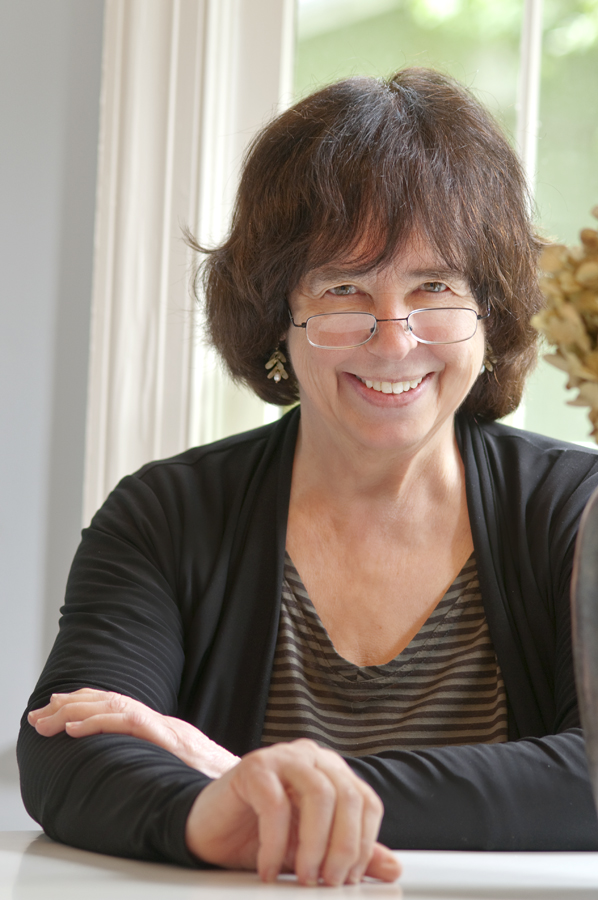
To read on Huffington Post click here.
One of the great things about attending a great writer’s conference is that you get to bask in the glow, and imbibe the wisdom of, great writers. The New England Society for Children’s Book Writers and Illustrators Conference was just such a conference. For anyone who loves writers, writing, books, and/or wants to be a writer of books, to be in the company of great thinkers and writers who are willing and able to articulate some of the truths that they have uncovered along the way is like being invited backstage at a convention for wizards, gods and goddesses. Since this was our first SCBWI where we were going to present, we were a little nervous. But everyone was so welcoming, kind and nice. And one of the true gems of our time at the conference was getting to listen to Jane Yolen talk about writing, books and never giving up.
The Book Doctors: Let’s start at the very beginning: how the heck did you get into the crazy business of writing books for kids?
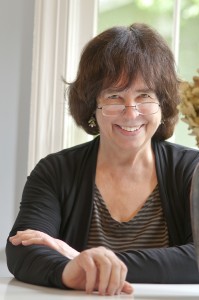
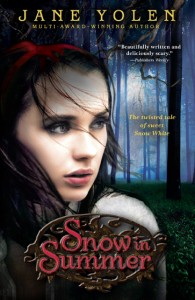
Jane Yolen: I began as a journalist for my pocketbook and a poet for my soul. Turns out I was a lousy journalist, so began working for (in order) Newsweek (research department), This Week magazine (researching facts checking), Saturday Review (in the production department,) Gold Medal Paperback Books (an Associate Editor go-fer and first reader).
Took a children’s book writing course, sold a nonfiction book for middle grades on women pirates and a rhymed concept picture book both to David McKay & Co, and they came out in 1963. The rest is history.
So in order to make a living, I worked for a children’s book packager for a year, then Knopf as Asst. Children’s Book editor for three and a half years, selling six more books to Macmillan, Seabury, and Funk & Wagnalls children’s books departments, went to Europe in a VW bus with my husband for almost a year (well, it WAS the 60’s after all!). Came home eight months pregnant, moved to Mass. and was a freelance writer for real after that.
That’s the short form.
TBD: You seem so unbelievably prolific, how do you find the time to do everything you’re doing?
JY: I love my work, have always been able to lose myself in stories and poems, and have been incredibly lucky as well.
TBD: Do you find there are difficulties with producing so much work?
JY: Of course. No one publisher sees me as “their” author, which means I often get short shrift in the promotion department. Also, it’s hard to sustain a body of work that’s spread about so widely and wildly dissimilar. When you realize my best selling books are Owl Moon, the How Do Dinosaur books, and Devil’s Arithmetic, how can the public make sense of that! I have fans who think I only write picture books or only write SF and fantasy. I have fanatics of my poetry and are stunned to find out I write prose, too!
TBD: In your incredibly inspirational keynote speech at the annual New England Society for Childrens Writers and Book Illustrators, you mentioned that, despite having won so many awards and published so many books, you sometimes will get five rejection letters in a day. I found that strangely and incredibly comforting. How do you deal with rejection?
JY: Knowing that an editor is not rejecting me but is rejecting the work, helps. Remembering that Owl Moon was turned down by five editors, that Sleeping Ugly was turned down by thirteen, and they are both still in print 25 plus years later. Knowing that Madeleine L’Engle’s A Wrinkle in Time was turned down by 29 publishers and then won the Newbery. That Dr. Seuss’s To Think I Saw It on Mulberry Street by even more publishers and almost 50 years later is still a bestseller also helps. And, as my late husband used to remind me, it’s harder to sell a great book to a publisher than a good one.
TBD: What you think are the keys to writing a successful picture book?
JY: Compression, lyricism, child-centeredness, and leaving room for glorious pictures.
TBD: How you go about promoting and marketing your books?
JY: I speak at conferences, do library readings, am loudly on FaceBook and Twitter, work with SCBWI, do interviews with anyone who asks (!), have Susan Raab as a publicist, write essays for places like Huffington Post, send a poem a day to 400+ subscribers, etc etc. Just like everyone else, I scramble. At 75 my scrambling is a bit slower than it’s been before, but it doesn’t stop me as much as it should!
TBD: Does being a poet influence your writing, both in picture books, and in longer works of prose?
JY: Absolutely. In picture books, it helps with the lyricism and compression that is so much a part of good picture book writing. But it is also a hallmark of my novel writing as well. I read everything aloud, novels as well as picture books. I believe the eye and ear are different listeners. So as writers, we have to please both.
TBD: What is the editing process like when you’re working on a picture book?
Reading it aloud over and over. Reading it to my critique group and listening to what they say. Showing it to my daughter Heidi Stemple who is a fabulous (and thorough-going) editor with great judgment. (As I used to show it to my husband when he was alive.) Trusting them and my agent to be honest with me.
TBD: I hate to ask you this, but what advice do you have for writers?
JY: Join SCBWI, the best money you will ever spend. Don’t be afraid to go to conferences,critique groups, have a beta reader (or several), but in the end trust your own judgment. Read what’s out there, then read and read some more to get a sense of how your work runs with or exceeds the pack. Don’t ever write just for a trend or fad because it’s a moving target and by the time you get your work out there, the trend or fad is gone. Dig deep, don’t be afraid to write fiercely, expose your heart. Also while you must remember publishing is a business and has to make money to stay in business, that shouldn’t be your motivation. Writing the book in your heart should be. But still you need to go armored into the publishing world, understand it, not be overwhelmed by it. Consider the editor your voice at the company while always being aware that she is also EMPLOYED by the company. It’s a tightrope for them. Don’t expect they will necessarily be on your side in every battle, even as they publish you. Don’t treat the editor as an adversary, but also don’t expect her to be your best friend. When doing business, put on your shark hat. When writing, put on your storytelling hat.
AND DON’T FORGET TO HAVE FUN AND TELL GREAT STORIES.
Jane Yolen, often called “the Hans Christian Andersen of America,” is the author of over 360 books, including OWL MOON, THE DEVIL’S ARITHMETIC, and HOW DO DINOSAURS SAY GOODNIGHT. The books range from rhymed picture books and baby board books, through middle grade fiction, poetry collections, nonfiction, and up to novels and story collections for young adults and adults.
A graduate of Smith College, with a Masters in Education from the University of Massachusetts, she teaches workshops, encourages new writers, lectures around the world. Her books and stories have won an assortment of awards–two Nebulas, a World Fantasy Award, a Caldecott Medal, the Golden Kite Award, three Mythopoeic awards, two Christopher Medals, a nomination for the National Book Award, and the Jewish Book Award, among many others. She is also the winner (for body of work) of the Kerlan Award, the World Fantasy Assn. Lifetime Achievement Award, Science Fiction Poetry Association Grand Master Award, the Catholic Library’s Regina Medal, the du Grummond Medal, and the Smith College Medal. She was the first woman to give the St Andrews University’s Andrew Lang lecture since the lecture series was started in 1927. Six colleges and universities have given her honorary doctorates. Also worthy of note, her Skylark Award–given by NESFA, the New England Science Fiction Association, set her good coat on fire. If you need to know more about her, visit her at jane.yolen.com.
Arielle Eckstut and David Henry Sterry are co-founders of The Book Doctors, a company that has helped countless authors get their books published. They are also co-authors of The Essential Guide to Getting Your Book Published: How To Write It, Sell It, and Market It… Successfully (Workman, 2010). Arielle Eckstut has been a literary agent for 20 years at The Levine Greenberg Literary Agency. She is also the author of eight books and co-founder of the iconic brand, LittleMissMatched. David Henry Sterry is the best-selling author of 16 books, on a wide variety of subject including memoir, sports, YA fiction and reference. His books been translated into 10 languages, and he’s been featured on the front cover of the Sunday New York Times Book Review. They have taught their workshop on how to get published everywhere from Stanford University to Smith College. They have appeared everywhere from The New York Times to NPR’s Morning Edition to USA Today. Twitter: @thebookdoctors

To read online click here.
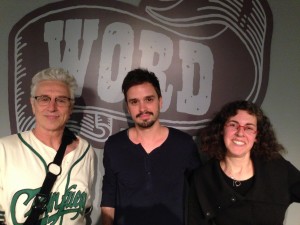 Last night, May 22, 6:30 p.m., Word Bookstore in Jersey City was abuzz. People quickly filled up chairs lined up in the back or stood in huddles, shooting the breeze. Taking my seat, I looked around and noticed a woman sitting in the row behind mine. In her hands she clutched The Essential Guide to Getting Your Book Published and her lips move silently—rehearsing. I say rehearsing, because she was there to pitch her novel.
Last night, May 22, 6:30 p.m., Word Bookstore in Jersey City was abuzz. People quickly filled up chairs lined up in the back or stood in huddles, shooting the breeze. Taking my seat, I looked around and noticed a woman sitting in the row behind mine. In her hands she clutched The Essential Guide to Getting Your Book Published and her lips move silently—rehearsing. I say rehearsing, because she was there to pitch her novel.
In fact, most, if not all of the people attending were there to pitch their books. Last night was Pitchapalooza, an event started by David Henry Sterry and Arielle Eckstut—the authors of The Essential Guide to Getting Your Book Published—to give twenty writers, picked at random from a pool, the opportunity to pitch their book ideas. Participants get their pitch critiqued (kindly and constructively), receive a twenty minute consultation from David and Arielle themselves, and for one lucky winner, get a meeting with a publisher or agent who is appropriate for their work.
Some of you may have read my interview a few weeks back with David Henry Sterry about the publishing industry and Pitchapalooza. If you did, you know how difficult it is to navigate the publishing world and what a wonderful resource Pitchapalooza and the guide are for aspiring writers. By demystifying the publishing industry and providing valuable insider advice on how to properly market one’s idea, writers get a fairer shake at publishing.
I got to say, last night’s Pitchapalooza was super impressive and inspiring to watch. The first person to get called up was a seventeen year old. He was actually seated beside me, visibly nervous, his muscles tense, dreading what he so obviously was there to do. The kid nailed it! Did I mention that participants only get one minute to pitch? Well in one minute, this kid laid down an interesting, well-structured, and tight pitch for a Young Adult novel.
The panel, comprised of David, Arielle and Jenn—the Events Director of both Word Bookstores—were impressed, but certainly not without comment. What came up often in the critiques was the importance of addressing what the protagonist of one’s novel is like, which often gets neglected while trying to articulate the plot. It’s also very helpful to give comparable titles, basically describing your book by saying what books it’s similar to. This helps publishers get an idea of how to market your book, which is a great comfort to them.
I can’t say anyone at Pitchapalooza had a bad pitch. I expected more bumbling and awkwardness, but it appeared that everyone was pretty well prepared. Even a ten-year-old girl got up to the podium and blew everyone away with a shy, yet well thought out pitch. A ten year old! It was great being a part of that crowd, among writers who were supportive and respectful of each others’ dreams and ambitions.
In the end, the victor of Pitchapalooza was Val Emmich, a writer, musician and actor based in Jersey City. It was a well deserved victory, but Pitchapalooza did not have the feel of a competition. It was more about sharing one’s ideas with others, learning how to effectively sell a pitch and getting together as a community of writers. In end, everyone left with valuable insight and a card for a free twenty minute consultation with The Book Doctors themselves—David Henry Sterry and Arielle Eckstut.
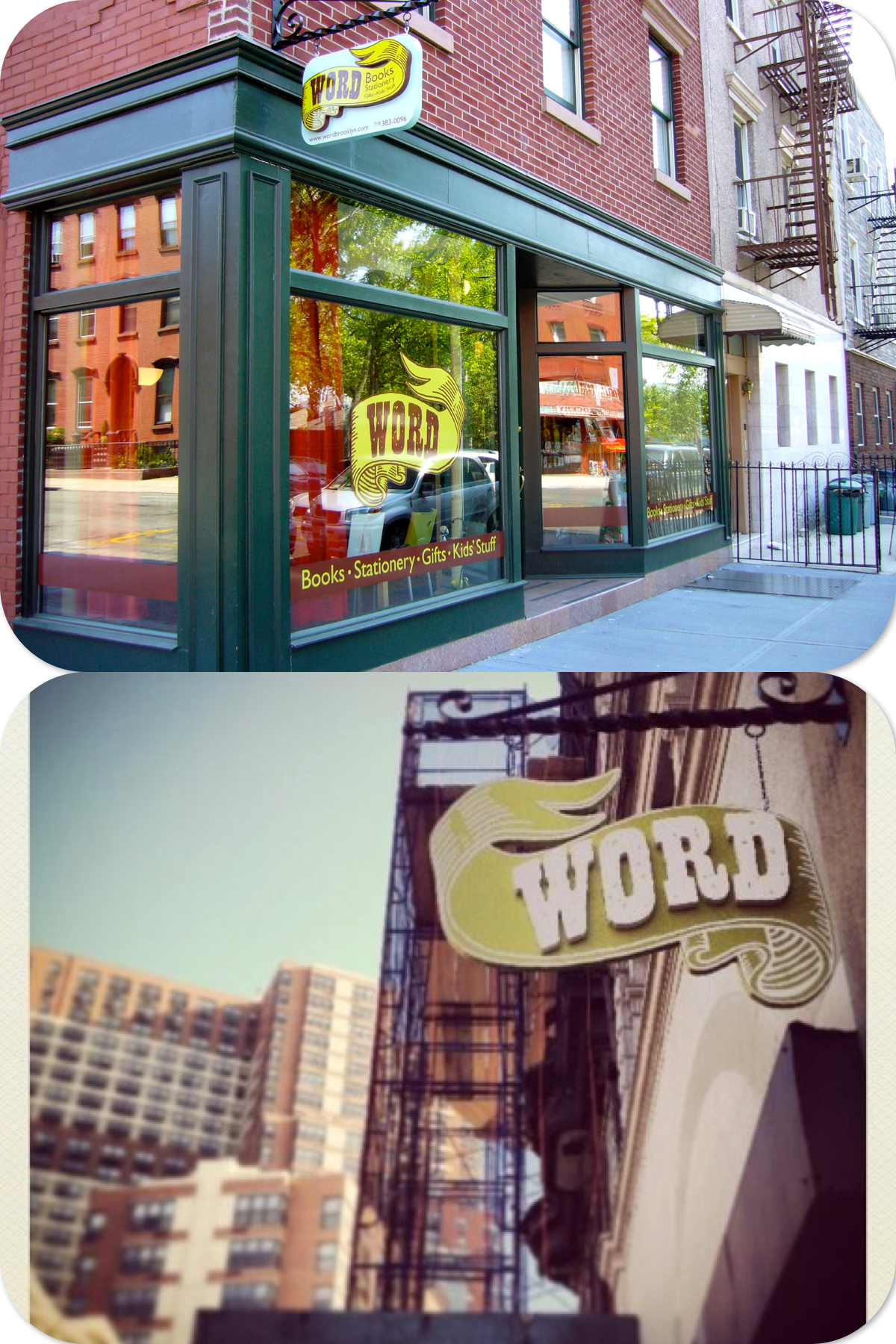
The Book Doctors first got to be friends with Word Bookstore when we did a Pitchapalooza (think American Idol for books) at their Brooklyn store a couple of years ago. It’s such a beautiful little Brooklyn exquisitely-curated indie that fits in perfectly with its neighborhood. Exactly the kind of bookstore alleged “publishing pundits” like to scream is dying. We had a great event, packed the place, everybody was super nice & we got a typically Brooklyn crowd of writers pitching literary urban angst novel, werewolf investment banker 1%er urban fantasy novel, and lots of picture books trying to be the next “Go the Fuck to Sleep”. When we found out they opened a bookstore in Jersey City, we were delighted. Not only did it fly in the face of prevailing “wisdom” that beautiful and exquisitely-curated can’t survive, it says they can actually expand! So on May 22, we’re doing a Pitchapalooza in Jersey City, to see what Jersey’s finest writers have to pitch. And we figured we’d take the opportunity to pick the brain of owner Christine Onorati, the woman who’s single handedly proving that the death of the bookstore, to paraphrase Mark Twain, is highly exaggerated.
The Book Doctors: First of all, why in God’s name did you want to get into the book business?
Christine Onorati: I majored in English in college with a focus on publishing. I worked in the publishing business for many years before opening my first bookstore, a small used and new shop on Long Island. My father owned stationery stores my whole life so I always thought retail was in my blood.
TBD: And why, in this economy, when everyone is crying about the death of the bookstore, did you choose to open yet another bookstore?
CO: We’ve been luckily successful with the model we’ve followed in Brooklyn and my family in Jersey City kept saying it was the perfect location for a new store. So when the location and opportunity presented itself, I decided to move forward. I obviously don’t believe that bookstores are dying or else I wouldn’t have done it.
TBD: Why did you want to open a bookstore in Jersey City specifically?
CO: I always thought JC had a similar vibe to Greenpoint when I moved there over 8 years ago. The feeling of community is strong and the residents seemed hungry for a store like ours. The time seemed right. And again, when the location presented itself, it seemed like the right move.
TBD: What have you learned about bookselling in Brooklyn that you’re applying to opening your new store?
CO: Our model is basically the same. Make customers happy. Provide excellent customer service. Employ really smart, helpful booksellers. Be a place that book lovers can get together and feel comfortable and happy. Present great author events. Never judge a customer for their reading tastes.
TBD: How do you choose which books to sell in your bookstore, and which books to feature?
CO: I do all the buying for both stores. I try to always bring in a mix of what I know our customers will like and recognize as well as some surprises that they can discover. It takes time to learn the tastes of the neighborhood but it’s a fun learning experience.
TBD: Does it gall you when someone comes into your store and gets a lot of you or your staff’s expertise, then says they can get the book cheaper on Amazon, and goes home and orders it online?
CO: This happens very rarely in our stores, thankfully. I think most customers are a bit too savvy to act this callously. But I know it happens elsewhere. And we can’t stop it from happening online, if someone gets our newsletter and decides to order from Amazon instead. While we always focus on the positives and what we can provide as opposed to what we can’t, we’re always ready and willing to have the Amazon conversation with customers if need be. They need to know we can’t compete with Amazon’s prices and probably never will. But stores like mine are not solely about price, and I think most of our customers get that. Both stores gave us a really positive reception when we opened, and we’re still getting it in JC.
TBD: Do you see anything commonality in successful authors?
CO: I think authors need to hustle more than ever these days. A smart social media presence can go a long way with building loyalty and keeping customers connected to their favorite authors.
TBD: What advice do you have for booksellers?
CO: I think the days of throwing books on the shelves and hoping they sell are done. We need smart, energetic booksellers who can provide a service that people can’t get online from an algorithm. Pretension or a judgmental attitude have no place in bookselling these days, I think.
TBD: What advice you have for writers?
CO: Connect with readers. Use your publisher’s resources to your best advantage. Build your brand. Keep writing good books that people will want to read.
Christine Onorati is the owner of <a href=”http://wordbookstores.com/ bookstores ” target=”_hplink”>WORD</a> with two locations in Greenpoint, Brooklyn and Jersey City, NJ. Before opening WORD in Brooklyn in 2007, Christine ran a small new and used bookshop on Long Island after working several years behind the scenes in book publishing. The Jersey City location opened in December of 2013. Christine lives in Montclair, NJ with her husband and son and is expecting twin girls this summer.
The Book Doctors: First of all, why in God’s name did you want to get into the book business?
Christine Onorati: I majored in English in college with a focus on publishing. I worked in the publishing business for many years before opening my first bookstore, a small used and new shop on Long Island. My father owned stationery stores my whole life so I always thought retail was in my blood.
TBD: And why, in this economy, when everyone is crying about the death of the bookstore, did you choose to open yet another bookstore?
CO: We’ve been luckily successful with the model we’ve followed in Brooklyn and my family in Jersey City kept saying it was the perfect location for a new store. So when the location and opportunity presented itself, I decided to move forward. I obviously don’t believe that bookstores are dying or else I wouldn’t have done it.
TBD: Why did you want to open a bookstore in Jersey City specifically?
CO: I always thought JC had a similar vibe to Greenpoint when I moved there over 8 years ago. The feeling of community is strong and the residents seemed hungry for a store like ours. The time seemed right. And again, when the location presented itself, it seemed like the right move.
TBD: What have you learned about bookselling in Brooklyn that you’re applying to opening your new store?
CO: Our model is basically the same. Make customers happy. Provide excellent customer service. Employ really smart, helpful booksellers. Be a place that book lovers can get together and feel comfortable and happy. Present great author events. Never judge a customer for their reading tastes.
TBD: How do you choose which books to sell in your bookstore, and which books to feature?
CO: I do all the buying for both stores. I try to always bring in a mix of what I know our customers will like and recognize as well as some surprises that they can discover. It takes time to learn the tastes of the neighborhood but it’s a fun learning experience.
TBD: Does it gall you when someone comes into your store and gets a lot of you or your staff’s expertise, then says they can get the book cheaper on Amazon, and goes home and orders it online?
CO: This happens very rarely in our stores, thankfully. I think most customers are a bit too savvy to act this callously. But I know it happens elsewhere. And we can’t stop it from happening online, if someone gets our newsletter and decides to order from Amazon instead. While we always focus on the positives and what we can provide as opposed to what we can’t, we’re always ready and willing to have the Amazon conversation with customers if need be. They need to know we can’t compete with Amazon’s prices and probably never will. But stores like mine are not solely about price, and I think most of our customers get that. Both stores gave us a really positive reception when we opened, and we’re still getting it in JC.
TBD: Do you see anything commonality in successful authors?
CO: I think authors need to hustle more than ever these days. A smart social media presence can go a long way with building loyalty and keeping customers connected to their favorite authors.
TBD: What advice do you have for booksellers?
CO: I think the days of throwing books on the shelves and hoping they sell are done. We need smart, energetic booksellers who can provide a service that people can’t get online from an algorithm. Pretension or a judgmental attitude have no place in bookselling these days, I think.
TBD: What advice you have for writers?
CO: Connect with readers. Use your publisher’s resources to your best advantage. Build your brand. Keep writing good books that people will want to read.
Christine Onorati is the owner of WORD bookstores with two locations in Greenpoint, Brooklyn and Jersey City, NJ. Before opening WORD in Brooklyn in 2007, Christine ran a small new and used bookshop on Long Island after working several years behind the scenes in book publishing. The Jersey City location opened in December of 2013. Christine lives in Montclair, NJ with her husband and son and is expecting twin girls this summer.
Arielle Eckstut and David Henry Sterry are co-founders of The Book Doctors, a company that has helped countless authors get their books published. They are also co-authors of The Essential Guide to Getting Your Book Published: How To Write It, Sell It, and Market It… Successfully (Workman, 2010). Arielle Eckstut has been a literary agent for 20 years at The Levine Greenberg Literary Agency. She is also the author of eight books and co-founder of the iconic brand, LittleMissMatched. David Henry Sterry is the best-selling author of 16 books, on a wide variety of subject including memoir, sports, YA fiction and reference. His books been translated into 10 languages, and he’s been featured on the front cover of the Sunday New York Times Book Review. They have taught their workshop on how to get published everywhere from Stanford University to Smith College. They have appeared everywhere from The New York Times to NPR’s Morning Edition to USA Today. Twitter: @thebookdoctors <
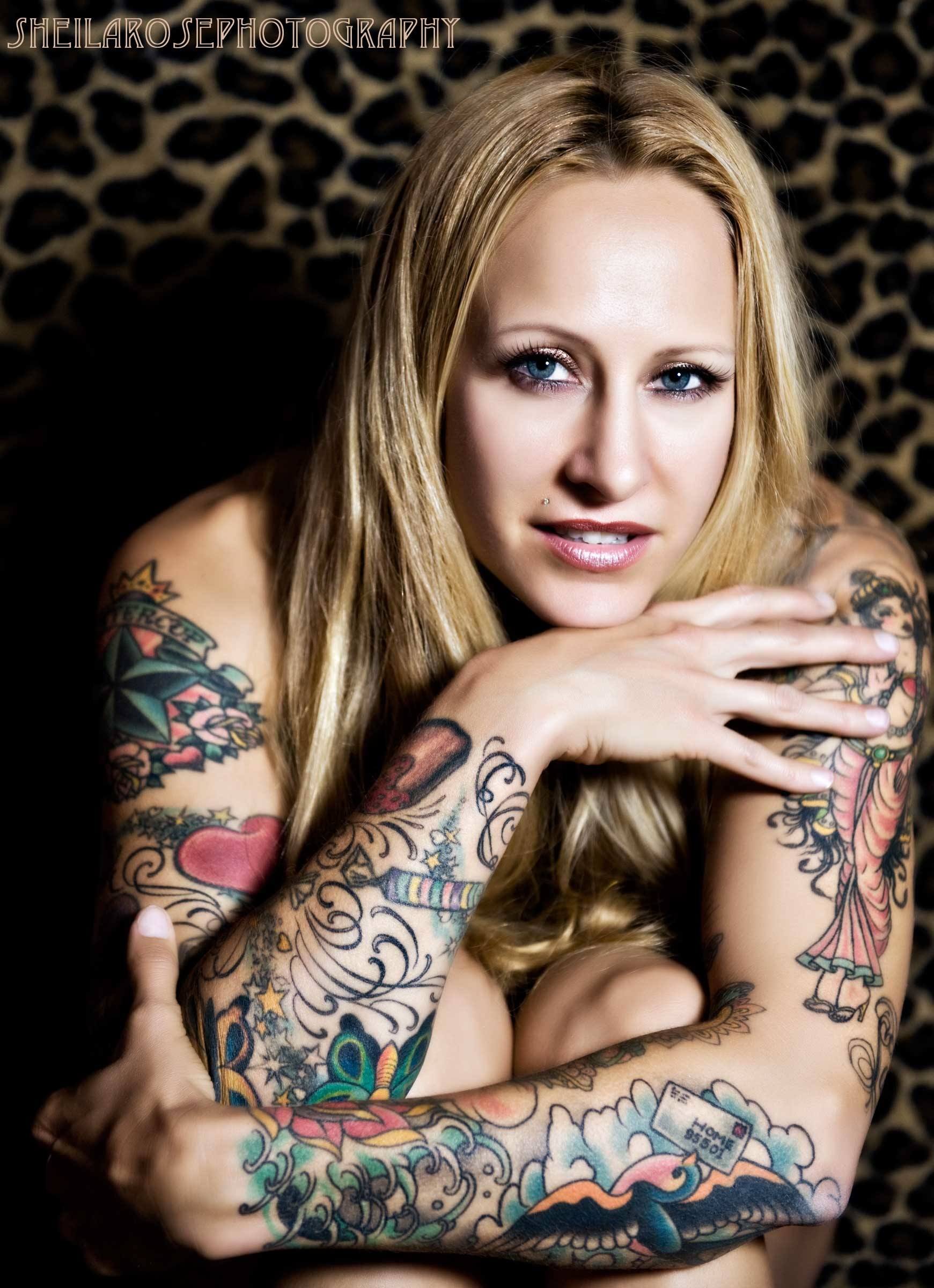
Antonia Crane Talks About Sex Work, Slut-Shaming, Biting Matthew McConaughey and Her New Book: Spent
To read on Huffington Post click here.
I met Antonia Crane when I was putting together an anthology I did about sex work & sex workers. From our first correspondence it was clear she was smart, articulate, funny, talented, ballsy and didn’t take herself too seriously. I knew she had a book in her. Now the book is out of her and into the world. It’s called Spent, and I’m happy to say it’s smart, articulate, funny, talented, ballsy and didn’t take itself too seriously. So I thought I’d pick her brain about sex, money, work, stripping and moms.
David Henry Sterry: I noticed that a lot of pieces in your new memoir Spent were published in other places first. How did that happen? Did it help you become a better writer? Did it help you get your book published?
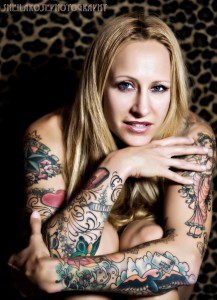
Antonia Crane: I started writing nonfiction in grad school about being a sex worker and raging about my mother’s death. I was grieving. I was doing sex work. I have been braiding those two narratives for a while and that texture/tone became the basis for my book. The first great thing that happened was I pitched a column to Stephen Elliott for The Rumpus and he said Yes. Stephen is a Yes man. He seems like he wouldn’t be — but he is such an energy source: an innovator and loves fresh ideas and voices. I sent out essays to a gazillion places, hungry for more yesses. What I got were hundreds of no’s but I kept trying. I kept pushing. I kept writing and I got better. That’s what happens when you work hard.
DHS: How did you learn to become a writer?
AC: By becoming a voracious reader. I have always been in love with books and in love with stories. As a youth, it probably began with Dr. Suess and then Lewis Caroll’s “Alice and Wonderland.” Then I went crazy for Mary Shelly’s “Frankenstein” and fell in love with J.D. Salinger’s “Franny and Zooey.” To become a writer, I simply had to write badly until it gradually got better.
DHS: You reveal such intimate personal things about yourself, stuff that is forbidden in our culture, things that make people uncomfortable. Were you worried about how people would react? Have you gotten any slut-shaming as a result of this book?
AC: The slut-shamers have been disconcertingly quiet. Frankly, the part I was worried about the most was not the sex or sex work at all. I am a grown-ass woman who made her decisions: good or bad. The euthanasia chapter was my biggest concern because there are legal issues and personal issues regarding who was in the building; who was in the room with my mother and I. My step-father was amazing about it. He is a good man who does great things and he and I are on the same page politically. Also, I wondered how my actual Dad would respond but he’s been very supportive. Right after a therapy session recently, I flat-out asked him not to read it.
DHS: There’s long been a raging debate about whether sex work is tantamount to slavery, or on the other end of the bell curve, empowering. Where do you stand on this?
AC: I’m so glad you asked that question. It’s a hard question and one I have been thinking about and writing about for a long time. In fact, this article just came out in <a href=”http://www.thenation.com/article/179147/why-do-so-many-leftists-want-sex-work-be-new-normal#” target=”_hplink”>The Nation</a> that I plan to respond to this week. The article criticizes the “sex work as ‘normal’ work” battle cry of many educated feminists, of which I am one. And I don’t fully buy into that line of thinking either. Some sex work is slavery, for instance, when it is. That line is not confusing to me. Sometimes women are enslaved and this is a horrific tragedy that needs to end. Because, the picture of the woman on a billboard who graduated from Mills College and is a sex worker looks really different from a girl sold by her family into prostitution or a young girl from the tracks here in LA. When it’s a choice, Sex work can be empowering, validating, fun, sad, lonely, humiliating and lucrative. So can waiting tables. But, they are very different jobs because when you throw sex into the mix, all of a sudden people get uncomfortable and threatened. People don’t go get a plate of pasta in a restaurant because they are dying of loneliness. But they will come to women in the sex industry for that reason. It’s a troubling enigma. I stand in the crossroads of this debate and think you should ask a sex worker if she thinks it’s slavery. Then go ask an employee of Walmart and compare answers.
DHS: The stuff in your book about your mom is so vivid and beautiful and sometimes excruciatingly painful. I’m not ashamed to admit that I cried when I was reading parts of it. Was it hard to write? Was it liberating? Painful? Or all of the above?
AC: I love tears. I am glad you cried and am honored my writing had this effect on you. I love reading stories that make me feel strongly. My writing sucks when I am not crying while writing it. Tears are my jam. It makes writing in public places embarrassing for my friends.
DHS: It’s really hard to write a good sex scene, but I really like your sex scenes in the book. They seem so real and vivid. How do you go about constructing a sex scene?
AC: Thank you. I’m always trolling for good sex scenes. Sex is dirty, messy and awkward. There’s this crazy moment in Miranda July’s story “Roy Spivey” where he asks her to bite him out of the blue and he’s a celebrity, like Brad Pitt or Matthew McConaughey (who I would totally bite). I love that moment so much because it’s strange. I think about what was awful and what was awkward and then what I felt like in my gut and go from there. Steve Almond writes great sex scenes because he seems most interested in that little box of shame that happens whenever two people get naked together. I try to remember that and make him proud.
DHS: Is it harder to be a sex worker or a writer?
AC: Writing is the hardest thing in the world. I just got 3 big rejections this week that stung. And the writing is not only excruciatingly hard work, it’s impossible to get paid for it and it’s never done. I was just telling my publisher, Tyson Cornell over coffee that I am too good at stripping and it makes it hard to leave. Sex work is a hard job, but I have clocked in my 10,000 hours so I suppose that makes me an expert. Maybe I should write a self-help book for strippers: A Stripper’s Guide to Making a Killing Every Night.
DHS: You say that you became addicted to sex work. What do you mean by that?
AC: Sex work has saved me so many times in my life and this pattern can become addicting. Stripping and sex work has bailed me out, provided me with sexual validation, attention, money, filled me with desire, made me feel confident, smart and pretty. Also, in terms of direct service, this is a service job, when I make others feel desired and good, I feel like I have purpose. It’s a lot of topless 12-stepping lately, meaning, I find myself babysitting a lot of rich drunk men. I call them cabs and they send them away. Offer me their father’s planes or golf trips to Ireland. But sometimes they cry in my arms. Sometimes it gets very very real. Sometimes I kind of fall in love with them for their vulnerability and I take that into my actually pretty great big life and learn from it.
DHS: I hate to ask you this, but what advice do you have for sex workers?
AC: Do something else. While you are there, save your money and invest in your future. Play the long game. Try to remember to be of love and service.
DHS: I hate to ask you this, but what advice do you have for writers?
AC: The best way to serve your writing is to read. The best way to serve other writers is to actually help them in a solid way. The only way to become a better writer is to write every day like your hands are on fire. Write and dig deep. Deeper. Deeper still.
Antonia Crane is a writer, performer and visiting professor at UCSD. She’s a columnist on The Rumpus and editor at The Weeklings and The Citron Review. Her work can be found in: Playboy, Cosmopolitan, Salon, PANK magazine, DAME, Slake Los Angeles, The Los Angeles Review and several anthologies. Her memoir, Spent is published by Barnacle Books/Rare Bird Lit.
You can Tweet her @antoniacrane and find her book here: Spent.
David Henry Sterry is the author of 16 books, a performer, muckraker, educator, activist, editor and book doctor. His anthology was featured on the front cover of the Sunday New York Times Book Review. His first memoir, Chicken, was an international bestseller and has been translated into 10 languages. He co-authored The Essential Guide to Getting Your Book Published with his current wife, and co-founded The Book Doctors, who have toured the country from Cape Cod to Rural Alaska, Hollywood to Brooklyn, Wichita to Washington helping writers. He is a finalist for the Henry Miller Award. He has appeared on National Public Radio, in the London Times, Playboy, the Washington Post and the Wall St. Journal. He loves any sport with balls, and his girls.
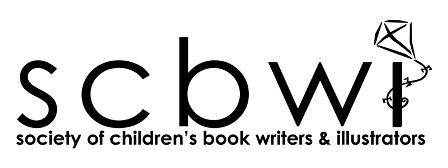
We first became aware of the Society for Children Book Writers and Illustrators a few years ago when David’s middle grade novel came out, and he was invited by Penguin to the national SCBWI conference in Los Angeles. It was totally mind-blowing. Wall-to-wall writers, artists, agents, editors, book people of all ilk who were madly passionate about kid’s books. Since then we’ve send countless writers to SCBWI. They have regional chapters all over the country, and a large national presence. This year we were asked to bring our Pithcapalooza (think American Idol for books) to the annual SCBWI New England chapter’s conference, and we thought we’d take the opportunity to pick the literary brain of SCBWI’s own Kristine Carlson Asselin, who is a very accomplished writer in her own right.
The Book Doctors: How did you first become associated with SCBWI?
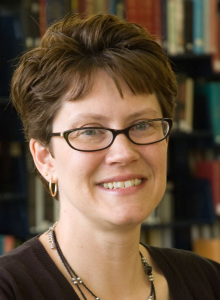
Kristine Carlson Asselin: In 2007, I was hoping to break into writing for children. I’d finished several picture book manuscripts as well as the short story that would later become my first completed novel. I attended a one-day workshop sponsored by SCBWI New England. It literally rocked my world. Before then, I had no idea that writers and illustrators came together to learn from each other. Soon after that fall workshop, I attended my first regional conference, held in Nashua, New Hampshire.
That first year, I felt like a poser. I thought for sure someone would see through the façade and kick me out! But everyone I met treated me like a “real” writer. I was hooked. In 2011, partly because I had previous event management experience, I was approached to co-direct a future conference. I spent two years shadowing the conference directors, and it’s been my great pleasure to serve in the lead role in 2014. It’s been the most amazing professional experience of my career.
TBD: What are some of the benefits of coming to the conference like SCBWI NE?
KCA: The SCBWI New England conference staff works hard to select a diverse menu of over 60 workshops for writers and illustrators of all skill levels, and writers of every genre of children’s publishing. Another tangible benefit includes the opportunity to network and rub elbows with literary agents, editors, and art directors. Intangibles include finding inspiration from our incredible keynoter speakers, fangirling (or fanboying) over your favorite children’s author, and making new friends and critique partners.
TBD: How has being part of an organization like SCBWI helped you in your writing career?
KCA: I can’t imagine where I’d be with my writing career, if I hadn’t stumbled upon that workshop years ago. I love being in the same room as successful authors and learning what works for them, and how to apply it to my own work. I’ve also met some amazing critique partners and beta readers, and dear friends through SCBWI.
TBD: What are some of the things you’ve observed that successful authors have in common?
KCA: All the writers I hang out with write for children, so I can’t speak for writers of books for grown-ups. However, children’s book writers are the some of the nicest, most generous people you’ve ever met. I think most people really embrace the concept of “paying it forward.” I’ve witnessed a lot of effort made by successful writers to mentor and advise newer writers and to “give back” to the universe.
TBD: What have you found effective in promoting and marketing your books? What are some of the things you’ve done that don’t work so well?
KCA: All but one of my published books have been written specifically for the school library market, so the publisher manages the marketing for those books. For me, the priority is to maintain a current blog and website, and to be helpful and supportive on Twitter and Facebook.
TBD: How did you first get into writing nonfiction books for kids?
KCA: I decided early in my career, I wasn’t going to pigeon-hole myself. I knew I wanted to write fiction for children, but I also wanted to experiment with different genres and styles. After my efforts to publish picture books stalled, I stumbled across the contact information for Capstone Press, the publisher of many of my nonfiction titles. I wanted to start something completely different from what I’d been working on. I sent the company my educational credentials and a writing sample, and they offered me my first contract. Of eleven books with Capstone at this point, that first book, WHO REALLY DISCOVERED AMERICA, is still one of my favorites.
TBD: How do you approach writing fiction differently that writing nonfiction?
KCA: I’m under contract for a Young Adult contemporary romance for Bloomsbury Spark (ANY WAY YOU SLICE IT is due out in late fall 2014). It started as a NaNoWriMo book. I wrote 50K words during the month of November–they were raw and awful, but it was so liberating to turn off my inner editor and write fast. I loved it! My nonfiction approach is to research first and then write an outline before I ever start the manuscript. VERY different from fast-drafting without my inner editor!
TBD: How did you go about getting your first publishing deal?
KCA: My first publishing contract for fiction came about from a twitter pitch! It’s true! I pitched a novel during #PitMad in the spring of 2013, and that pitch attracted the interest of Meredith Rich, of Bloomsbury Spark. It wasn’t a slam dunk–she still had to read and like my work. But ultimately that 140 character pitch turned into the contract for ANY WAY YOU SLICE IT.
TBD: What tips do you have for writers?
KCA: We all have different styles, and not everything works for everyone. But my very basic advice for writers is to write. You can’t get better at your craft without practice. So write. A lot. Take workshops, take classes, read blogs, read books in your chosen genre, have your friends give you writing prompts. Write. Write. Write. That’s the best advice I can give!
Kristine Carlson Asselin writes contemporary Young Adult & Middle Grade fantasy. She has written fourteen nonfiction books for the school library market with Capstone Press and Abdo Publishing, the newest (Dangerous Diseases) released in February 2014. She is one of the co-directors of SCBWI-New England this year, and her debut Young Adult novel, Any Way You Slice It, is due from Bloomsbury Spark in late fall 2014. She is represented by Kathleen Rushall of Marsal Lyon Literary Agency. Kris on Twitter: @KristineAsselin
Arielle Eckstut and David Henry Sterry are co-founders of The Book Doctors, a company that has helped countless authors get their books published. They are also co-authors of The Essential Guide to Getting Your Book Published: How To Write It, Sell It, and Market It… Successfully (Workman, 2010). Arielle Eckstut has been a literary agent for 20 years at The Levine Greenberg Literary Agency. She is also the author of eight books and co-founder of the iconic brand, LittleMissMatched. David Henry Sterry is the best-selling author of 16 books, on a wide variety of subject including memoir, sports, YA fiction and reference. His books been translated into 10 languages, and he’s been featured on the front cover of the Sunday New York Times Book Review. They have taught their workshop on how to get published everywhere from Stanford University to Smith College. They have appeared everywhere from The New York Times to NPR’s Morning Edition to USA Today. Twitter: @thebookdoctors
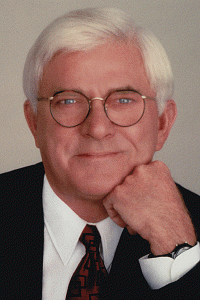
To read on Huffington Post click here.
In the 70s my mom went from being an immigrant housewife stay-at-home mom to a bra-burning consciousness-raising feminist to a card-carrying the same-sex loving lesbian. And she loved Phil Donahue. So from a young age I had a deep fondness and respect for Phil Donahue. He represented things we believed in our household. Progress, inclusion, valuing individuals over corporations, trying to get at the truth of what makes America a great place, and how we as average citizens can shape this country into a place where freedom, liberty, and the pursuit of happiness are not just ideals, but concrete building blocks to a better life for everyone, regardless of race, creed, color or how much money you have in the bank. So when I found out we were both appearing at the Erma Bombeck Writers Workshop I jumped on the chance to pick his brain.
 David Henry Sterry: You basically invented a type of television where the host asks questions about the emotional life of other human beings and it spawned everyone from Oprah to Jerry Springer, and I wondered what your thoughts were when you watch some of these shows and reflect on your part in this and how the whole thing has evolved?
David Henry Sterry: You basically invented a type of television where the host asks questions about the emotional life of other human beings and it spawned everyone from Oprah to Jerry Springer, and I wondered what your thoughts were when you watch some of these shows and reflect on your part in this and how the whole thing has evolved?
Phil Donahue: Well, I think I said this before that I love them all equally. They’re all my illegitimate children.
[We both laugh]
PD: It’s been fun watching the evolution. We didn’t know it then. We weren’t smart enough to know but very early on, we brought to the day-time schedule a revolutionary idea called democracy. We let the people who own the airwaves use them. I said many times there would’ve been no Donahue show without the studio audience. That was a happenstance; we inherited the audience of the show we replaced. They had tickets for the preceding show, so when they showed up to the studio that day in Dayton, Ohio, they found that the show they’d come to see had been canceled. And here I was with two talking heads, me and the guest. Everything else we were competing with was spinning wheels and “Come on down.” Monty Hall was giving away about a thousand dollars to a woman dressed like a chicken-salad sandwich. It was visual. It was exciting. People screamed and clapped. But our audience was so involved in the conversation and wanted to get in. I realized they were asking better questions than I was! During the commercial break during the third day, I jumped out of my chair and went out into the audience with a mic. We did put the audience up front and put the cameras behind the audience. That was new. Audiences were not that popular among the blue suits that ran the stations. In our case, we really highlighted the audience. Since we had a visually dull show anyway, just two talking heads, we suddenly realized we had something nobody else had. It was a very fundamental idea.
DHS: I feel like this was a precursor to the Internet, where everybody has a voice.
PD: Yeah, you could say that. Somebody who represented you sooner or later showed up in the audience and said what they thought, what you were thinking. It was a daytime show so usually a woman. We started our show in 1967, locally in Dayton, Ohio. Our first full year on the air Martin Luther King was assassinated, Bobby Kennedy was assassinated, the cops beat up the kids in Chicago, gays fought back at Stonewall. We really got very lucky and found ourselves riding the crest of the wave of the women’s movement, the civil rights movement, the gay rights movement. We put a live homosexual right here on my show in November, the first week of the show. In 1967, nobody was out.
DHS: Liberace was a huge star, women of all ages confessed to having a big crush on him.
PD: Absolutely, Liberace was in the closet. Of course, all the mothers thought their kids would catch it if they watched it. It was November 1967, and I had never seen such moral courage in my life. Here is this guy—live. “Yes, I am gay, and it’s none of your business. We are people, too. We have every right anybody else has.” I was scared to death. I thought everybody would think I was gay and it would be the end of my career. We did it anyway because even back then we realized this was a civil rights issue.
Then there was the women’s movement…these women coming out and say, “Children in this culture get too much mother and not enough father.” I thought, “Jesus, they’re talking about me.”
We did Madelyn Murray, the atheist, and it made you think about the separation of church and state. Why? You don’t want somebody in the Oval Office who talks to Jesus everyday and Jesus talks back. You know? The framers were correct on the separation of church and state. We have more churches, synagogues, mosques, temples; we throw more holy water and burn more holy smoke than any nation in the history of civilization. It is because of the separation of church and state. People miss that. Having been raised Catholic and a graduate of Notre Dame, it really opened my eyes. It made me appreciate other faiths and that they were just as sincere as mine was. Then, suddenly, you begin to see the sins of these institutions, and how the Christian church, especially, promoted all of them–it promoted homophobia. “The church does not approve of gays, then I sure don’t.” It made it easier to beat them up. You realize the church may be the number one promoter of homophobia on Earth. It’s also the institution that has the largest closet. All these ironies come crashing down on my head and the viewers and our audience.
DHS: You were one of the first shows that featured writers prominently. What did you observe that writers did successfully?
PD: Obviously we wouldn’t put you on the show if we didn’t think the book you wrote was compelling and of interest to the people who were watching the show, especially women. So, first, you know, write a great book that lots of people want to read. And you have to know your audience, be in touch with your audience. We got pretty good at a knowing what would be compelling. Our audience was mostly women, so I felt we should practice what we preached, and I hired women. They brought a lot of insight about the audience that you couldn’t really expect from a man, especially in 1967. Many times if I balked at an idea it turned out to be fabulous. I knew I didn’t have all the answers, and I was often wrong. The women I hired knew stuff I didn’t know. They had insight I did not have. I went to an all-male institution—high school and at Notre Dame. I came from an all-male world, from a house presided over by a mother who stayed at home, a father who got up and went to work every morning, worked 9 to 9 during Christmas retail season. It was definitely a man’s world.
DHS: When you had an author as a guest, what characteristics make someone a good guest who is an author?
PD: There’s a certain visual dramatic necessity if you’re going to succeed on the air. You’ve got to look the part. You’ve got to be enthusiastic about the subject. The best guests were the ones you had trouble shutting up. The worst guests were the ones I’d ask a four-minute question and the guest would say ‘yes.’ Most of them were scared, and I would be too. The best, most exciting guests for me were the ones who had a fascinating story to tell and were politically inclined to say how they feel, to make statements without regard to being popular.
Nobody wants to make anybody mad, but some of the best shows we did featured people who made people mad. Muhammad Ali is an example of that. A woman in front row said, ‘Why are you always throwing your blackness at us.’ He said, ‘Why do you always throw your whiteness at me?’ She said, ‘I’m not throwing my whiteness.’ He said, ‘Take that white Jesus off the wall. You made Tarzan white. You made angel food cake white and devil’s food cake black. I know plenty of black women who are prettier than your Miss America.’ I’d never seen a man who’s so thoroughly skilled and filled with insight. I stood there really awed at what he’d done for a billion young black males all over the world. You don’t have to take it. Inspire people.
Not that many years later, I actually went to Muhammad Ali’s ranch. He owns the ranch owned by Al Capone, that’s what I hear anyway. I drive in, and I park in a little parking spot in a little parking lot. There’s a little sign that says, ‘GOAT.’ G-O-A-T. What the hell’s that? I’m walking in the front door and I realize it’s, ‘Oh, Greatest of All Time.’ I knock on the door, walk in and he gives me a big hug and kiss on the cheek. What a thrill that was! So he says he had a teacher told him, ‘You’re never going to amount to anything.’ He goes to the Olympics and wins the gold medal. He comes back and he walks into her classroom and dangles the medal in front of her. He said, ‘You said I wasn’t going to be nothing.’ He tells me that as a child that was the thing that changed him. An insult. He went to the Louisville armory as a teenager to see Gorgeous George. Gorgeous George walks out in a red mink coat with white lining fur and yellow hair, and he says, ‘Don’t you touch my pretty face.’ The boos erupt all over the arena. ‘Don’t you touch my pretty hair.’ More boos. He said he looked around and there wasn’t an empty seat. And he realized: that’s how he learned to sell tickets. What insight this teenager had, and then for him to move on and evolve into the Greatest of All Time, which, honest to god, I don’t believe is an overstatement. I think he was the athlete of the 20th century, and I think he should’ve won the Nobel Peace Prize. ‘I ain’t got nothing against no Viet Cong. No Viet Cong ever called me nigger.’ He was pilloried for this. He lost his championship status. Talk about moral courage, he was a rock.
DHS: Let’s talk about Erma Bombeck. I hear you have a long and fascinating with Erma Bombeck, who I consider one of the greatest comedy writers America has ever produced.
PD: She was extremely gifted. In the list of the top ten best-selling books of the 1970s, Erma had two. It is true we lived across the street from each other on Cushwa Drive in Centerville, Ohio. This was one of the first cookie-cutter, suburban community. All the houses were the same: detached, same floor plan, no basement, three bedrooms. Diagonally across the street were the Bombecks. We both belonged to the same church. I was doing the radio program (this was before November 1967), and I worked for the news department of WHIO, the TV and radio.
Erma wrote an op-ed for the Dayton Journal Herald. The executive editor of the Journal Herald recognized her talent. He gave her a job writing her own column. So she comes across the street to interview me for her column. I was doing much of what we began the Donahue Show with: feminist issues, what our children are seeing, daddy goes off to work with a briefcase and mommy does to the basement to do wash and what is this doing to our kids. We’d do shows like that. Obviously Erma had tuned in. ‘Hey neighbor, I’ll do a piece.’ I’d never been this excited in my life. No one ever wanted to interview me. It was very flattering. At that point it meant so much to me.
DHS: I’m curious, why do you think America took to Erma Bombeck? What about her captivated people, besides her obvious talent, in terms of her message?
PD: I eulogized Erma in 1996. It wasn’t just that she was the best; she was the only. Erma was irreverent in many ways. Motherhood was sacred then. There was a lot of pretense. There still is. Motherhood was sacred. How blessed you are to have children. Erma came along and said, ‘Oy, I want to sell my kids.’ Erma said if a man watches three football games in a row, he should be declared legally dead. Erma said coat hangers breed. And she could also be very thoughtful. Her work was attached to millions of refrigerator doors around the English-speaking world. Erma could be very poignant. She could spot pretense across a crowded room. I remember once we were in St. Louis. Big crowd and little Erma is on the stage. You can hardly see her. They had like three balconies. There she was all by herself. I’m running around like mad with a wireless mic—the big time now. A woman in the balcony, way up, said, ‘Erma, I understand you were Phil Donahue’s neighbor. What’s Phil Donahue really like?’ And she said, ‘He peeks in windows.’ Of course the building falls down. Years later, after she moved, they had a beautiful home in Paradise Va ley, Arizona.. She’s walking us through the house, and this is on TV. There was a huge fountain in their home I said, ‘That’s a great fountain, Erma.’ She said, ‘Yeah, the grandchildren pee in it.’
One of the women who eulogized her said she was going to communion and Erma was in front of her. She turned around and said, ‘Be careful. You don’t know where his hands have been.’
She credited Phyllis Diller. That surprises some people, but Erma was very impressed by her. Phyllis Diller said radical, crazy things, like she’d stuff the turkey from the wrong end, and make fun of the wonderful privilege of being a housewife and raising kids.
No one was being irreverent then. Not only did she have that sense and that courage, it took a lot of nerve to obscure all the sanctity and pretense that accompanied discussions about motherhood and being a housewife. She had a brilliant comedy sense. Those two things together made her very unique, evidenced by her book sales. Two of the bestselling books in the 70’s. Her titles were brilliant: If Life Is a Bowl of Cherries, What Am I Doing in the Pits? When You Look Like Your Passport Photo, It’s Time To Go Home. Things like that made women scream. The wisdom and insight. She wrote a very honest but painful piece about women who’ve had catastrophically challenged children and how it would be so hard for her to not be bitter, angry, not to say ‘why me.’ Her syndicate asked if she was sure. Yes, I do, she insisted, and they published it. A woman called her, ‘I’ll never forget that, Erma. I had a child. I can’t lift her anymore. She can’t walk up the stairs. I want you to know your article spoke truth to me and I felt a little less guilty.’ There were another piece she did about being upset that the grass was tramped down and not growing as vigorously because the kids were rolling on it and running on it. She’d plant a little more seed, water it, and then the kids would roll on it and it would become barren. Pretty soon the kids went away to school and got married. She looked out the window and the place where the kids had played was green and the grass full and vigorous. She missed the bare spot where they were playing.
DHS: That’s beautiful.
PD: It made you cry.
Phil Donahue changed the face of daytime television, pioneering the audience-participation talk format as the host of the Donahue Show, a 29-year run which stands as the longest of its kind in U.S. television history. His TV journalism earned him 20 Emmy Awards — 9 as host and 11 for the show — as well as the George Foster Peabody Award; the President’s Award from the National Women’s Political Caucus; the Media Person of the Year Award from the Gay and Lesbian Alliance; and induction into the Academy of Television’s Hall of Fame. TV Guide named Donahue one of the Greatest Television Shows of All Time. Donahue has frequently been lauded for his groundbreaking interviews with world leaders and newsmakers — including Muhammad Ali, Johnny Carson, Ayn Rand, Nelson Mandela, Madalyn Murray O’Hair (his first Donahue guest), Margaret Meade and all of the presidents since Jimmy Carter. He was the first Western journalist to visit Chernobyl after the nuclear accident there. Donahue has also headlined numerous network and public television specials, including the Emmy Award-winning children’s special, Donahue and Kids, the landmark Ryan White Talks to Kids about AIDS and The Human Animal; an exploration of human behavior which was also a five part, prime time series that aired on the NBC television network. In 2006, Donahue co-produced and co-directed Body of War, a documentary film about a young Iraq War veteran left in a wheelchair by enemy gunfire who begins questioning America’s involvement in the war.
Universally hailed by critics (“almost unbearably moving,” wrote Time magazine), Body of War captured, among others, the Best Documentary award from the National Board of Review; the Grand Jury Prize at Michael Moore’s Traverse City Film Festival; and a People’s Choice Award at the Toronto Film Festival. Donahue is also an admired writer, whose opinion columns have appeared in The New York Times, The Washington Post and The Los Angeles Times. He is the author of the best-selling memoir, Donahue: My Own Story; and The Human Animal. A native of Cleveland and the father of five and grandfather of two, Donahue is married to award-winning actress, author and activist Marlo Thomas. They live in New York.
David Henry Sterry is the author of 16 books, a performer, muckraker, educator, activist, editor and book doctor. His anthology was featured on the front cover of the Sunday New York Times Book Review. His first memoir, Chicken, was an international bestseller and has been translated into 10 languages. He co-authored The Essential Guide to Getting Your Book Published with his current wife, and co-founded The Book Doctors , who have toured the country from Cape Cod to Rural Alaska, Hollywood to Brooklyn, Wichita to Washington helping writers. He is a finalist for the Henry Miller Award. He has appeared on National Public Radio, in the London Times, Playboy, the Washington Post and the Wall St. Journal. He loves any sport with balls, and his girls. www.davidhenrysterry

To read online click here.
A magical moment happens when a writer takes a deep breath and launches into a passionate one-minute elevator pitch of a book concept before hundreds of other would-be authors.
“It’s very touching,” says literary agent Arielle Eckstut about the emotion-charged atmosphere at Pitchapalooza. “These writers are wearing their hearts on their sleeves.”
Adds her writer-husband David Henry Sterry: “This is the first time some have said in public, ‘I’m a writer.'”
At the April 10-12 Erma Bombeck Writers’ Workshop at the University of Dayton, 20 randomly selected writers will get the opportunity to make a one-minute pitch — and perhaps write their own perfect ending. One winner, selected by Eckstut, Sterry and two other publishing experts, will receive an introduction to an agent or publisher appropriate for the book idea.
Welcome to Pitchapalooza, billed as the “American Idol for books, only kinder and gentler.” Since 2005, Eckstut and Sterry have taken Pitchapalooza to approximately 150 bookstores, writing conferences, book festivals and libraries — from Cape Cod and Chicago to the far-flung states of Hawaii and Alaska. It has drawn standing-room-only crowds and captured attention from The New York Times, Wall Street Journal, Washington Post, NPR and other media outlets.
“Our whole goal is to help people improve. There’s never a sense of humiliation,” said Eckstut, an agent-at-large with Levine Greenberg Literary Agency in New York and the author of nine books.
The event also illustrates the importance of tenacity. “In 2010 at LitQuake in San Francisco a woman pitched an idea for an anthology by American-Muslim women writing about their secret love lives,” Sterry recalls. “You could hear the murmur throughout the room. That pitch is a book waiting to happen, but an agent had dropped the idea.”
The lesson: an initial rejection doesn’t always determine a book’s fate.
“There’s a great expression, ‘Don’t quit five minutes before the marathon ends,'” says Sterry, who’s written 15 books himself. “I called up a publisher I knew, and it took about 10 seconds to sell that idea.”
The couple came up with the idea for Pitchapalooza after co-writing The Essential Guide to Getting Your Book Published and trying to figure out how to creatively promote their own niche book. They’re the founders of The Book Doctors, a company dedicated to helping authors get successfully published.
“We were at a party in San Francisco, and writers in the room heard the rumor there was a literary agent in the house. People started buzzing around Arielle like moths to a flame,” says Sterry with a laugh. “There were some great drunken pitches made that night. Later, we realized we might have hit upon something that could help us help writers and sell our own book.”
When the couple introduced Pitchapalooza at New York’s iconic Strand Book Store, “we thought it would be a terrible bust,” concedes Sterry. “We show up, and there’s a line out the door. We looked at each other and said, ‘What’s going on here?’ If it’s not Michelle Obama or a celebrity, it’s hard to get more than 15 or 20 people at a booksigning.”
Over the years, Sterry says they’ve heard “some amazing and some horrifying pitches.” One writer tried to pitch five book ideas in a minute. Another had an idea for a 30-book series. Another didn’t win at Pitchapalooza, but still ended up with a book contract.
“The writer was an arborist who had an idea that took off on The Elements of Style — only for fruit trees,” Eckstut says. “She had incredible expertise, and I knew just the right publisher.”
Writers don’t have to win or even participate in the Pitchapalooza contest to receive a professional critique of their book ideas. Eckstut and Sterry are offering writers who buy their book, The Essential Guide to Getting Your Book Published, a free 20-minute telephone consultation after the workshop.
The two offer these tips for making a great pitch:
1.When pitching a narrative, memoir or creative nonfiction, make sure you have a hero we can fall in love with.
2. Don’t tell us your book is funny. Make us laugh.
3. Compare your book to a successful one. Show us where the book fits on the shelf in a bookstore.
And finally, “Don’t say you’re the next Erma Bombeck,” Sterry says with a laugh.

“Snappy and acutely observational writing… It’s a book filled with wit, some moments of slapstick, and of some severe poignancy… a flair for descriptive language, and a fine knack with expertly told little escapades… The human ability to be kind ultimately reveals itself, in a book which is dark, yet always upbeat and irreverent. A really good, and enlightening, read.”
— Ian Beetlestone, Leeds Guide
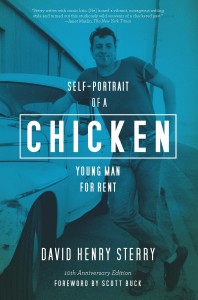 Chicken: Self-Portrait of a Young Man for Rent, Ten Year Anniversary Edition
Chicken: Self-Portrait of a Young Man for Rent, Ten Year Anniversary Edition
“Ten years ago, this debut memoir from Sterry burst upon the literary scene with an energy and inventiveness that captured his little-known subject matter—teenage life in Los Angeles as a rent boy working for a benevolent pimp named Sunny whose “rich, generous, horny friends,” Sterry explains, “pay good money to party with a boy like me.” Now back in print, Sterry’s memoir still crackles with its unsparingly honest approach: “I catch myself in the mirror, seventeen-year-old hardbody belly, pitprop legs, zero body fat, and huge hands. I’m seduced by the glitter of my own flesh.” Scenes from Sterry’s early dysfunctional family life not only add pathos to this tale of fall and resurrection but assure readers that he never sees himself as better than his clients, such as Dot, the wealthy 82-year-old, whose only desire is to experience cunnilingus for the first time—a desire that Sterry readily fulfills. “Even though I have no home and no family except for a bunch of prostitutes and a pimp, even though I have no future… at least I’m good at this.” (Oct.) – Publisher’s Weekly
Find Chicken at your local independent bookstore: IndieboundAmazon
“I walk all the way up Hollywood Boulevard to Grauman’s Chinese Theatre: past tourists snapping shots; wannabe starlets sparkling by in miniskirts with head shots in their hands and moondust in their eyes; rowdy cowboys drinking with drunken Indians; black businessmen bustling by briskly in crisp suits; ladies who do not lunch with nylons rolled up below the knee pushing shopping carts full of everything they own; Mustangs rubbing up against muscular Mercedes and Hell’s Angels hogs. It’s a sick twisted Wonderland, and I’m Alice.”
This is the chronicle of a young man walking the razor-sharp line between painful innocence and the allure of the abyss. David Sterry was a wide-eyed son of 1970s suburbia, but within a week of enrolling at Immaculate Heart College, he was lured into the dark underbelly of the Hollywood flesh trade. Chicken has become a coming-of-age classic, and has been translated into ten languages. This ten-year anniversary edition has shocking new material.
“Sterry writes with comic brio … [he] honed a vibrant outrageous writing style and turned out this studiously wild souvenir of a checkered past.” – Janet Maslin, The New York Times
“This is a stunning book. Sterry’s prose fizzes like a firework. Every page crackles… A very easy, exciting book to read – as laconic as Dashiell Hammett, as viscerally hallucinogenic as Hunter S Thompson. Sex, violence, drugs, love, hate, and great writing all within a single wrapper. What more could you possibly ask for? -Maurince Newman, Irish Times
“A beautiful book… a real work of literature.” – Vanessa Feltz, BBC
“Insightful and funny… captures Hollywood beautifully” – Larry Mantle, Air Talk, NPR
“Jawdropping… A carefully crafted piece of work…” -Benedicte Page, Book News, UK
“A 1-night read. Should be mandatory reading for parents and kids.” -Bert Lee, Talk of the Town
“Alternately sexy and terrifying, hysterical and weird, David Henry Sterry’s Chicken is a hot walk on the wild side of Hollywood’s fleshy underbelly. With lush prose and a flawless ear for the rhythms of the street, Sterry lays out a life lived on the edge in a coming-of-age classic that’s colorful, riveting, and strangely beautiful. David Henry Sterry is the real thing.” –Jerry Stahl, author of Permanent Midnight
“Compulsively readable, visceral, and very funny. The author, a winningly honest companion, has taken us right into his head, moment-by-moment: rarely has the mentality of sex been so scrupulously observed and reproduced on paper. Granted, he had some amazingly bizarre experiences to draw upon; but as V. S. Pritchett observed, in memoirs you get no pints for living, the art is all that counts-and David Henry Sterry clearly possesses the storyteller’s art.” – Phillip Lopate, author of Portrait of My Body – Phillip Lopate, author of Portrait of My Body
“Like an X-rated Boogie Nights narrated by a teenage Alice in Wonderland. Sterry’s anecdotes… expose Hollywood at its seamiest, a desperate city of smut and glitz. I read the book from cover to cover in one night, finally arriving at the black and white photo of the softly smiling former chicken turned memoirist.” -Places Magazine
“Snappy and acutely observational writing… It’s a book filled with wit, some moments of slapstick, and of some severe poignancy… a flair for descriptive language… The human ability to be kind ultimately reveals itself, in a book which is dark, yet always upbeat and irreverent. A really good, and enlightening, read.” – Ian Beetlestone, Leeds Guide
“Brutally illuminating and remarkably compassionate… a walk on the wild side which is alternatively exhilirating and horrifying, outrageous and tragic… Essential reading.” – Big Issue
“Visceral, frank and compulsive reading.’ –City Life, Manchester
“Sparkling prose… a triumph of the will.” -Buzz Magazine
“Pick of the Week.” -Independent
“Impossible to put down, even, no, especially when, the sky is falling…Vulnerable, tough, innocent and wise… A fast-paced jazzy writing style… a great read.” -Hallmemoirs
“Full of truth, horror, and riotous humor.” -The Latest Books
“His memoir is a super-readable roller coaster — the story of a young man who sees more of the sexual world in one year than most people ever do.” – Dr. Carol Queen, Spectator Magazine
“Terrifically readable… Sterry’s an adventurer who happens to feel and think deeply. He’s written a thoroughly absorbing story sensitively and with great compassion… A page-turner… This is a strange story told easily and well.” – Eileen Berdon, Erotica.com
“Love to see this book turned into a movie, Julianne Moore might like to play Sterry’s mum…” – by Iain Sharp The Sunday Star-Times, Auckland, New Zealand).

